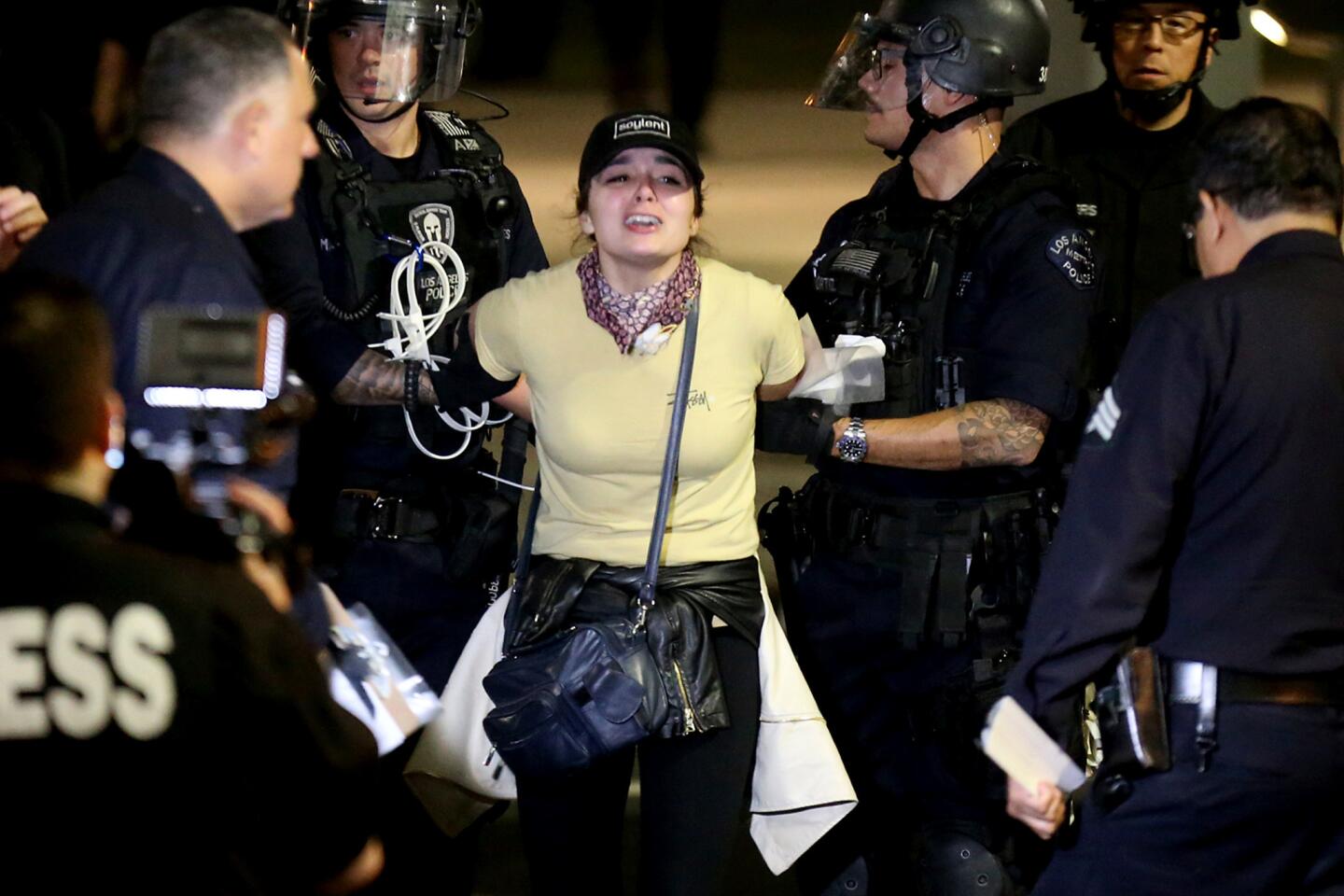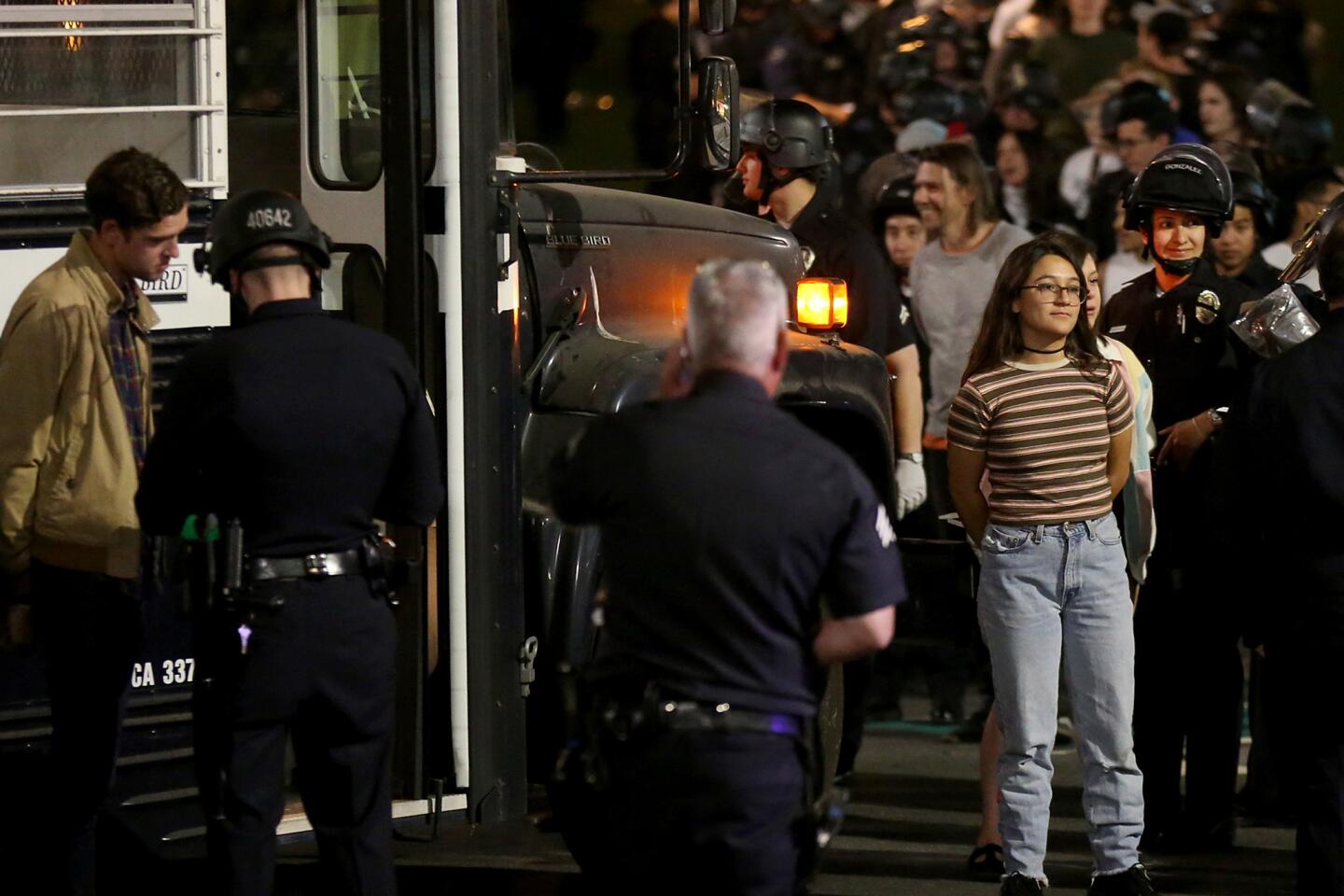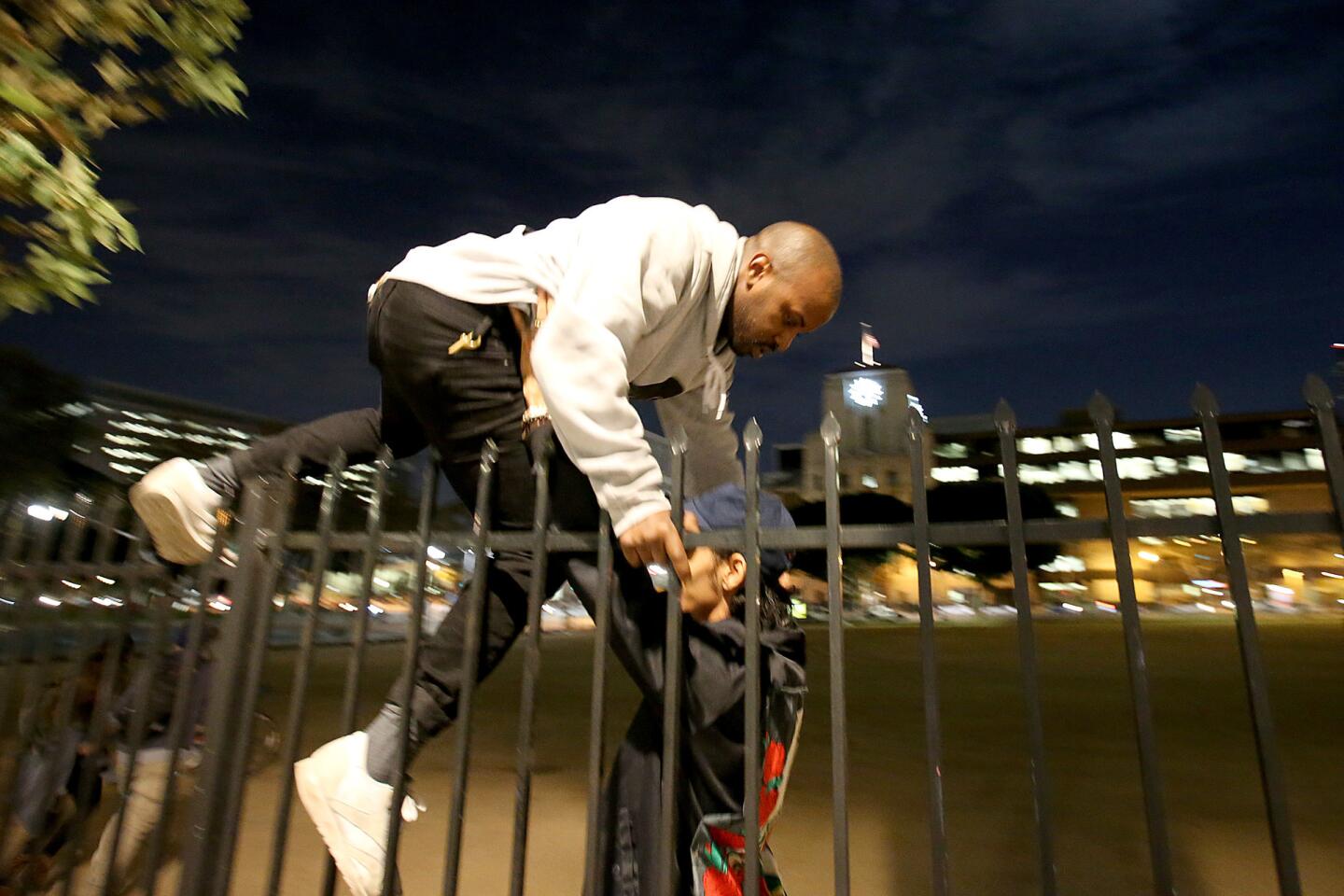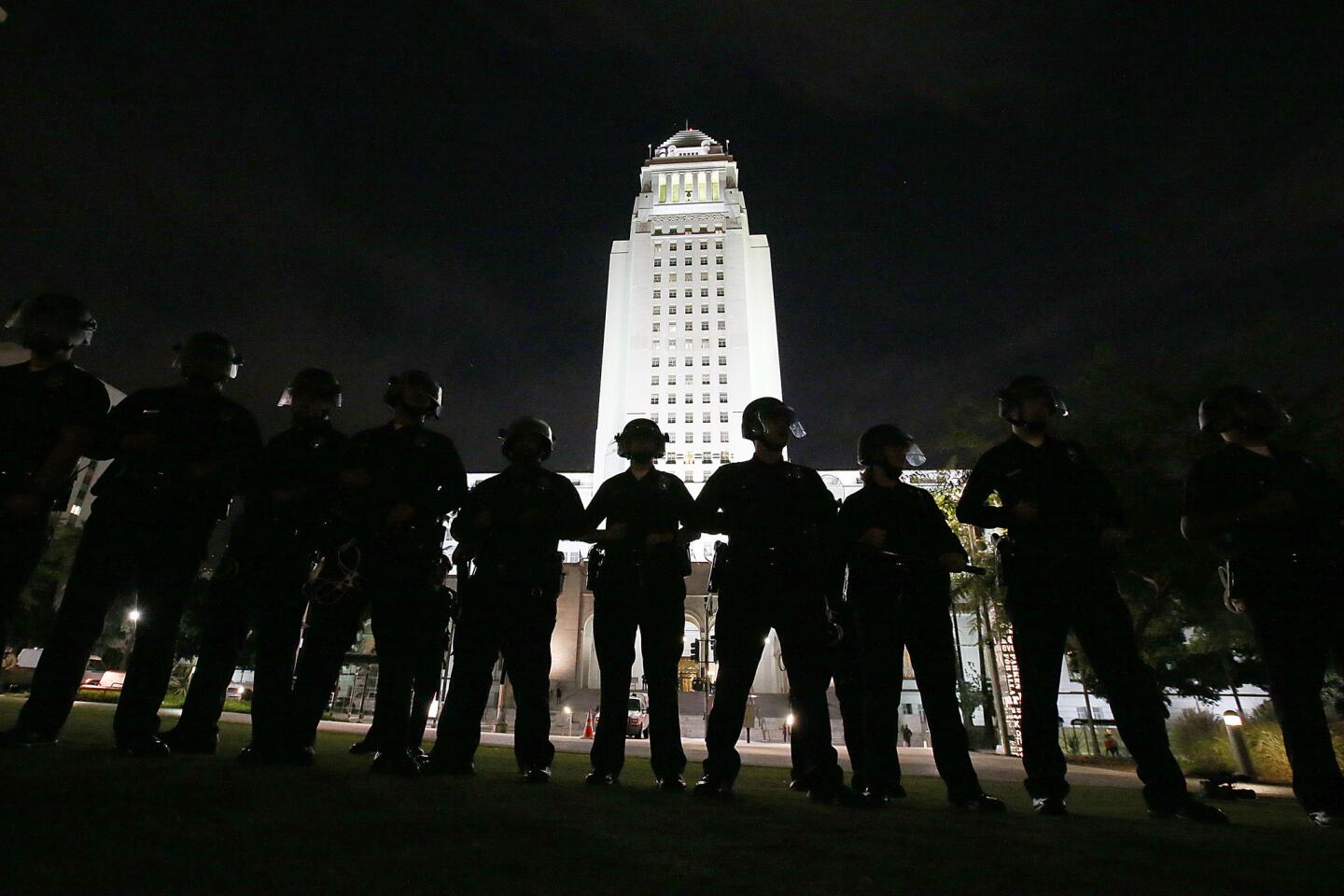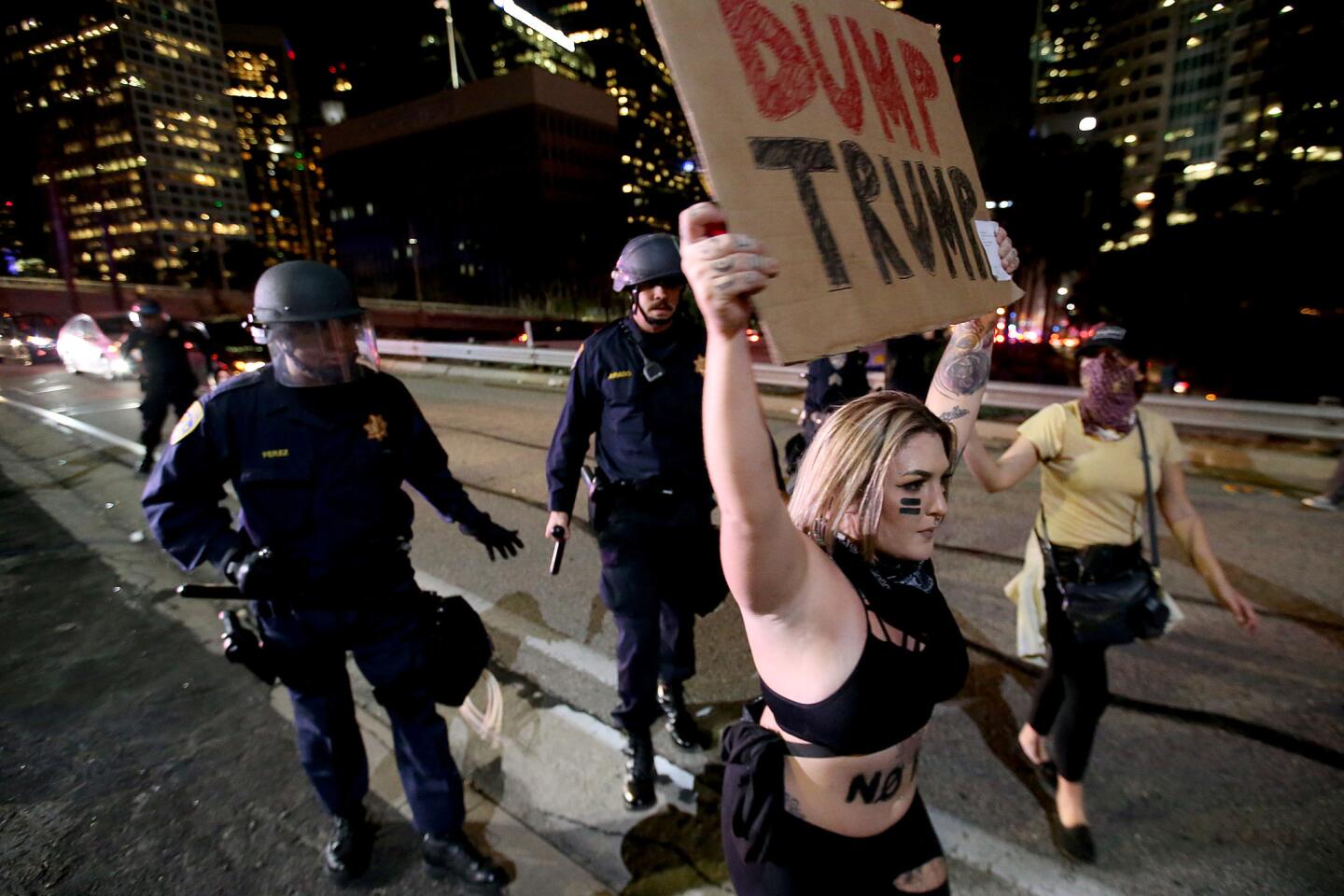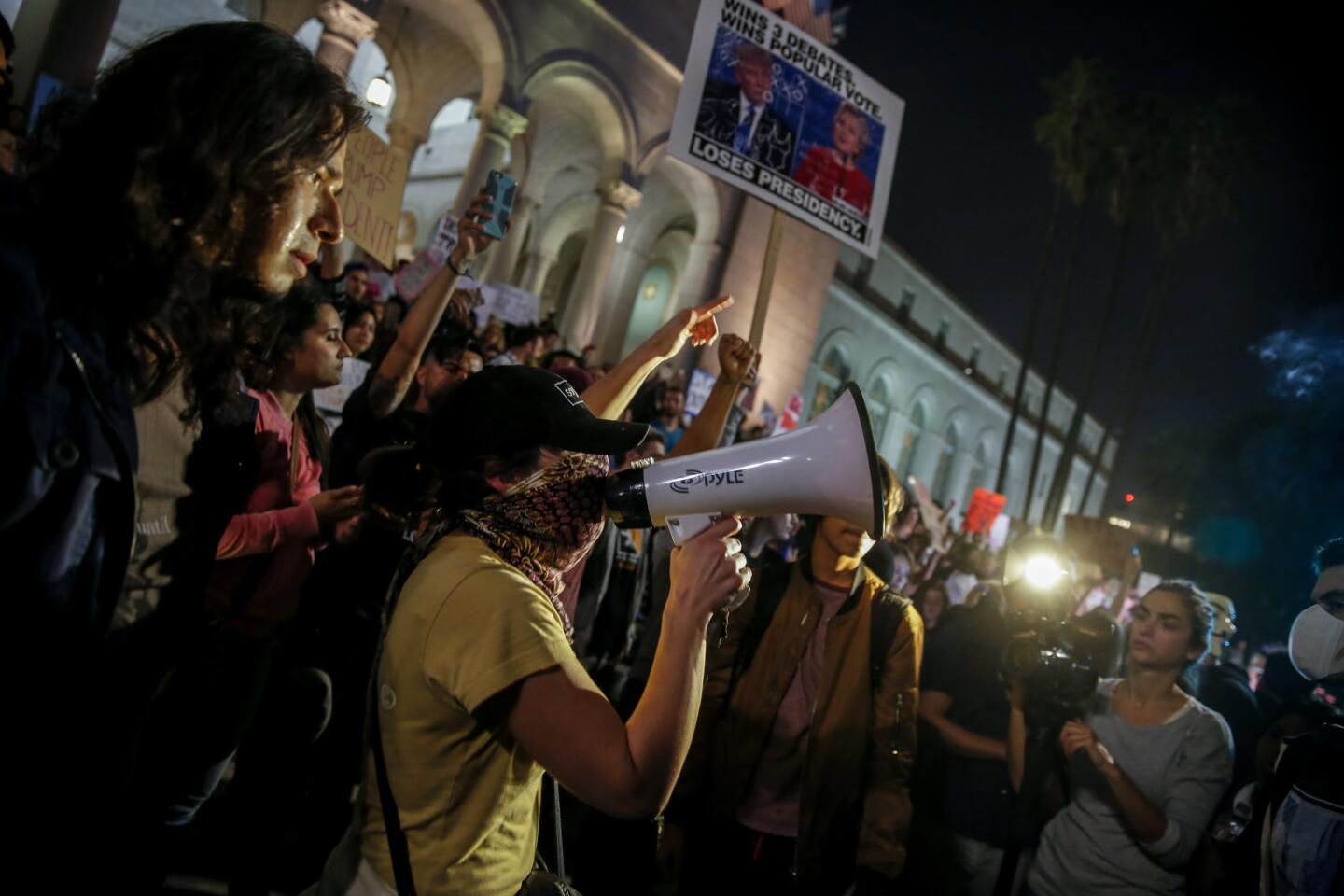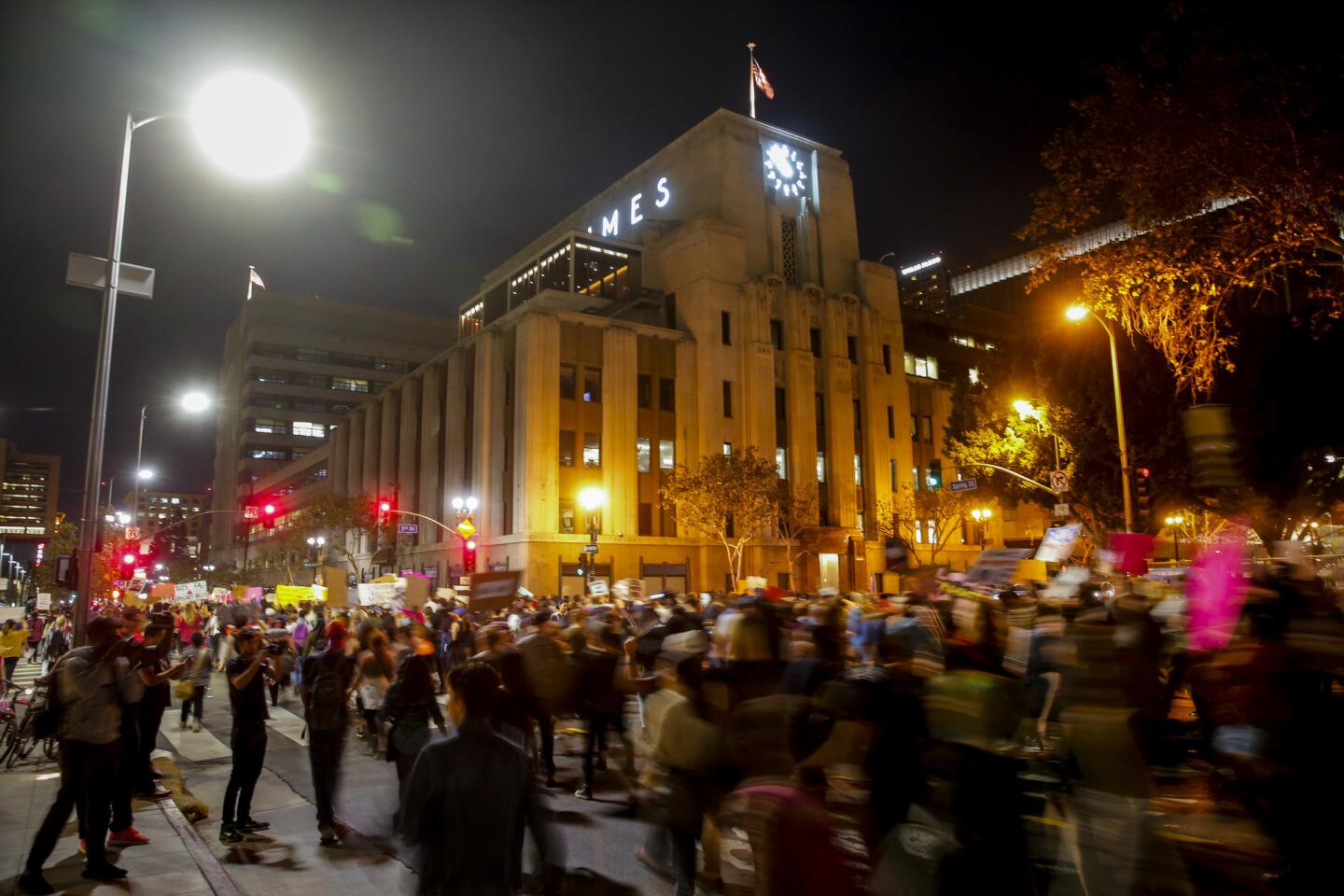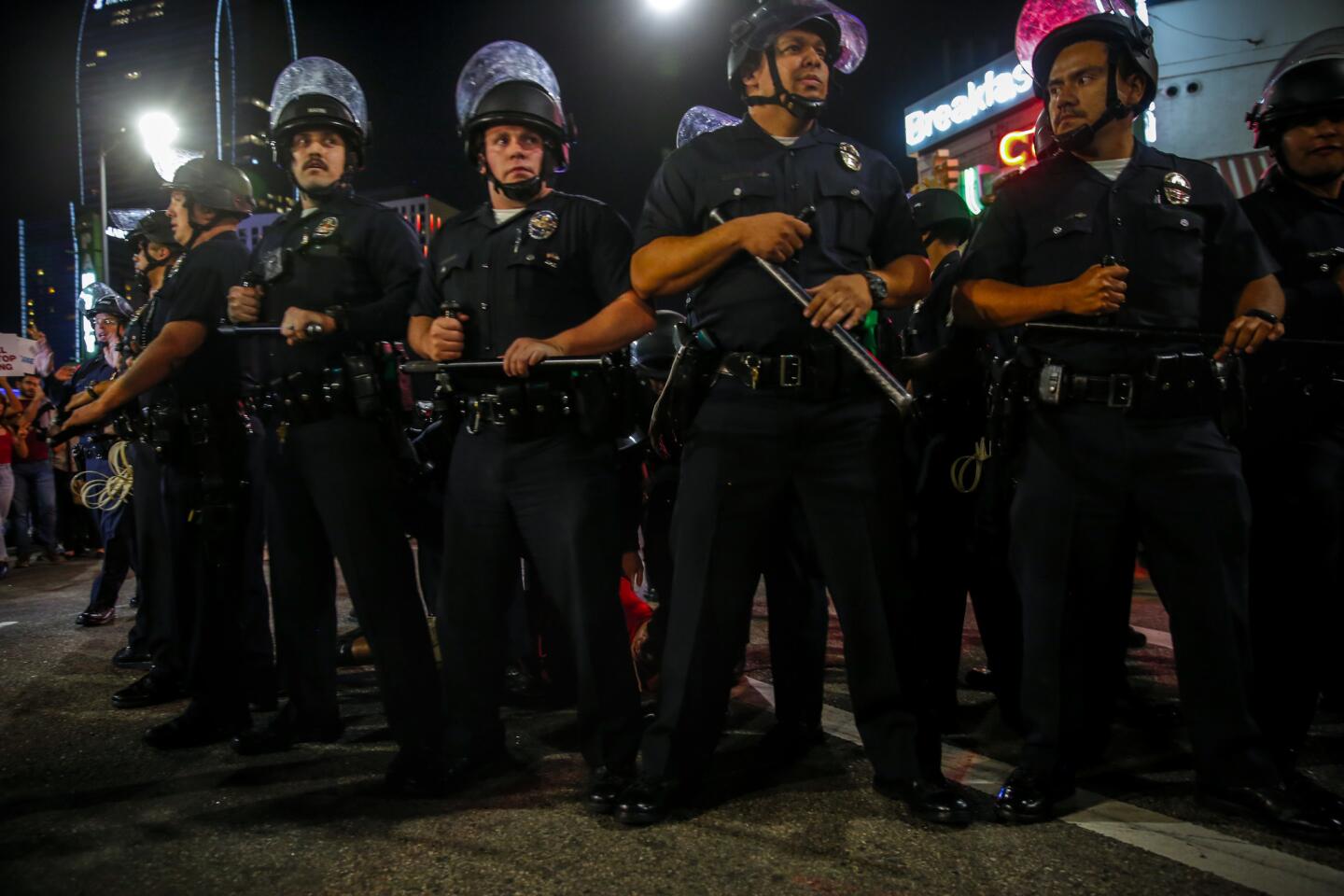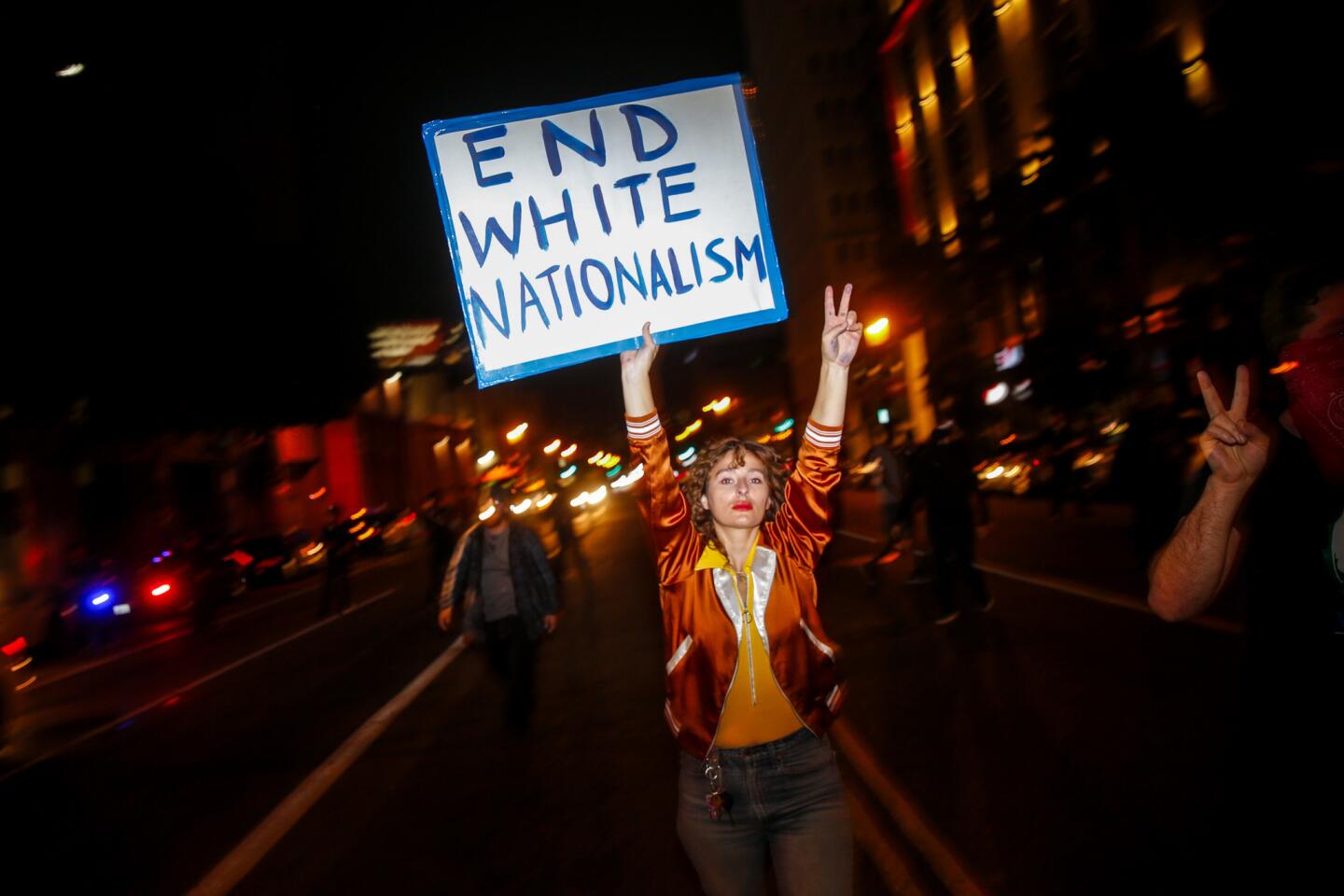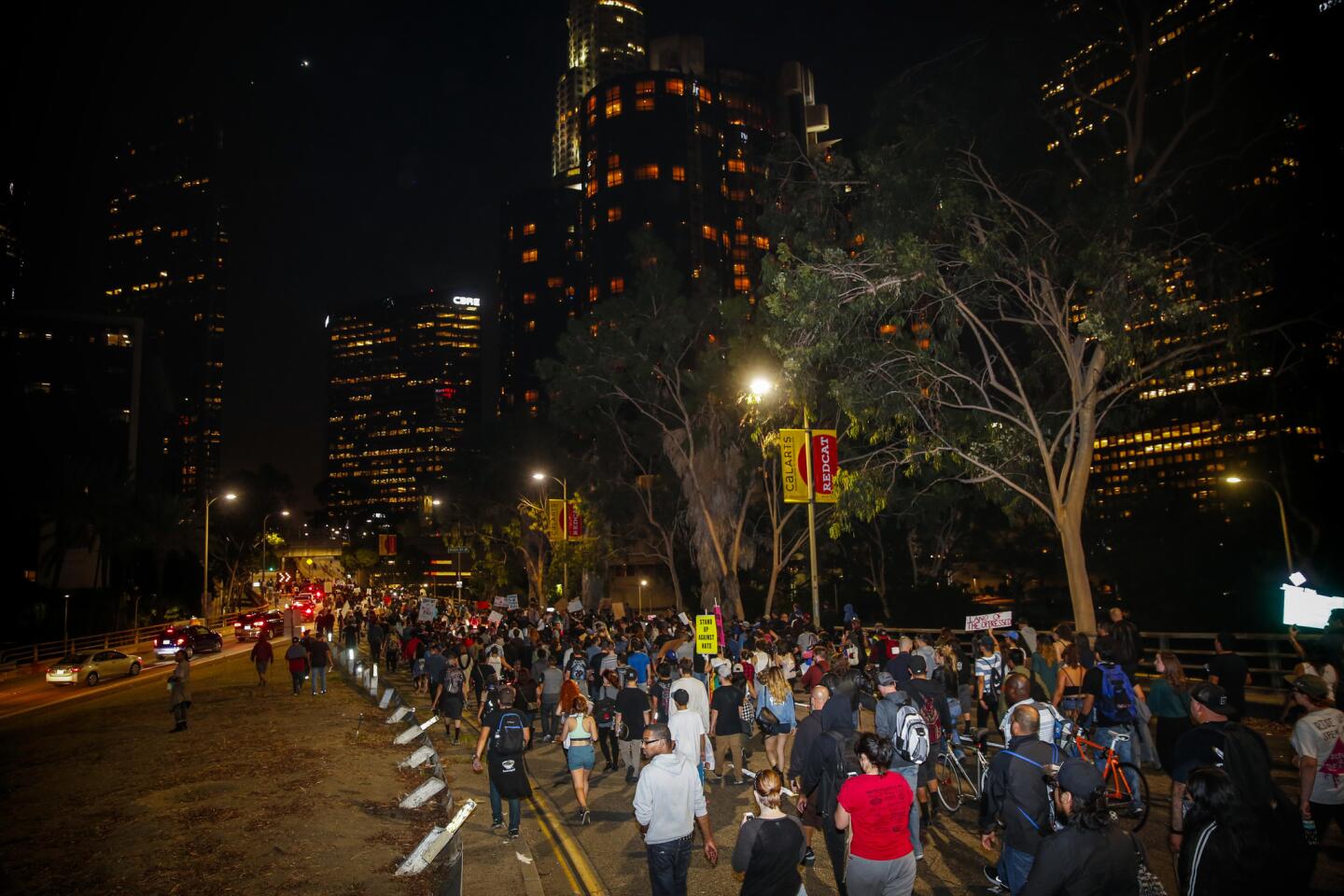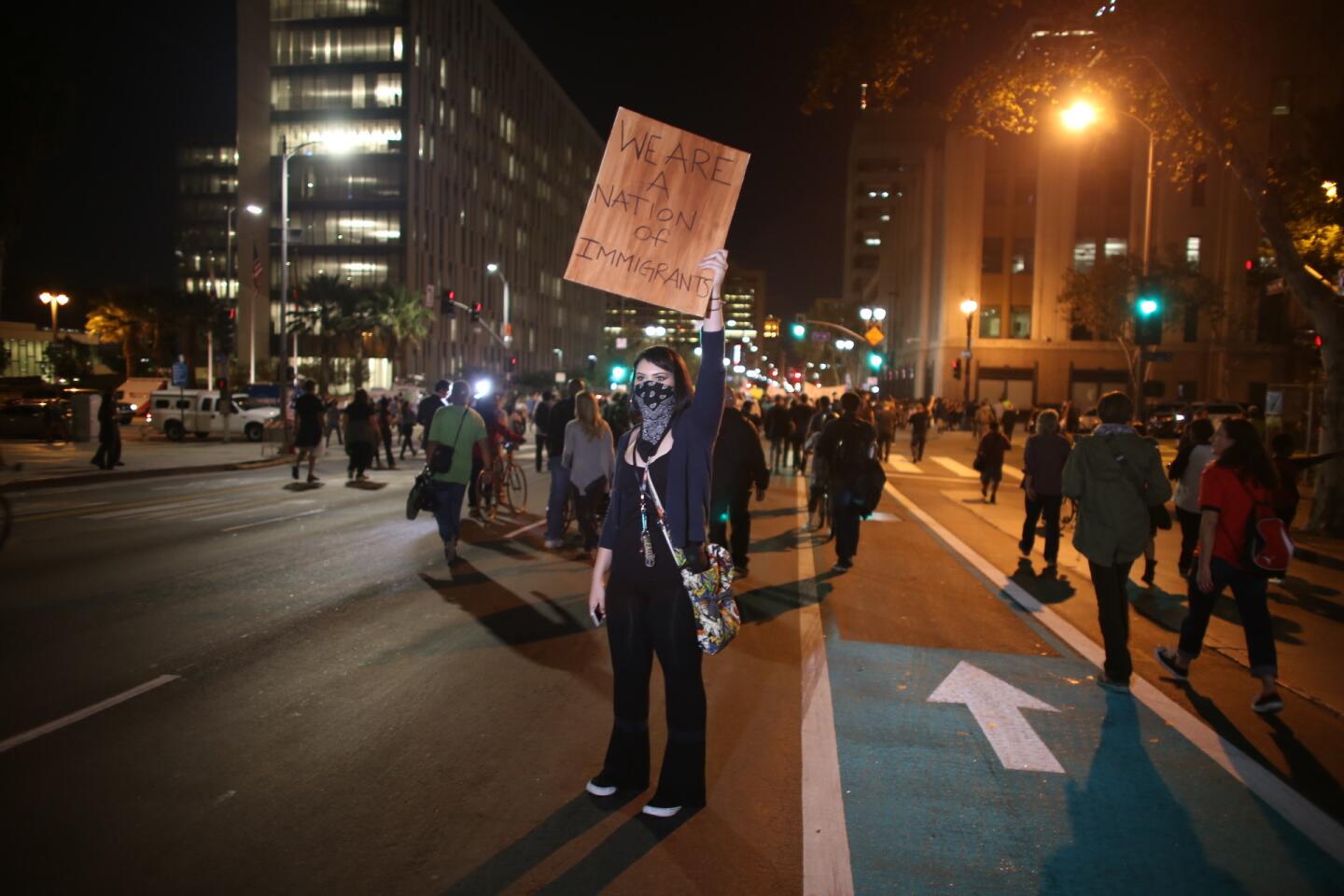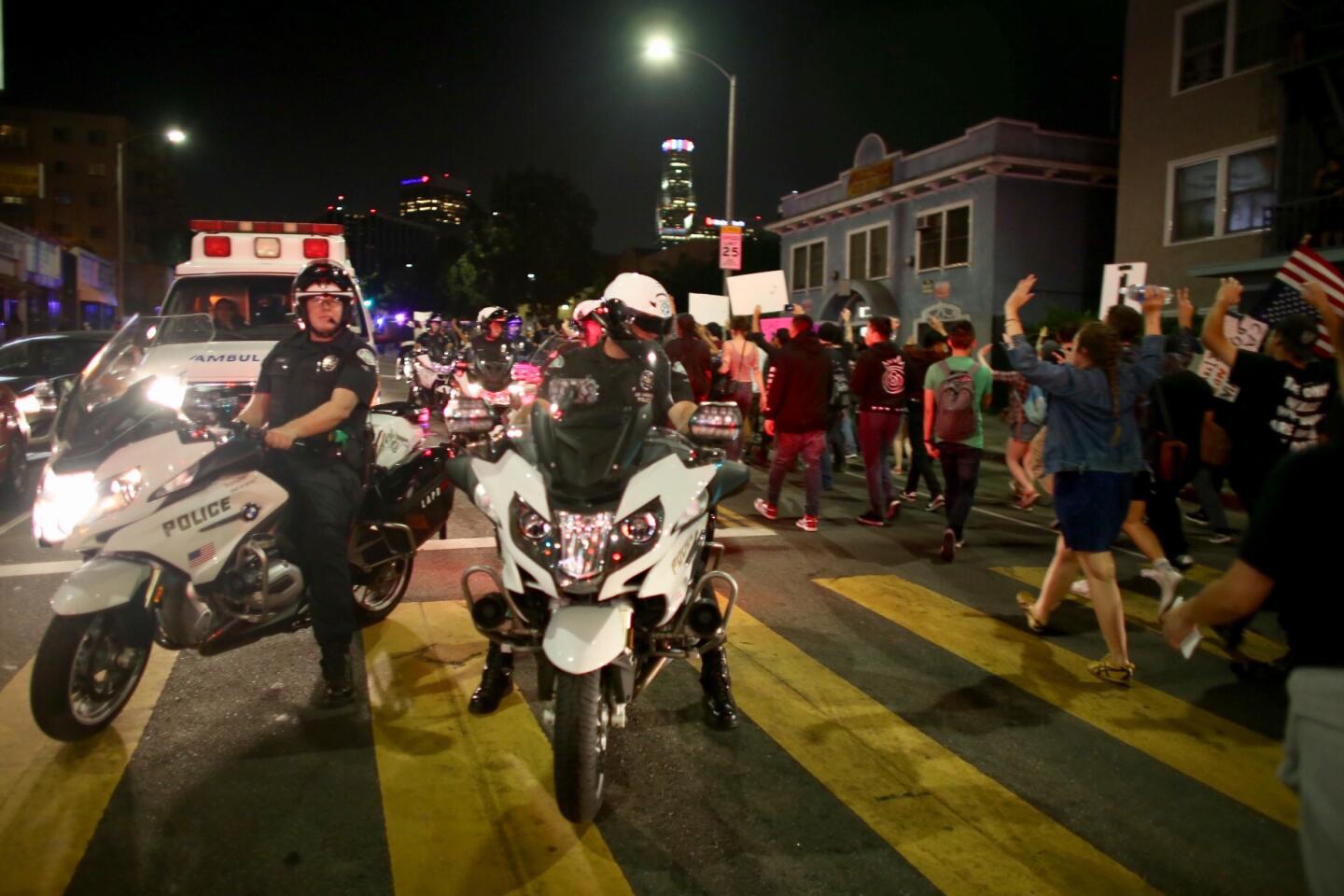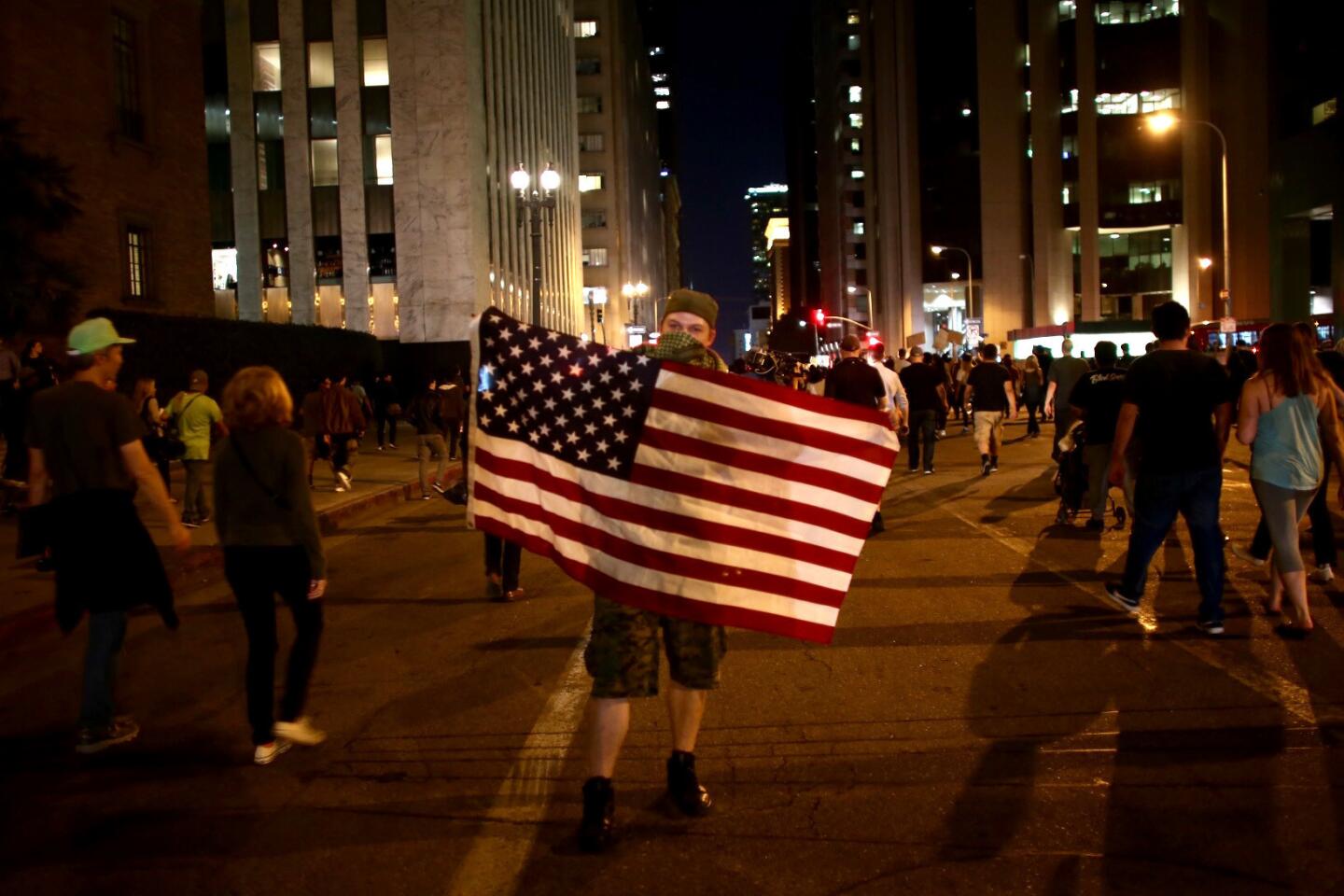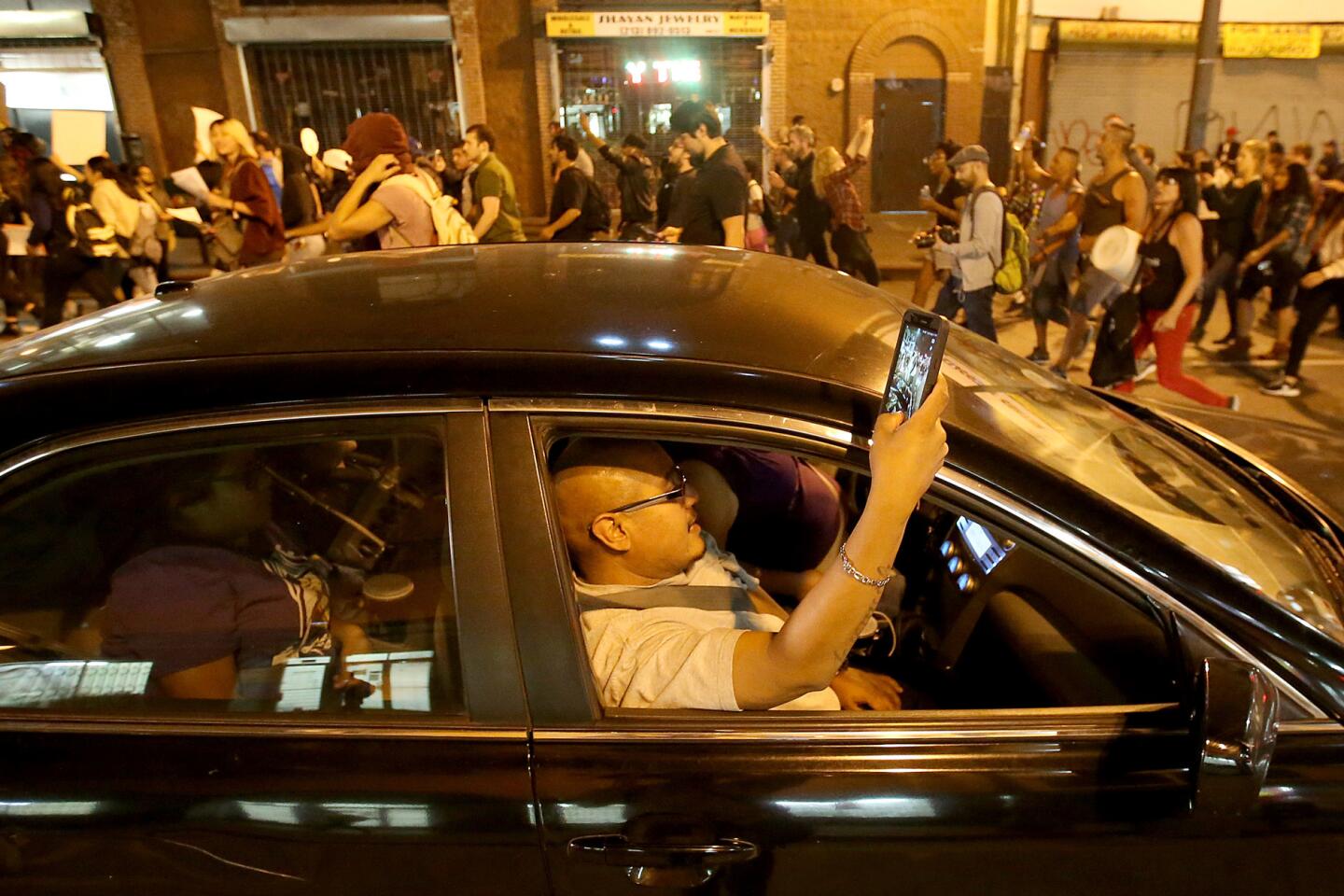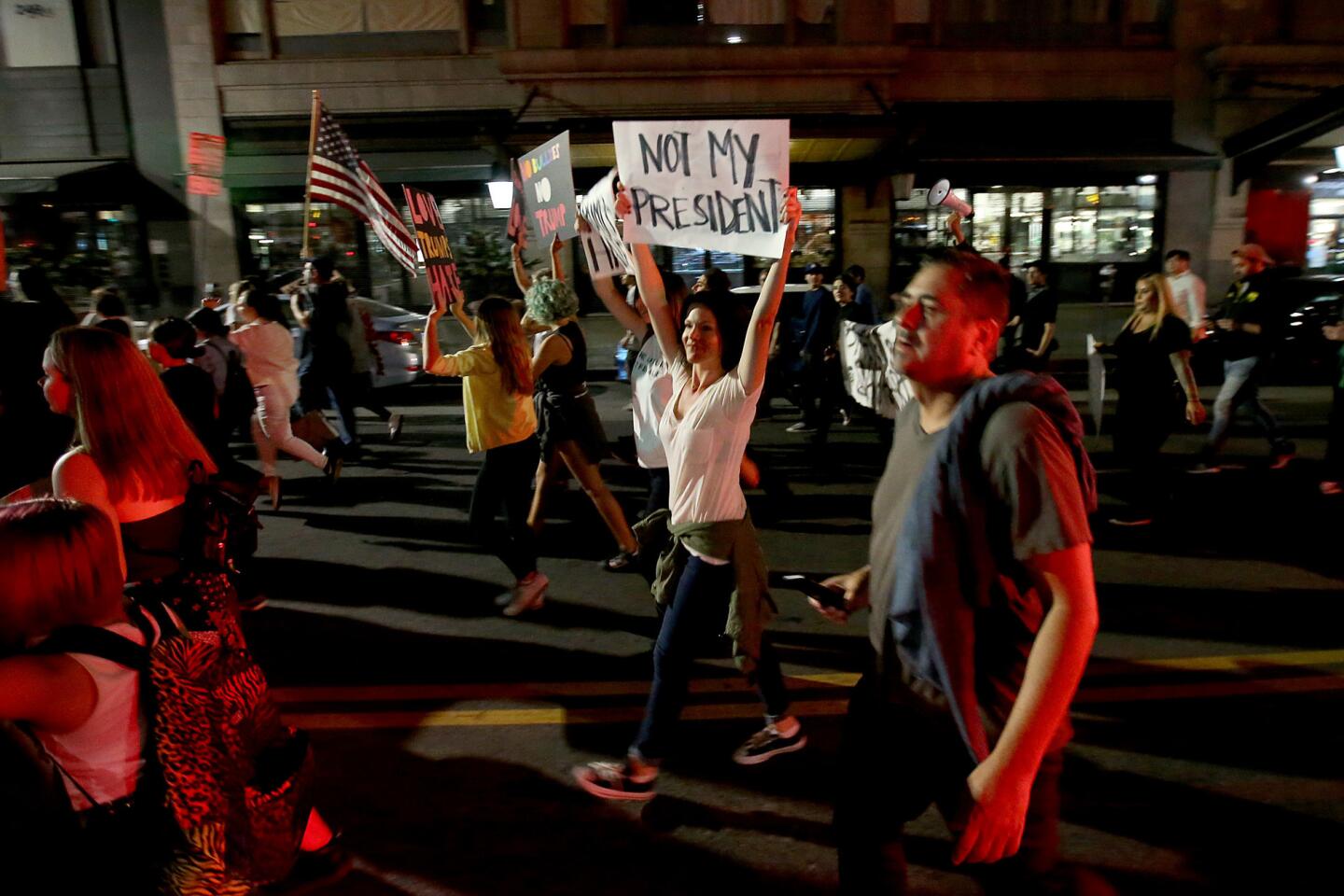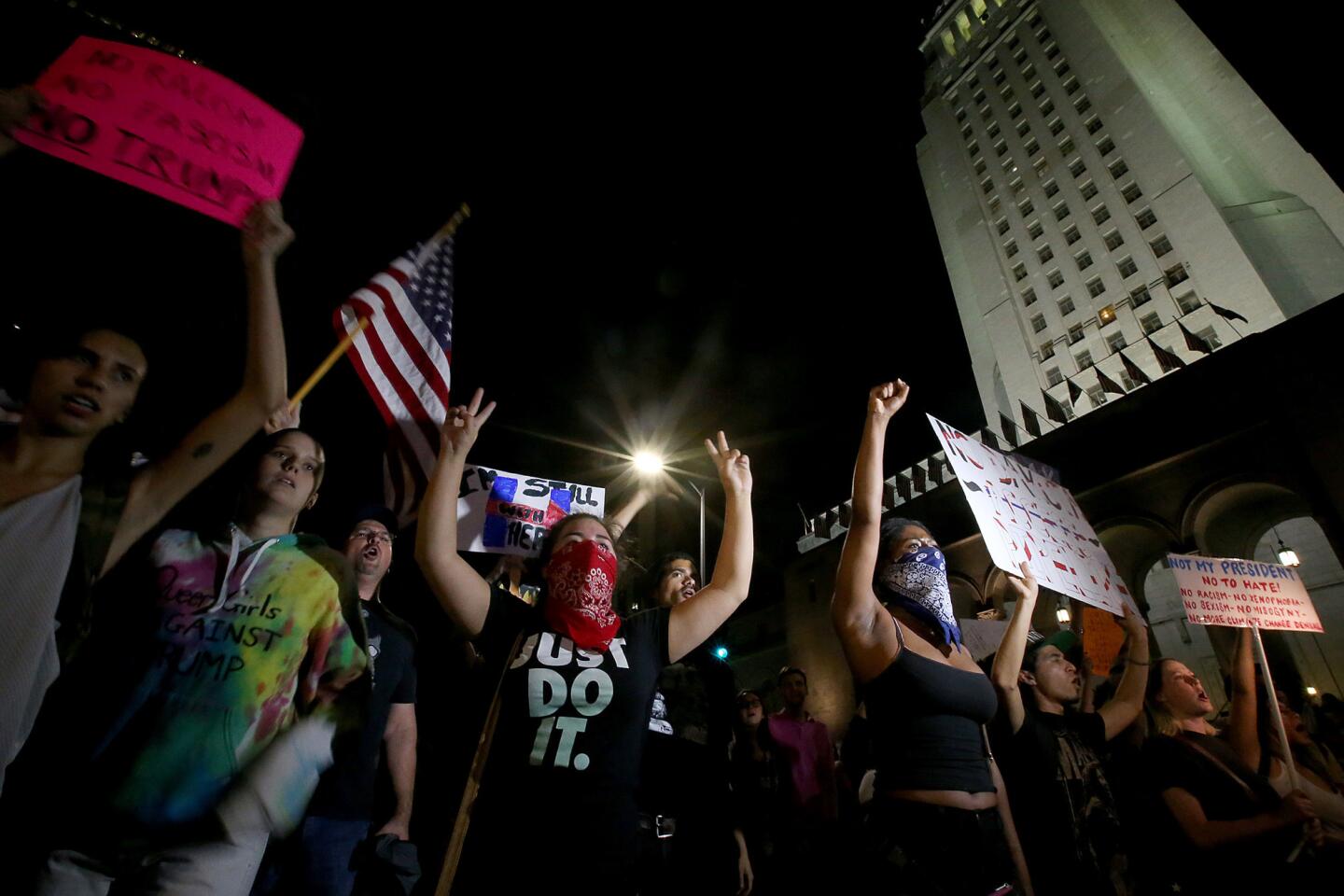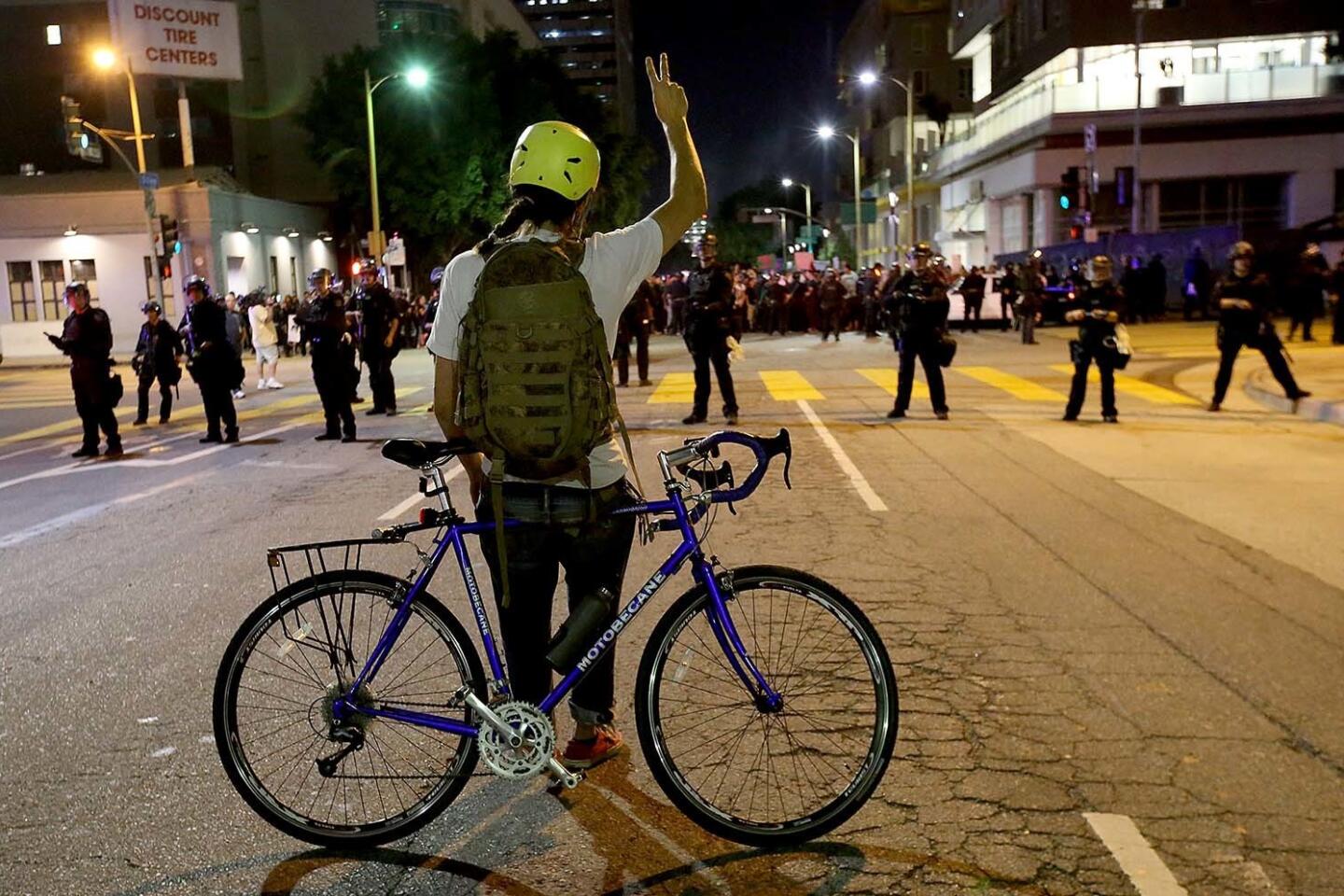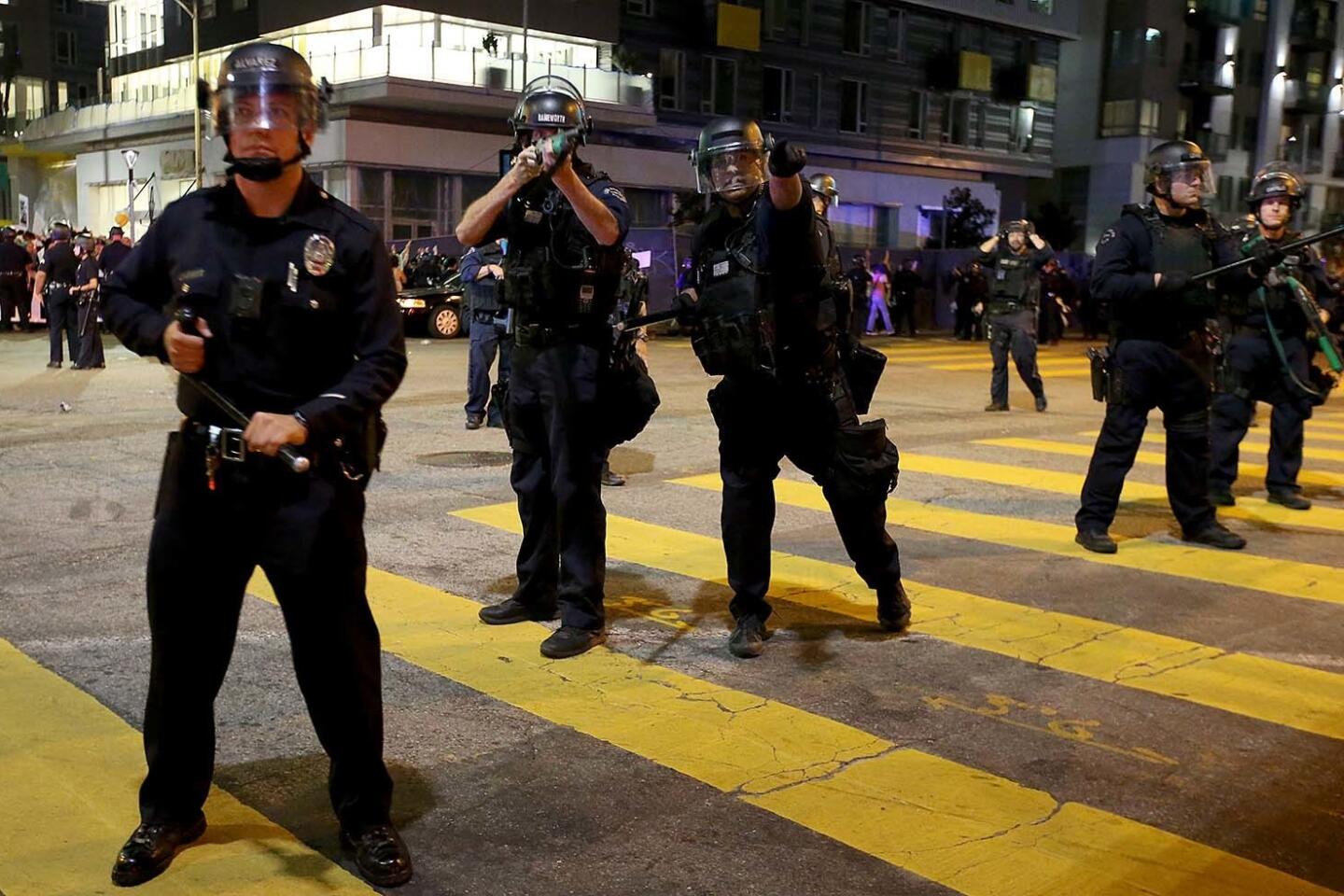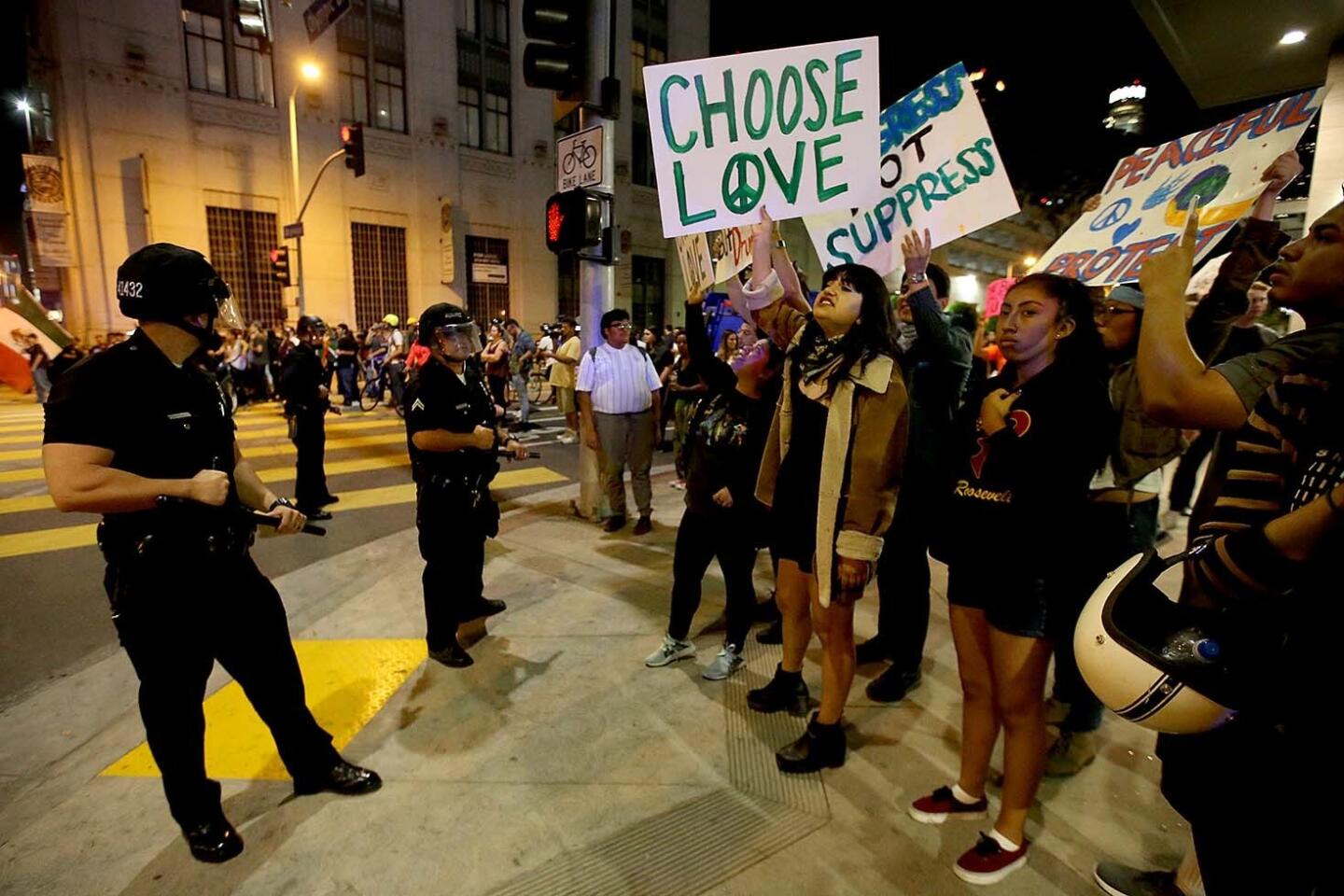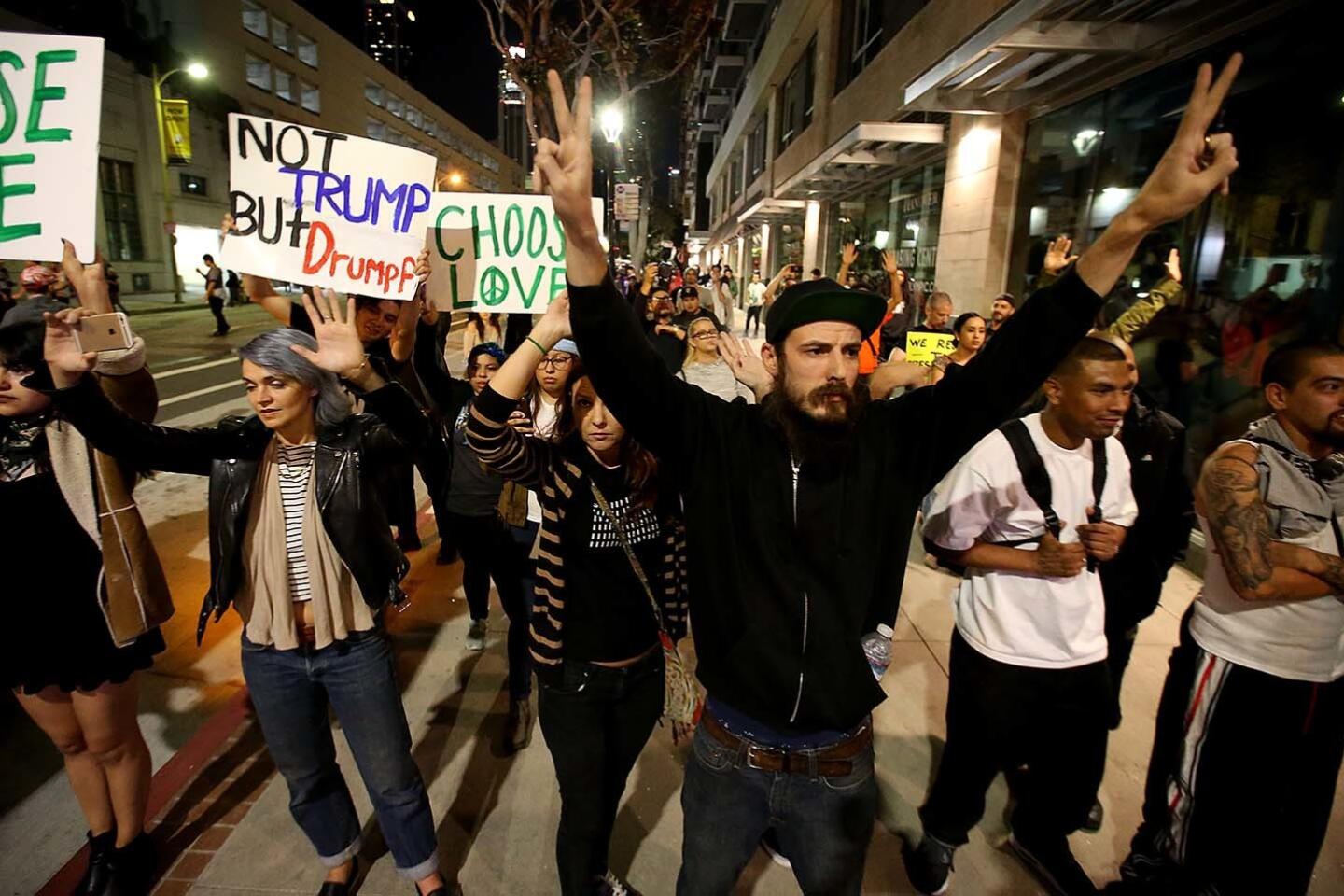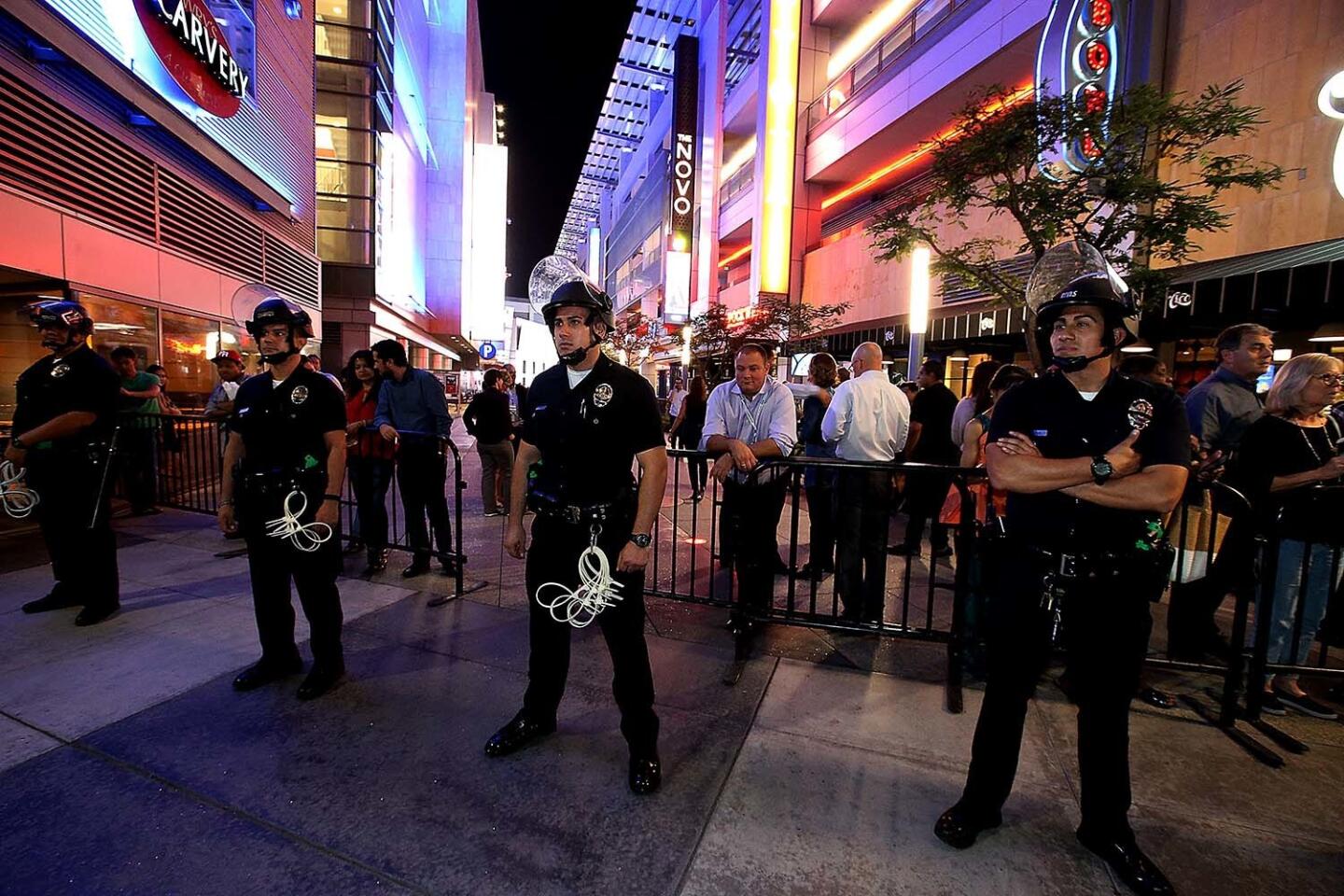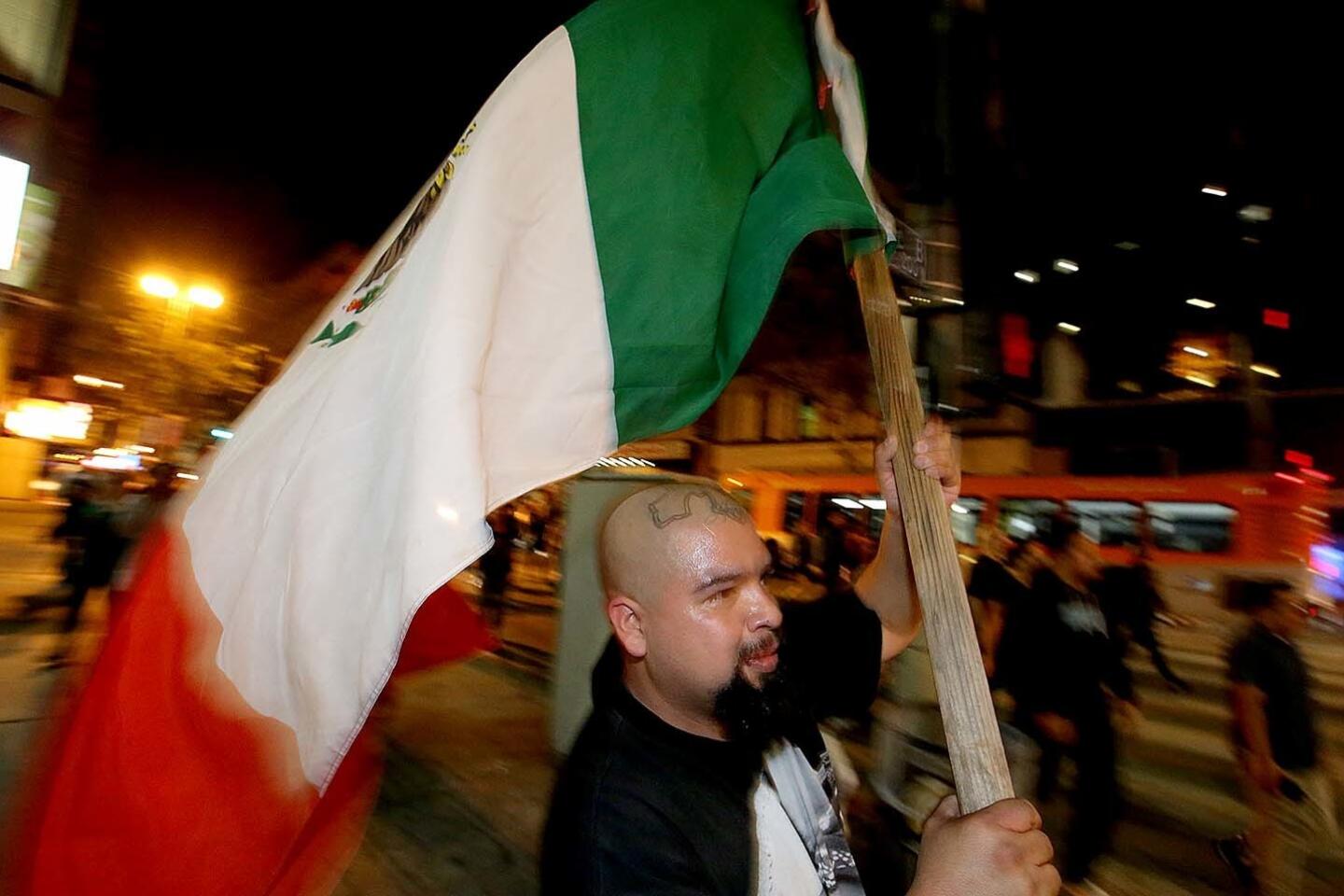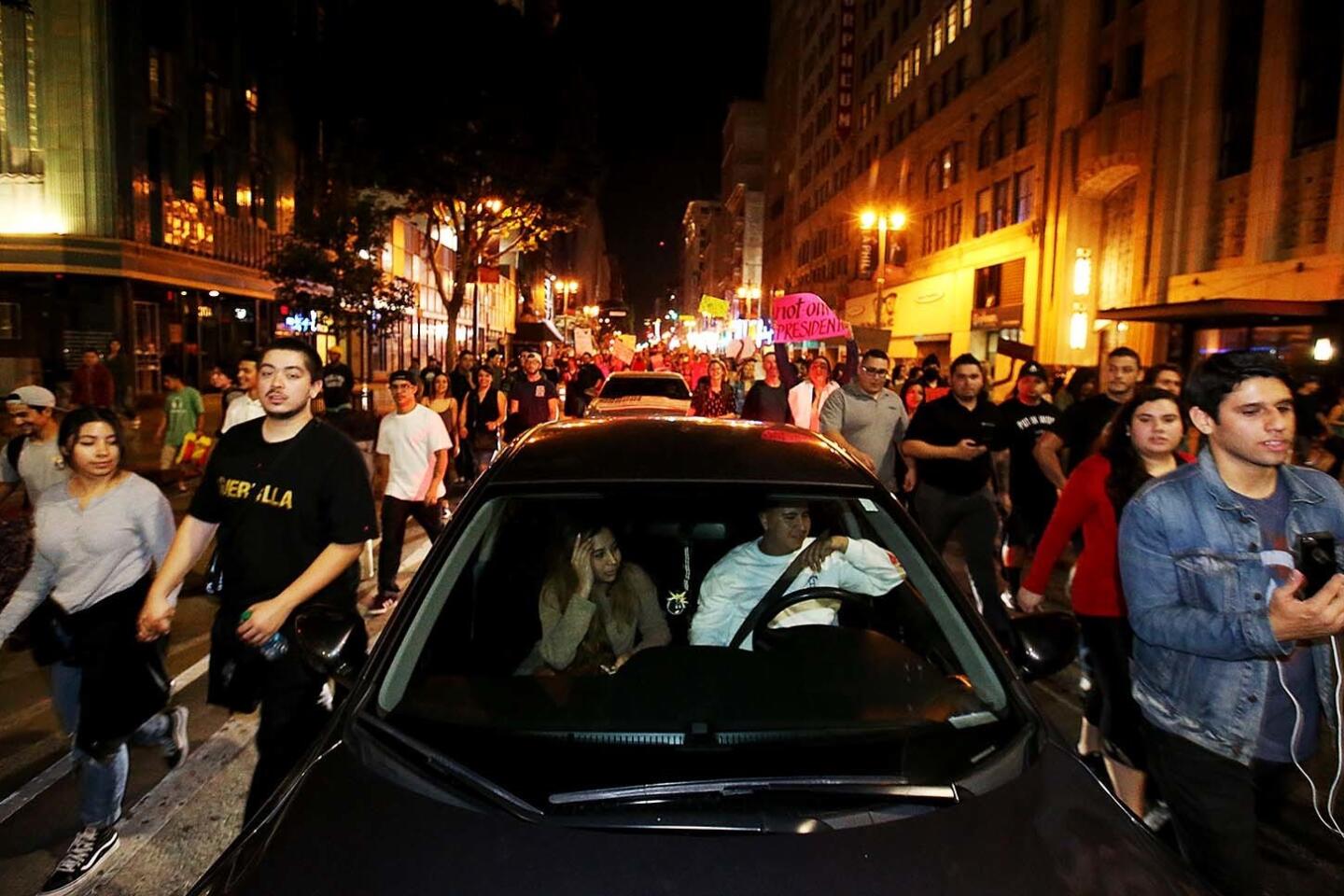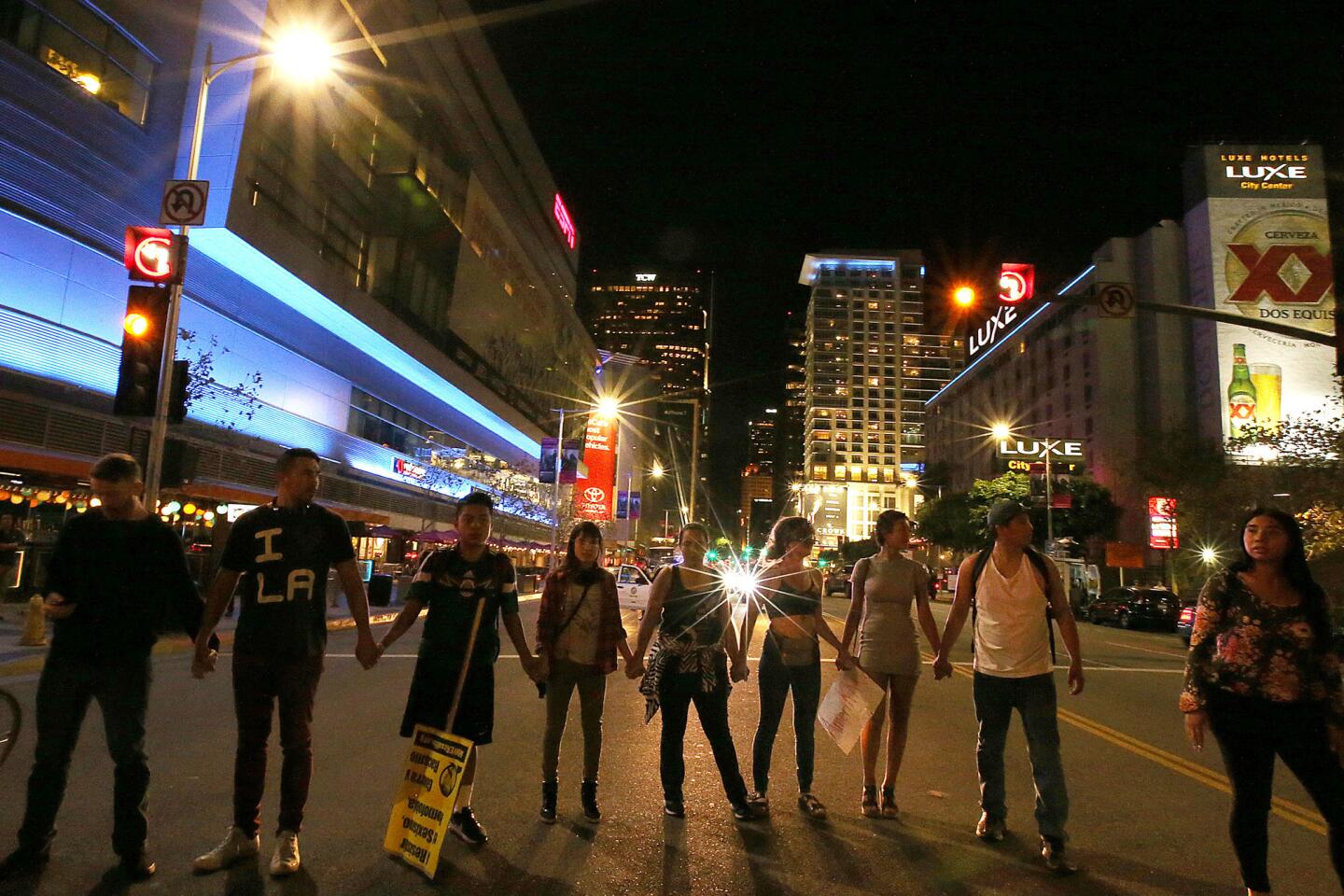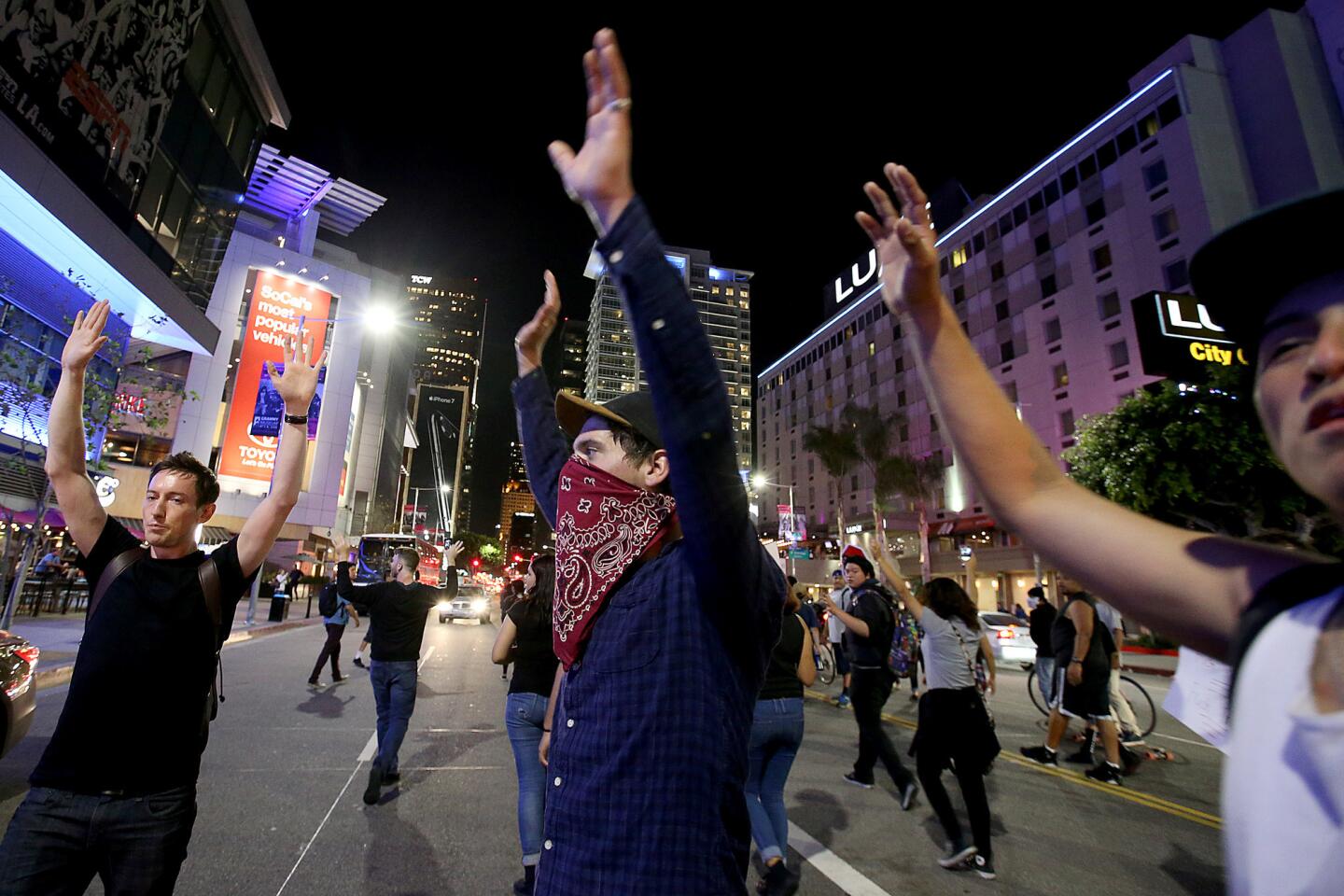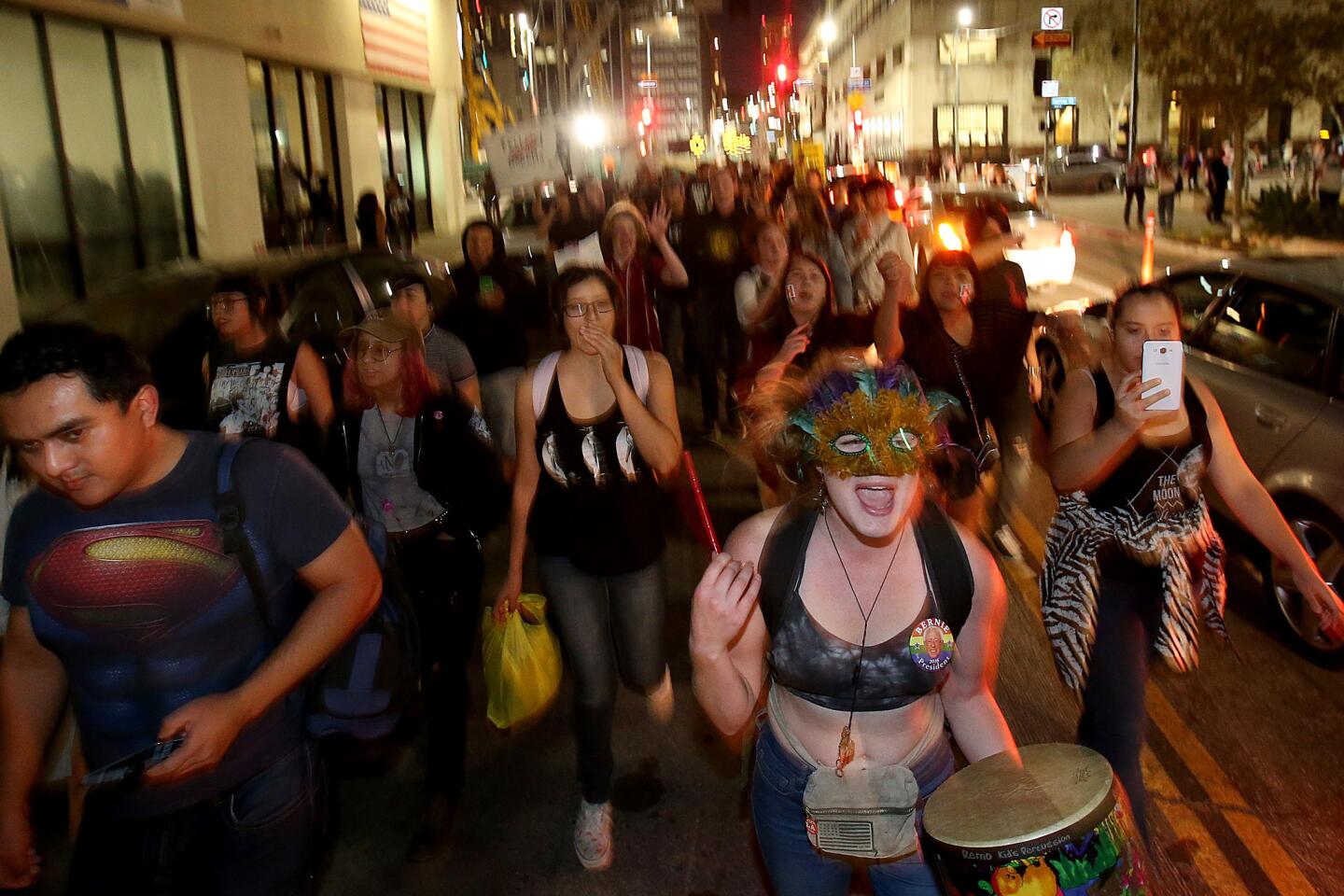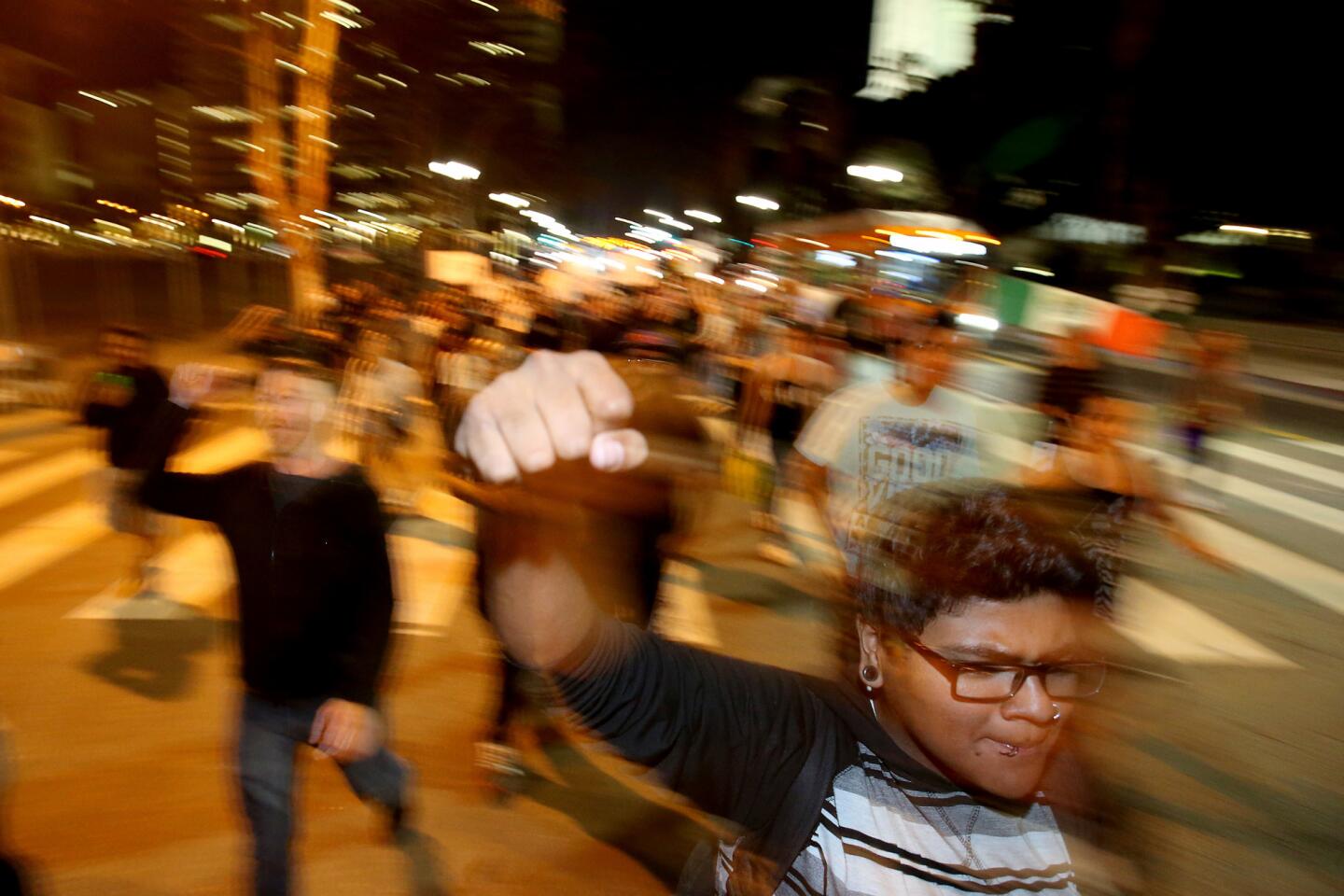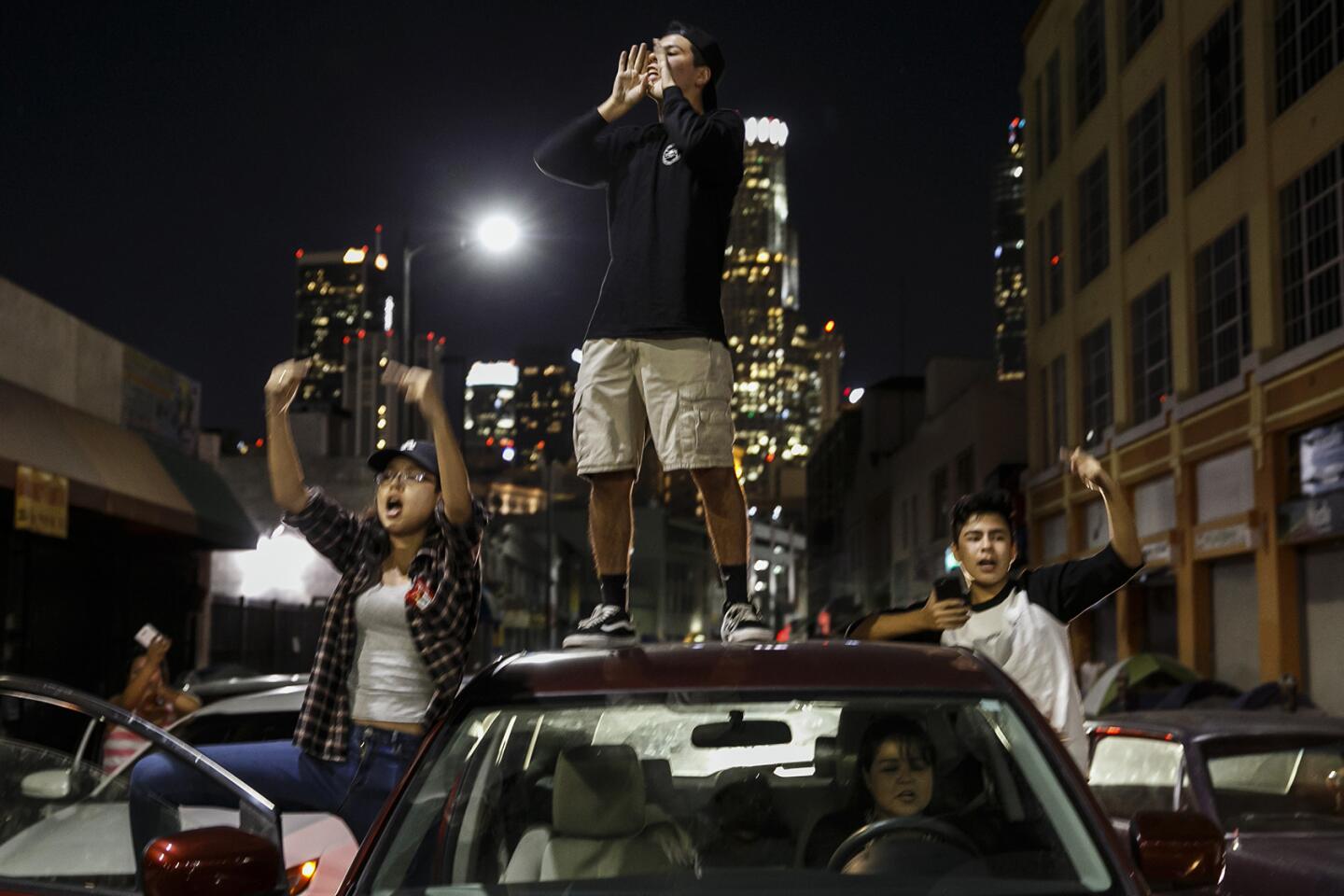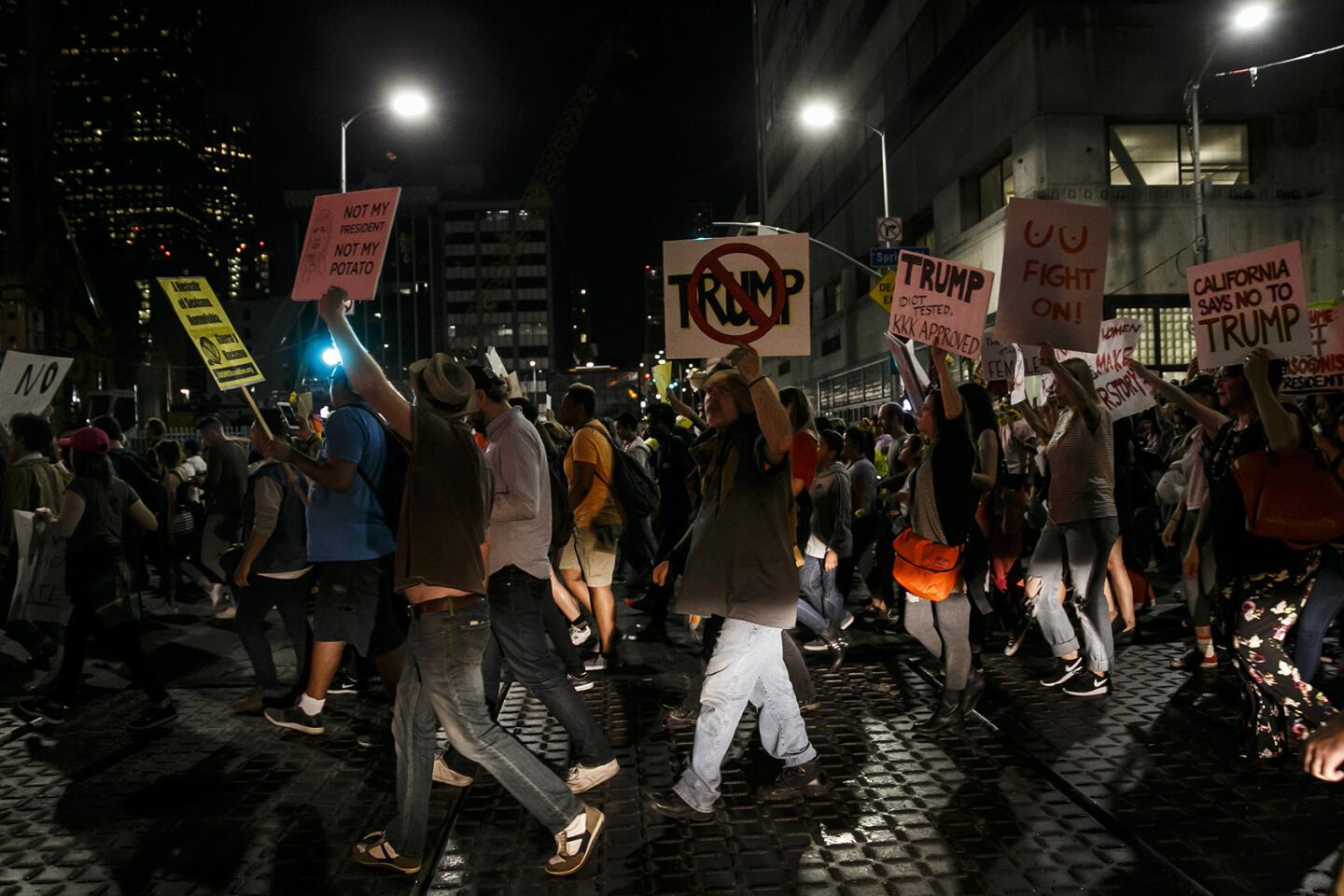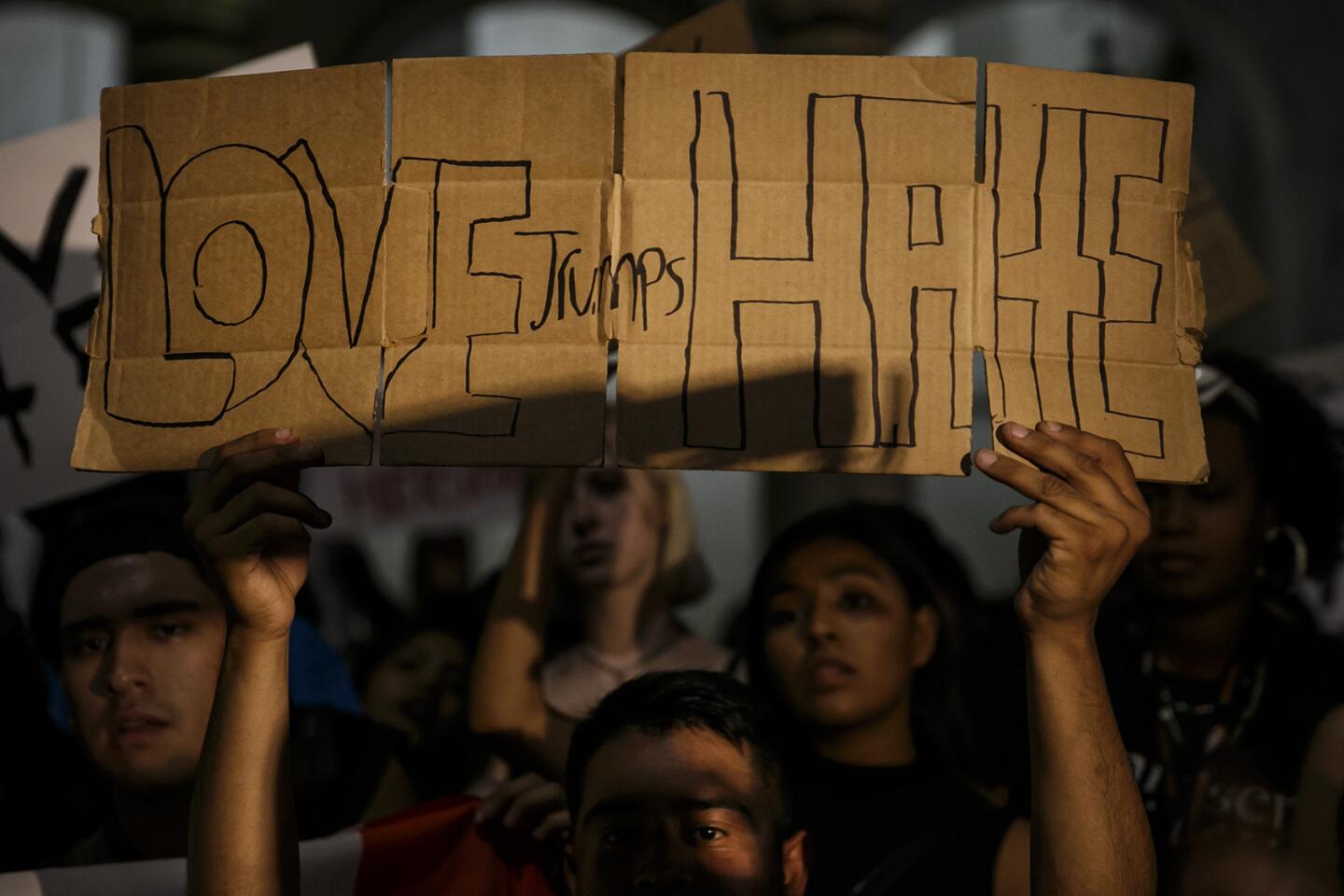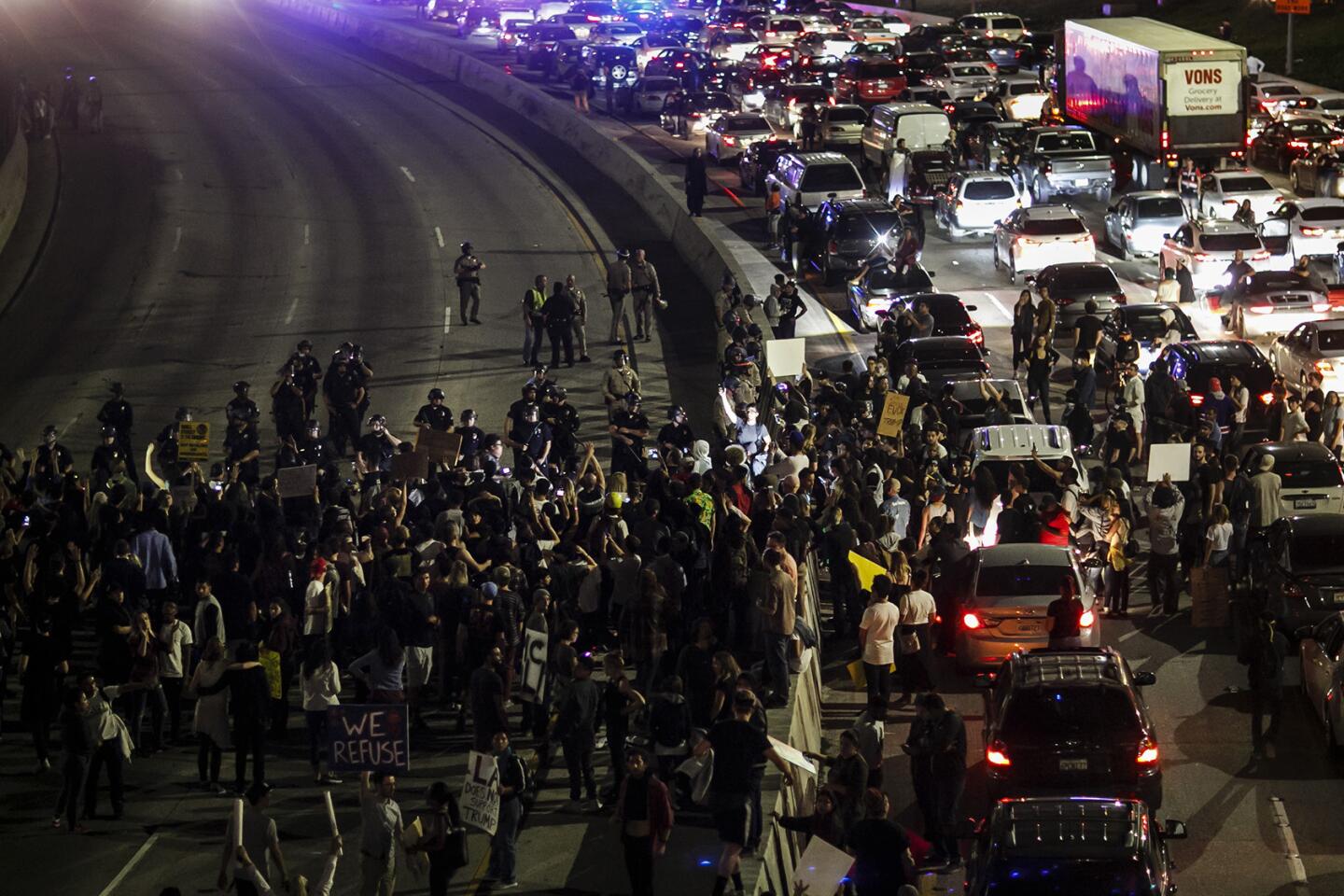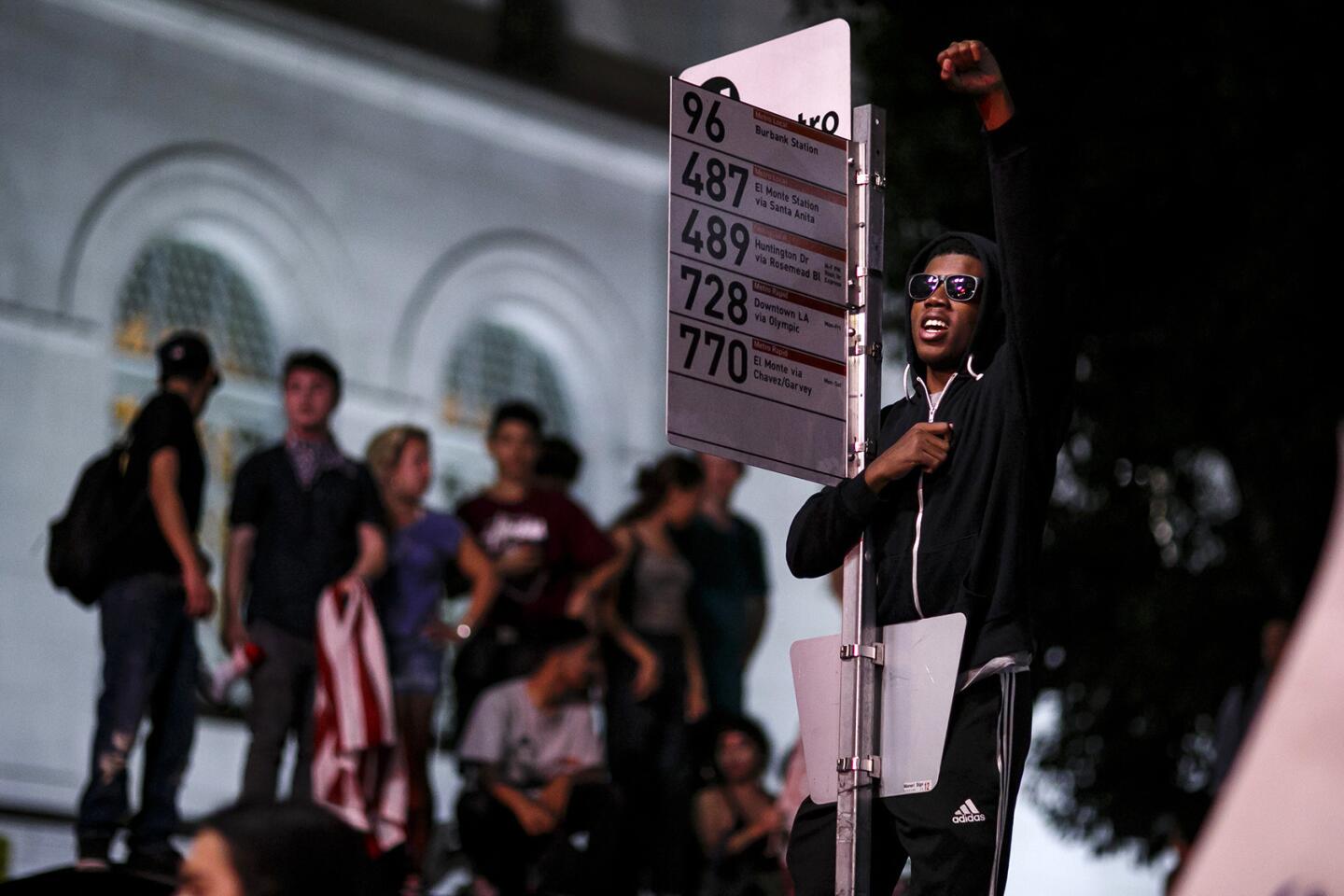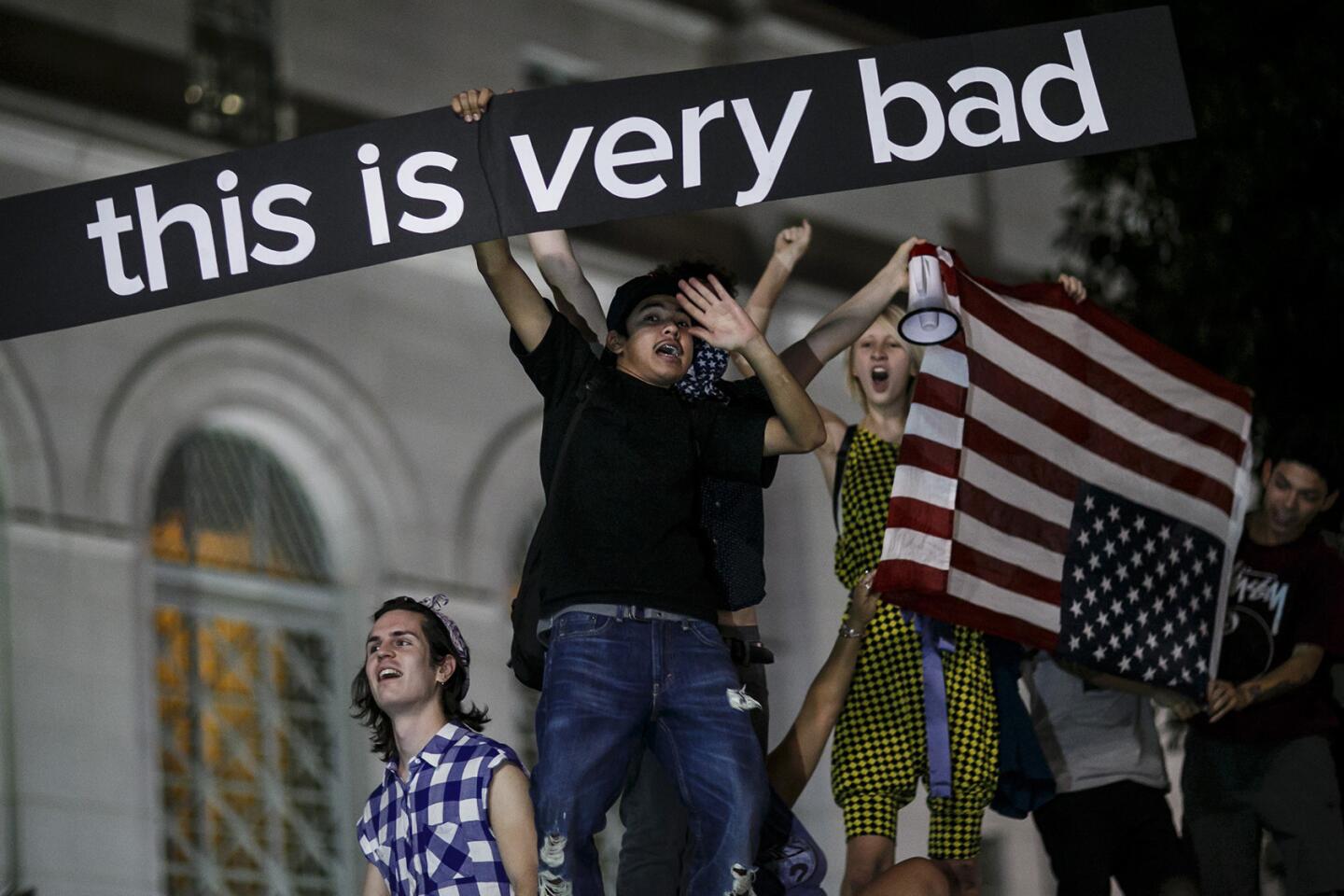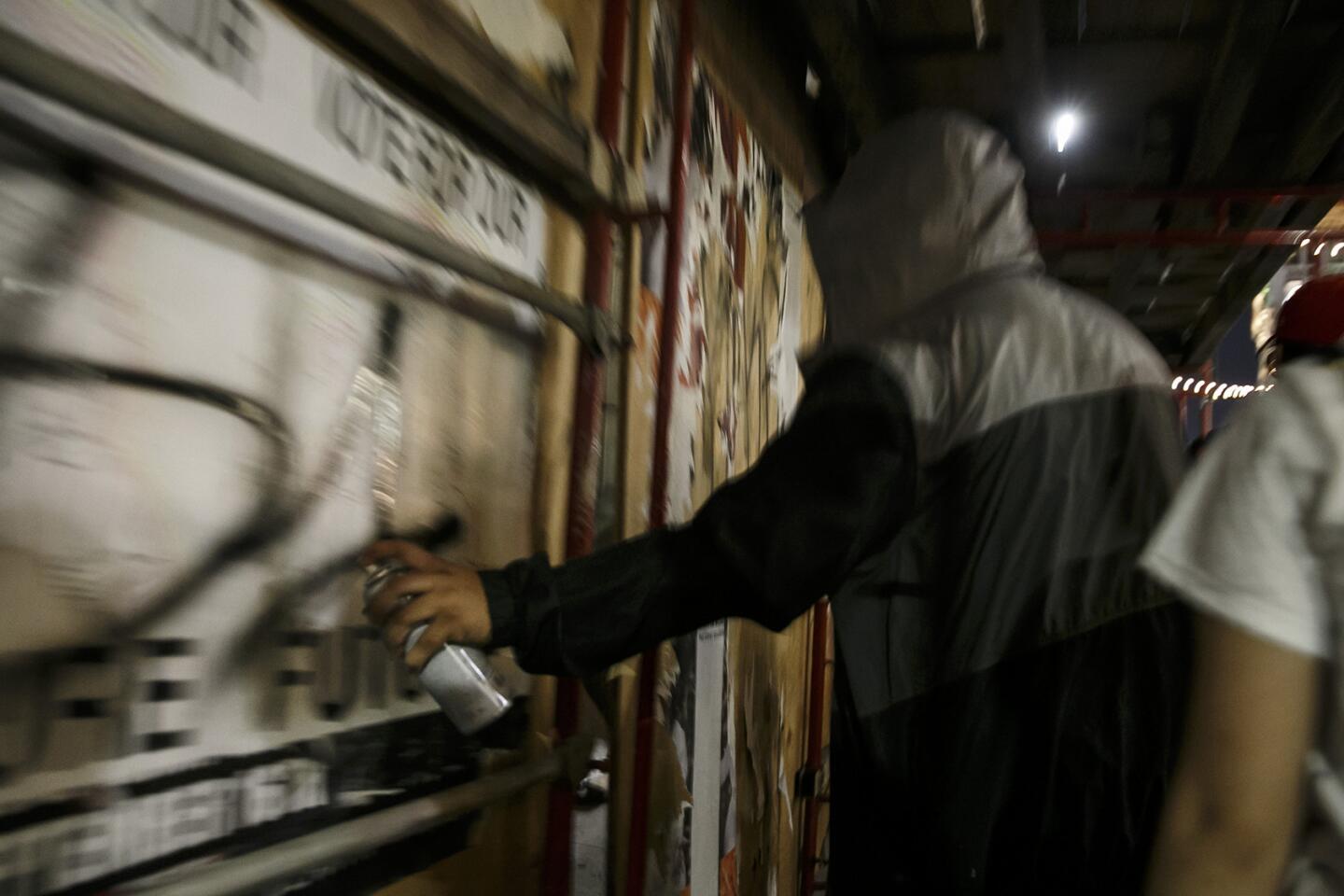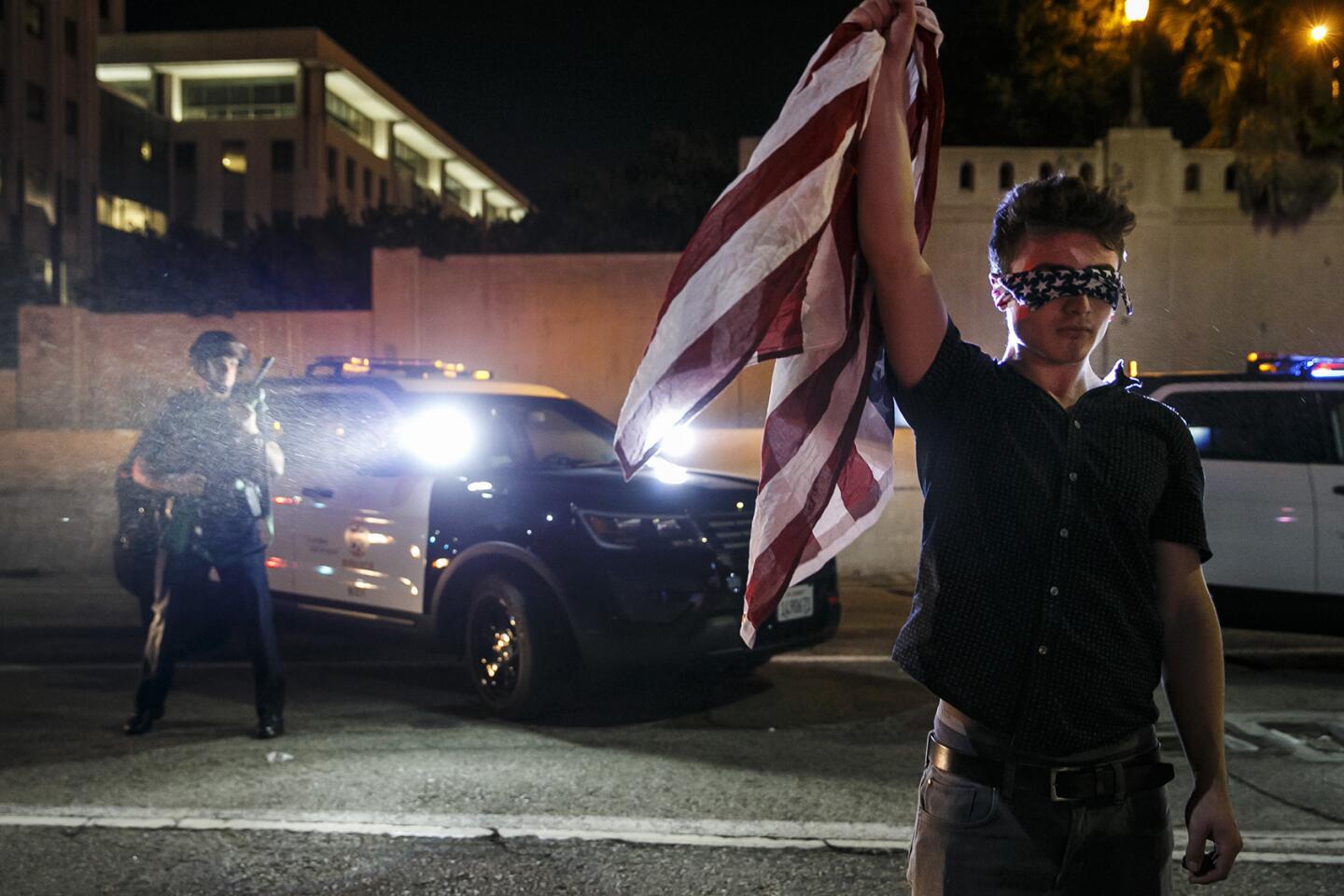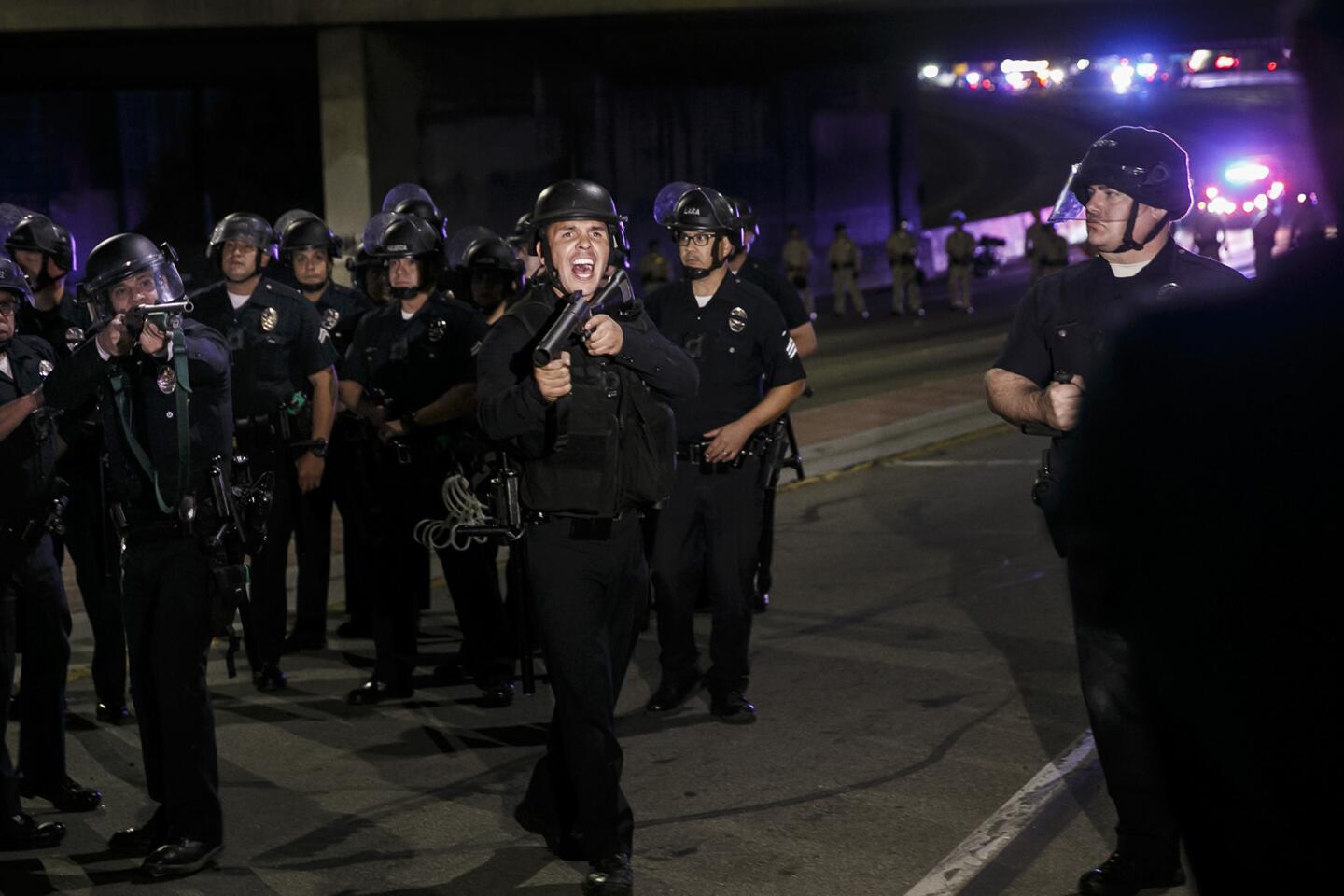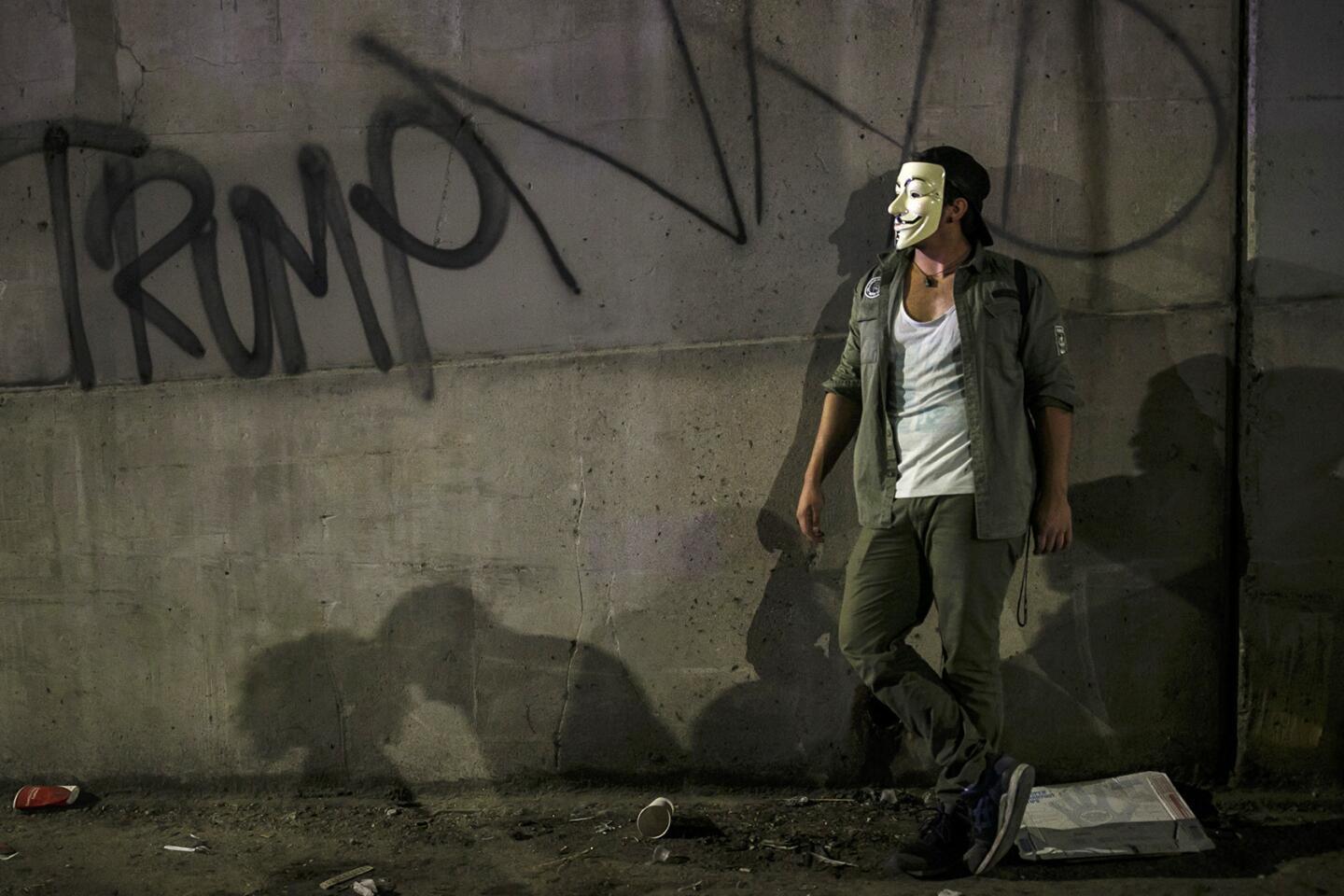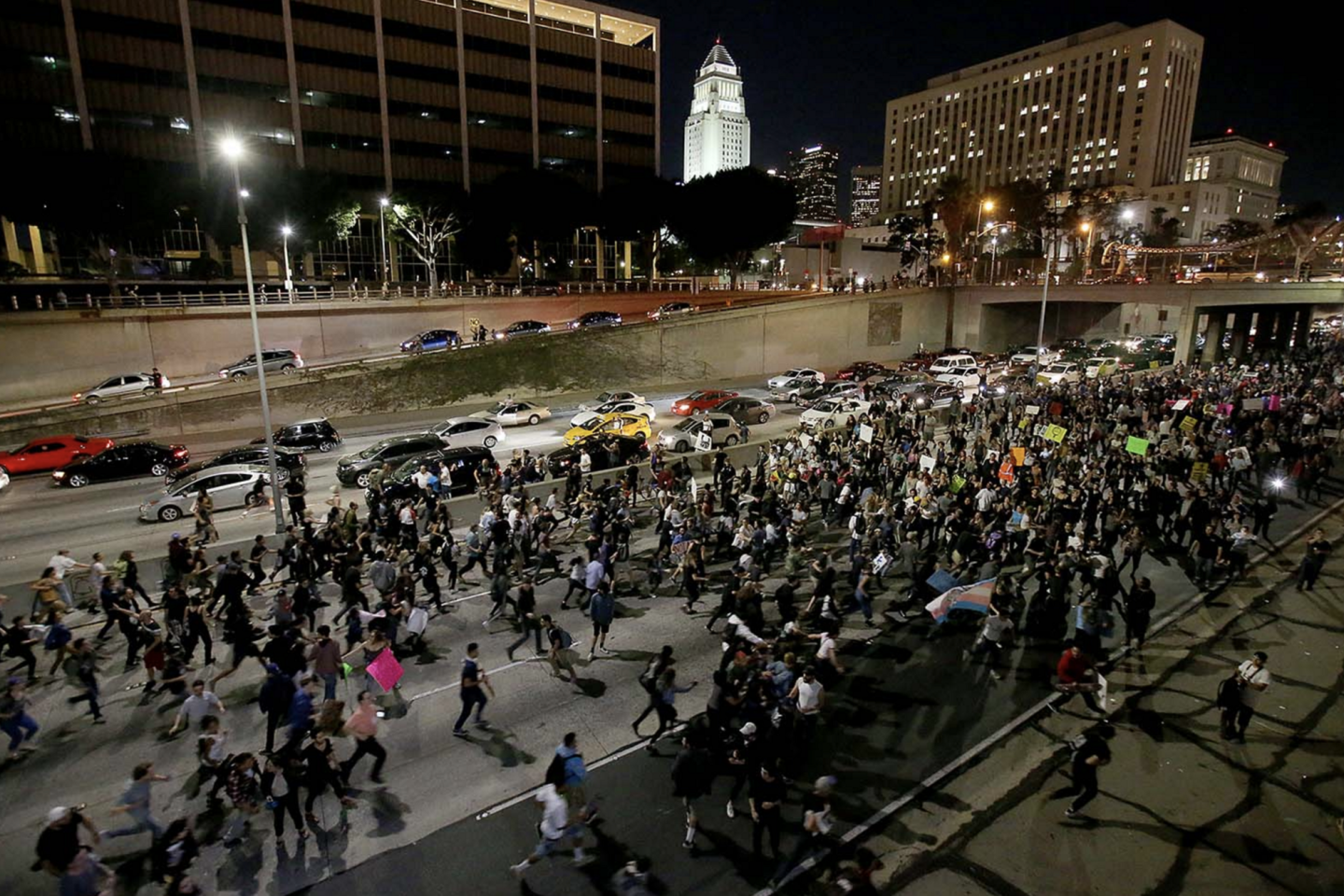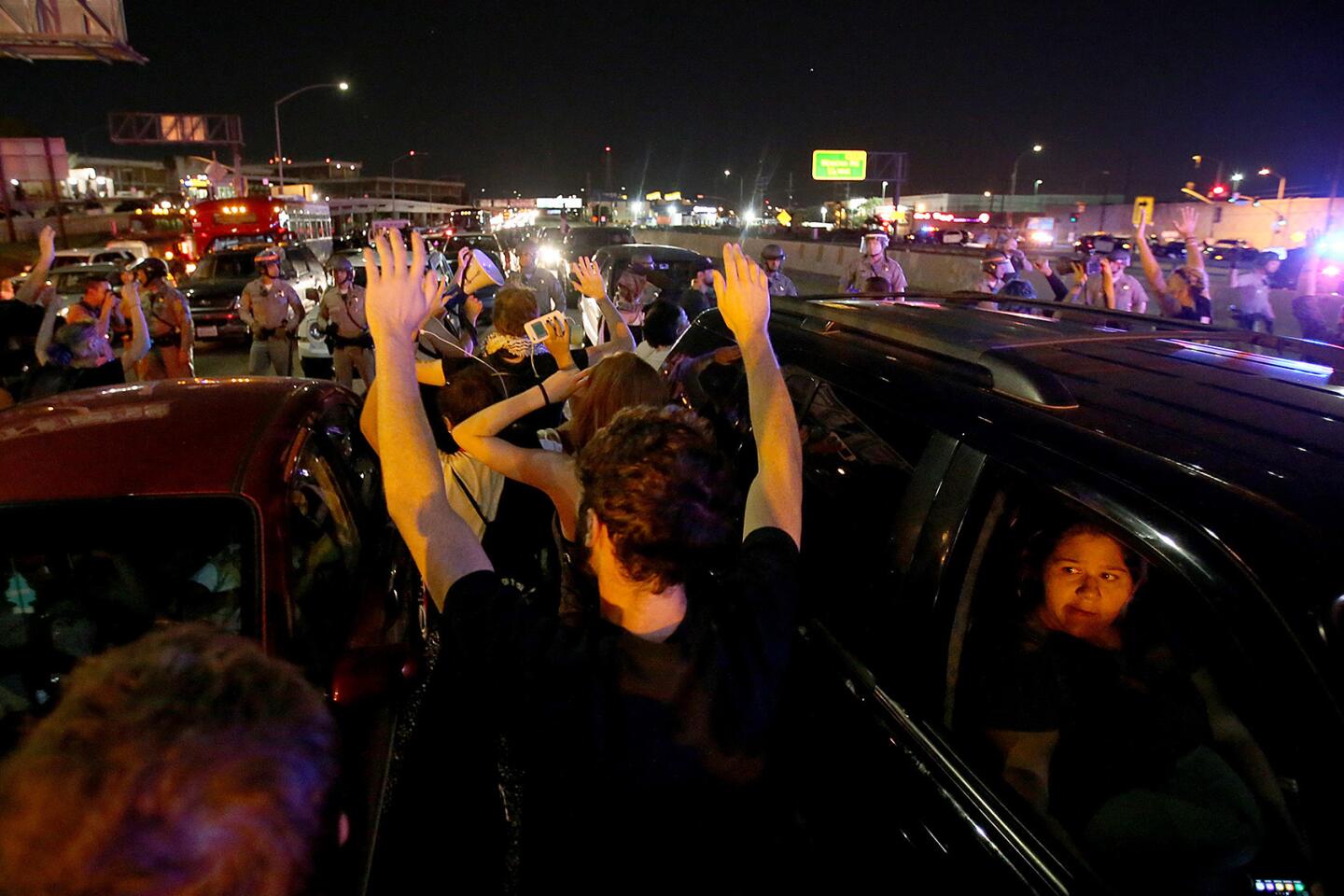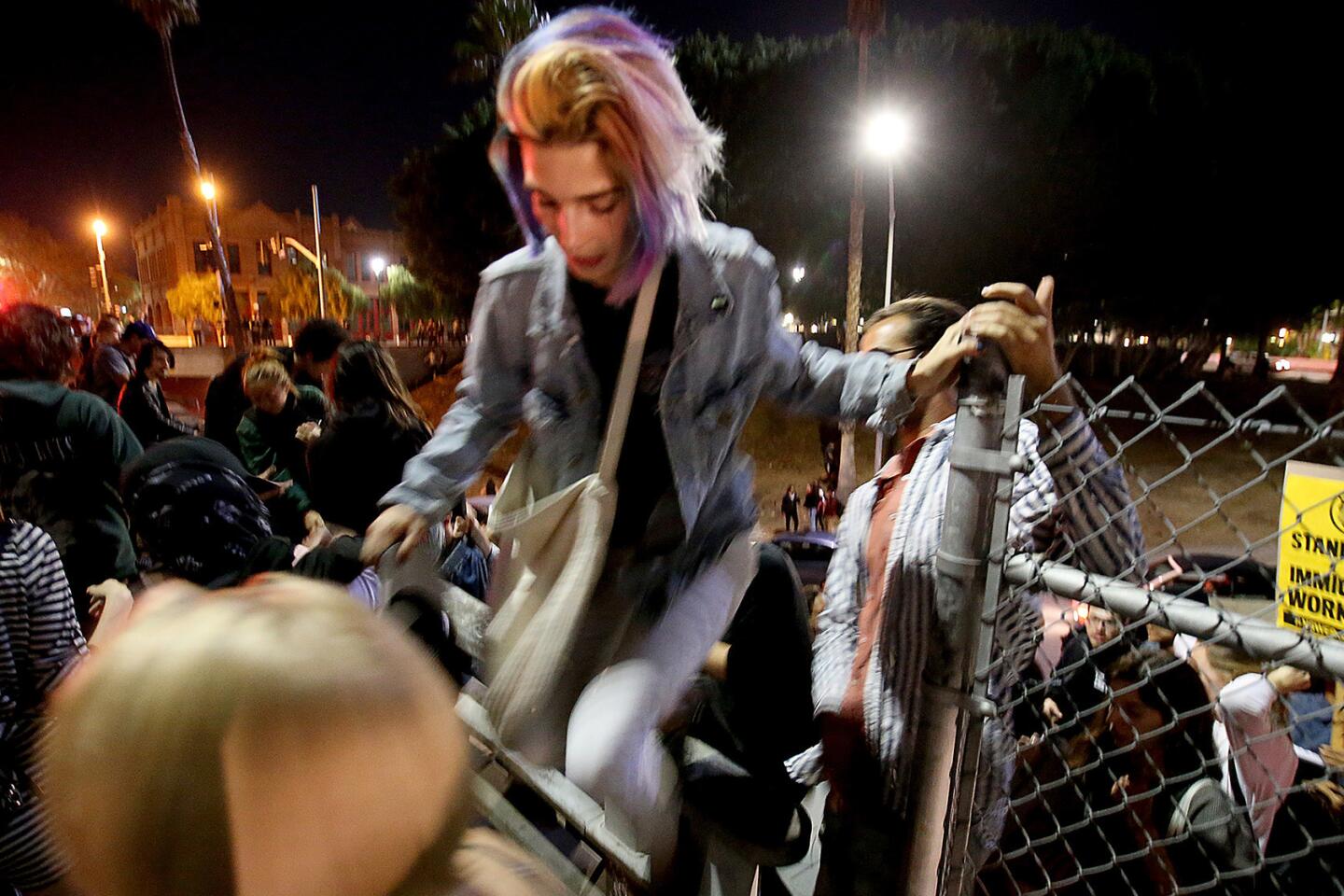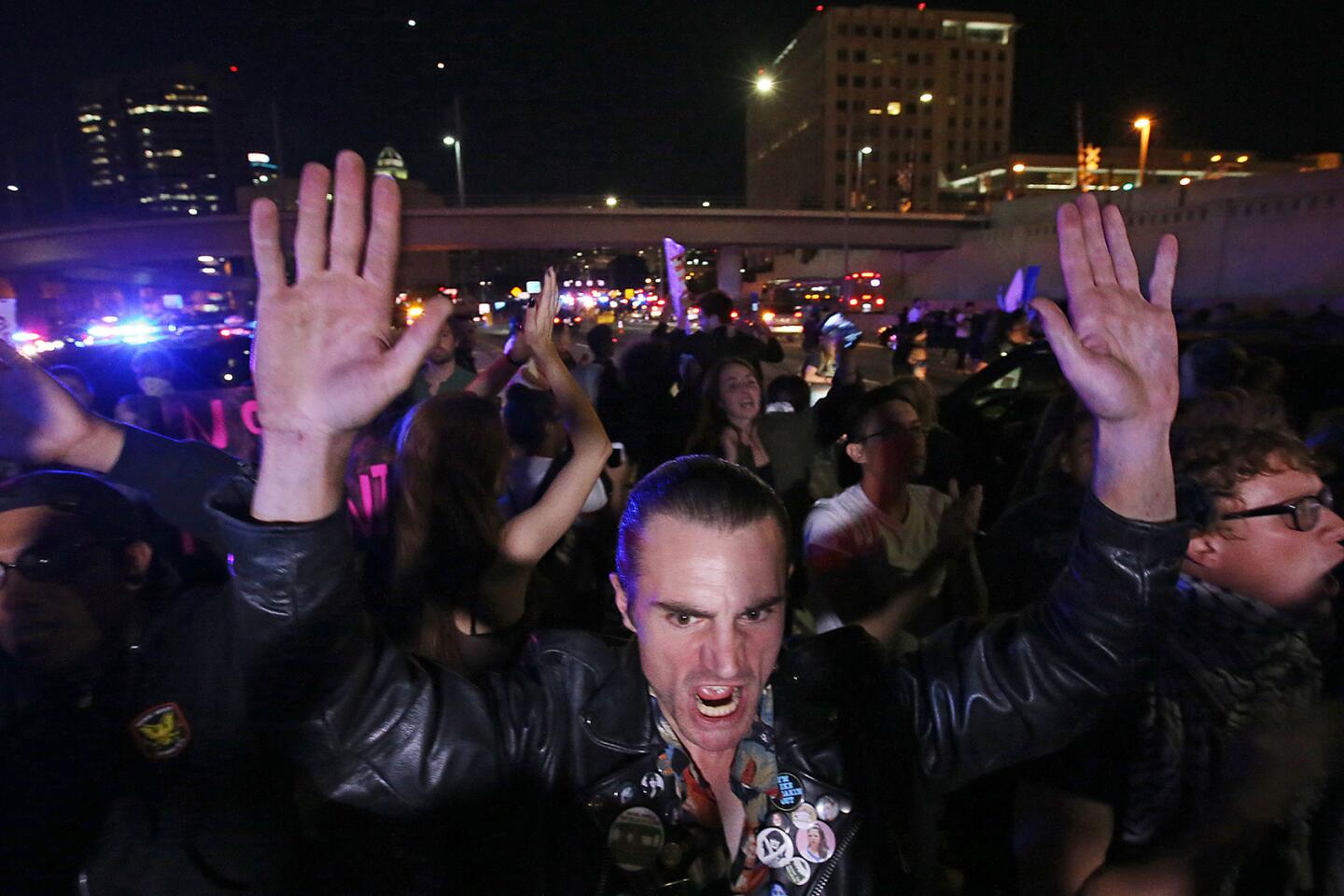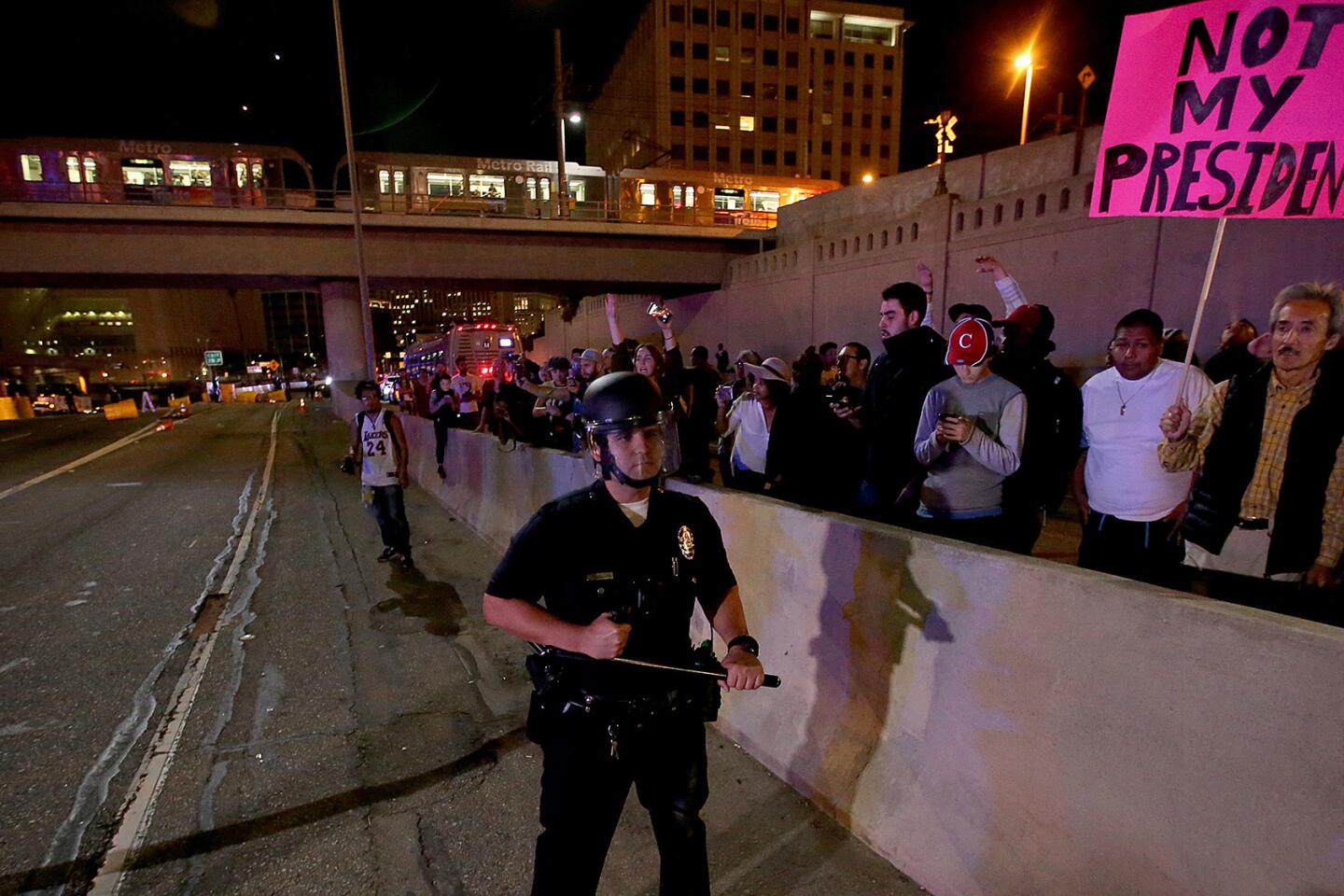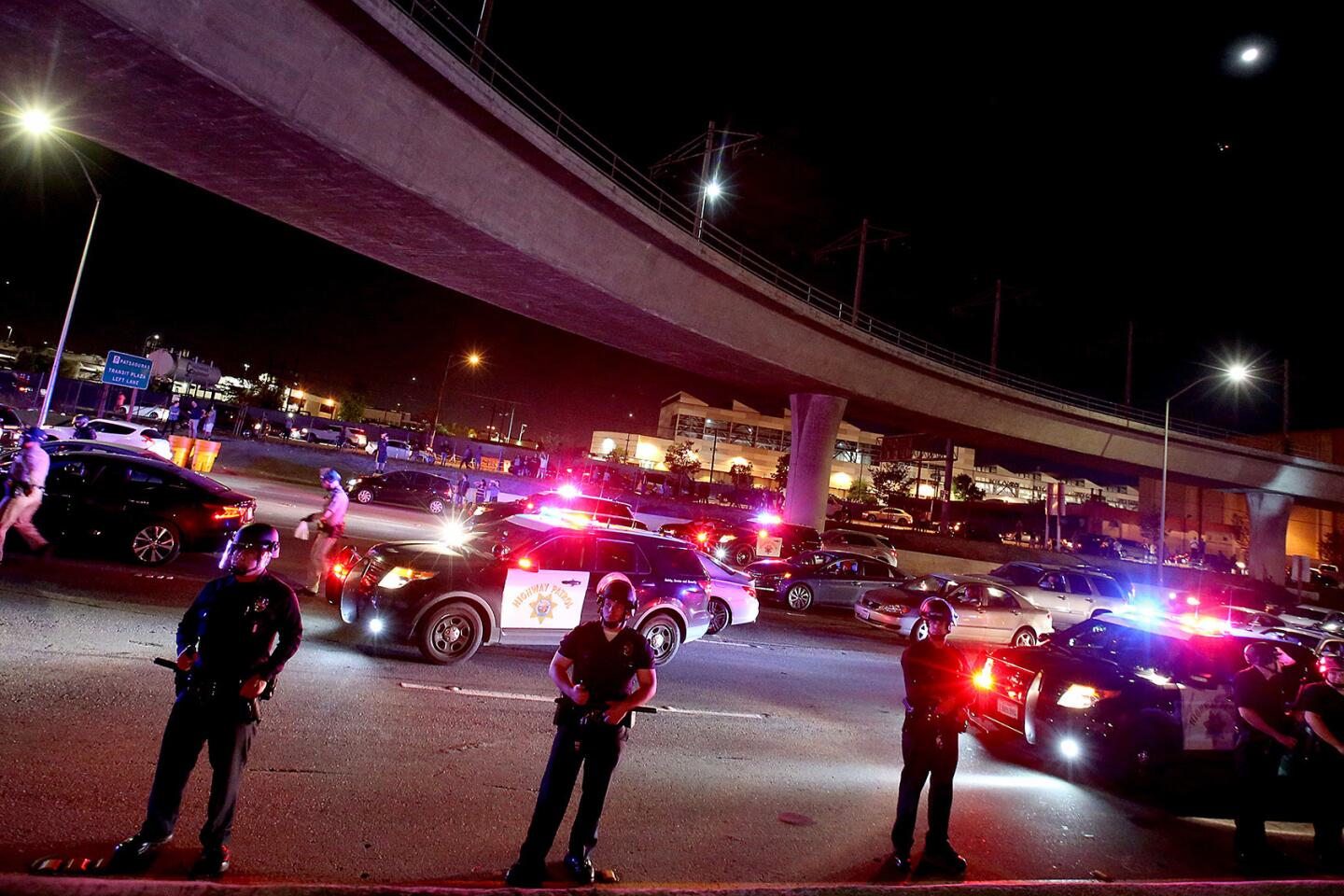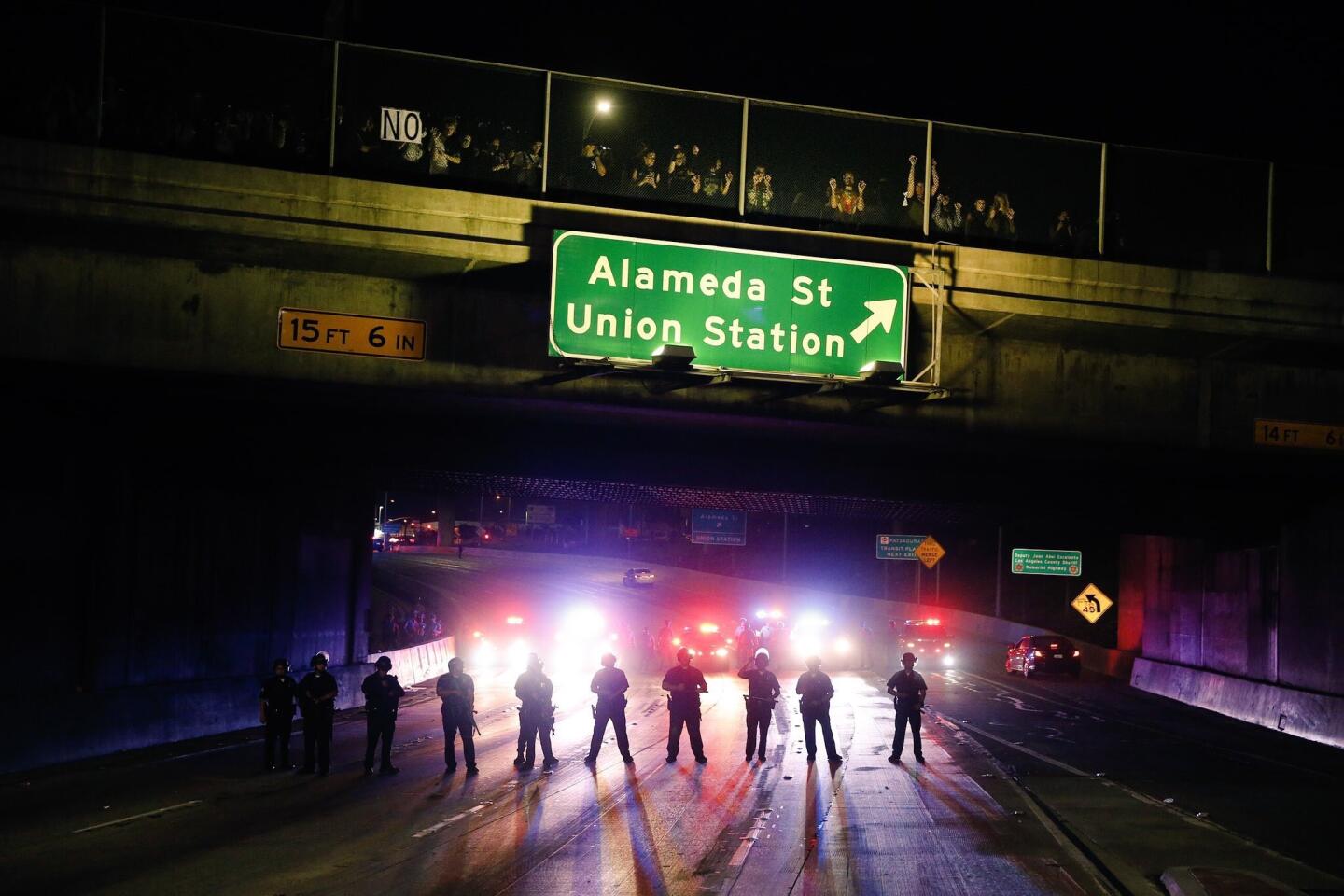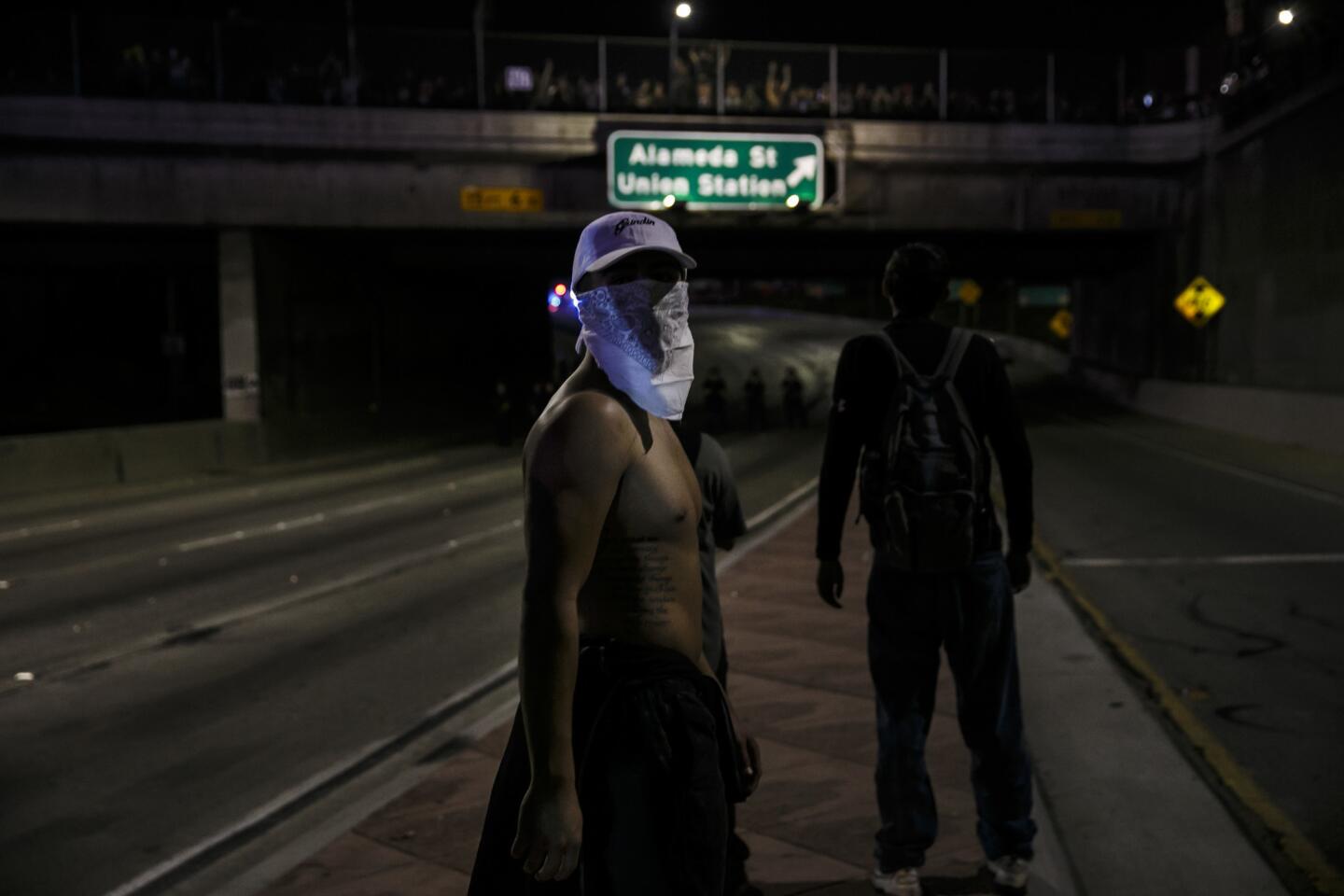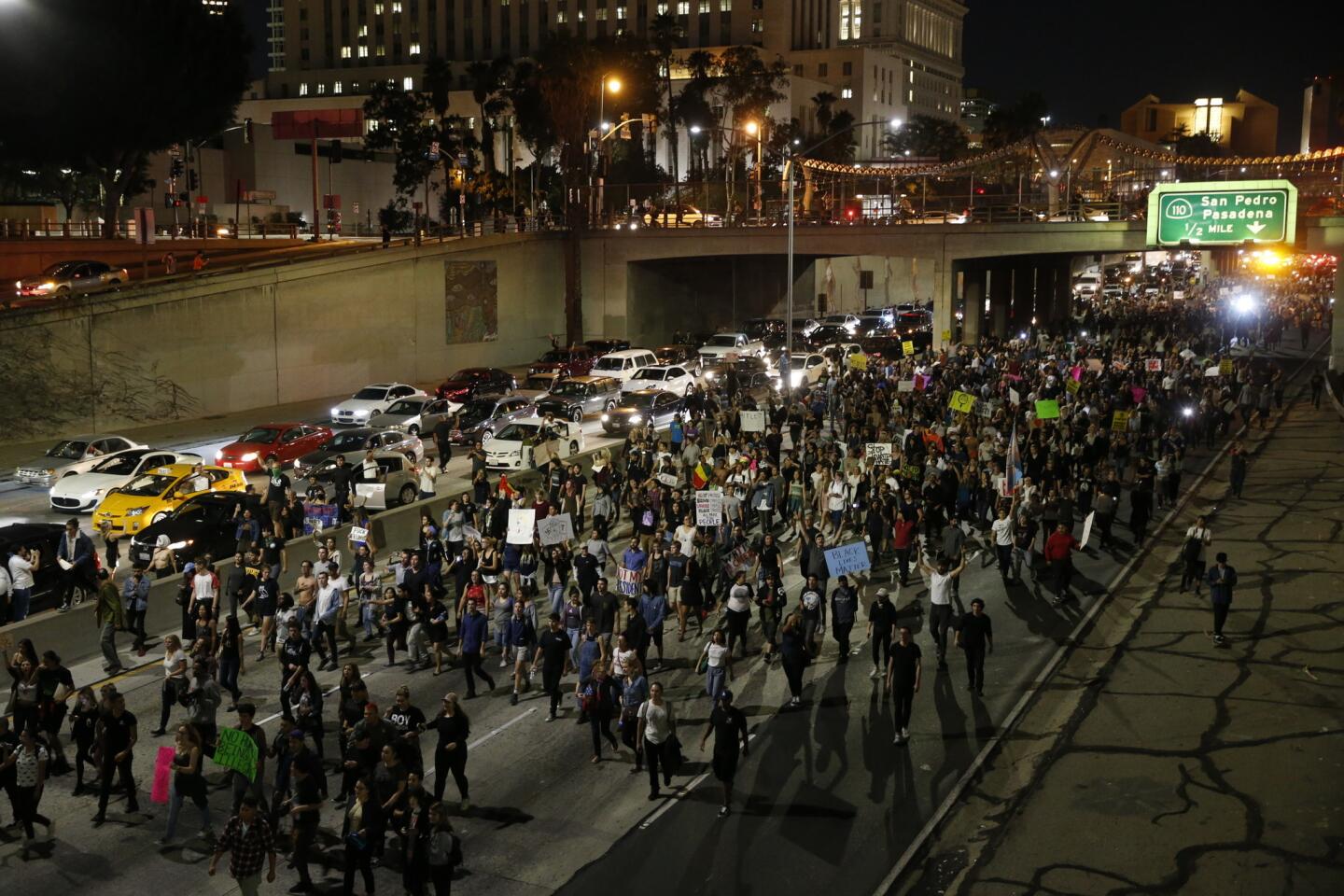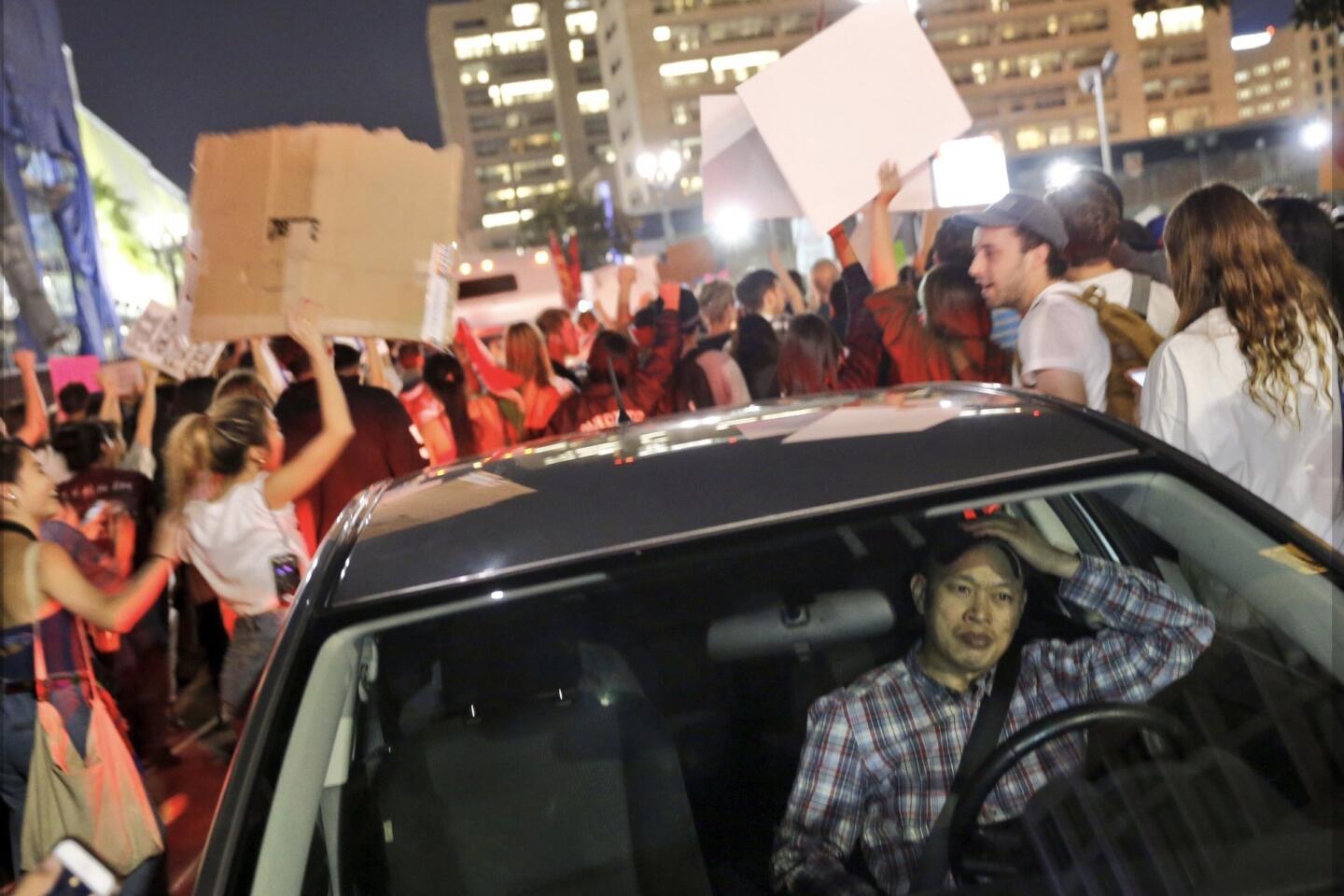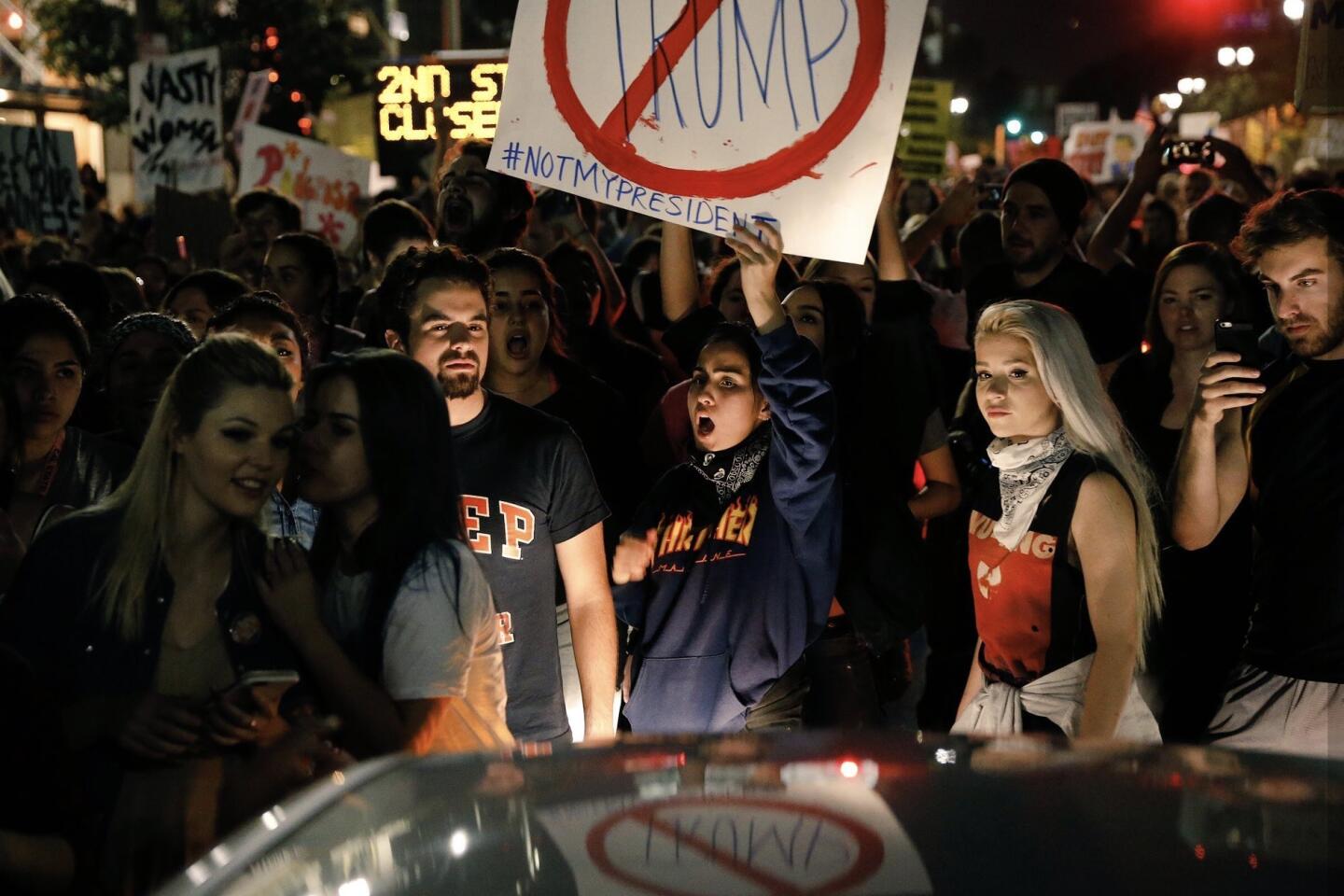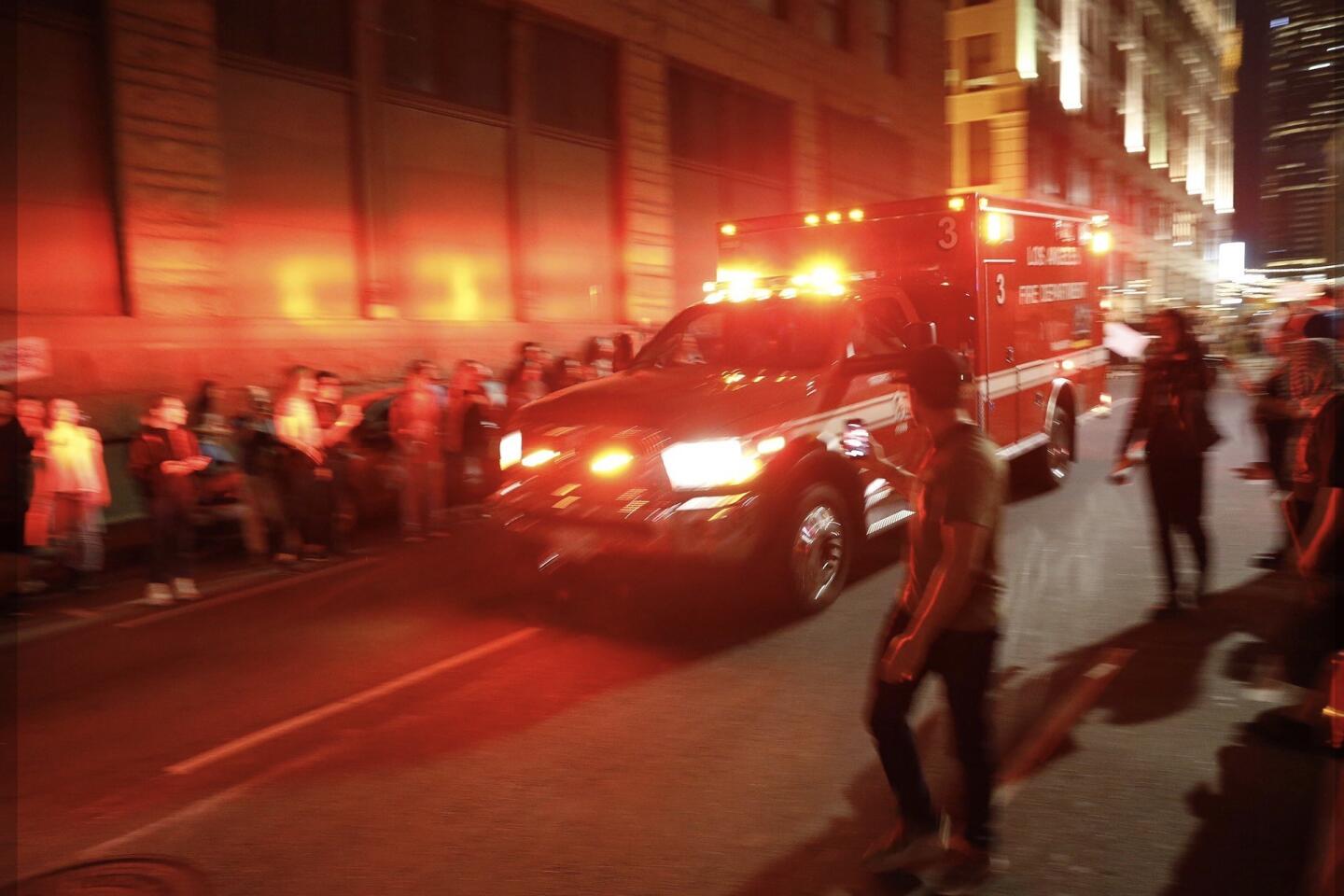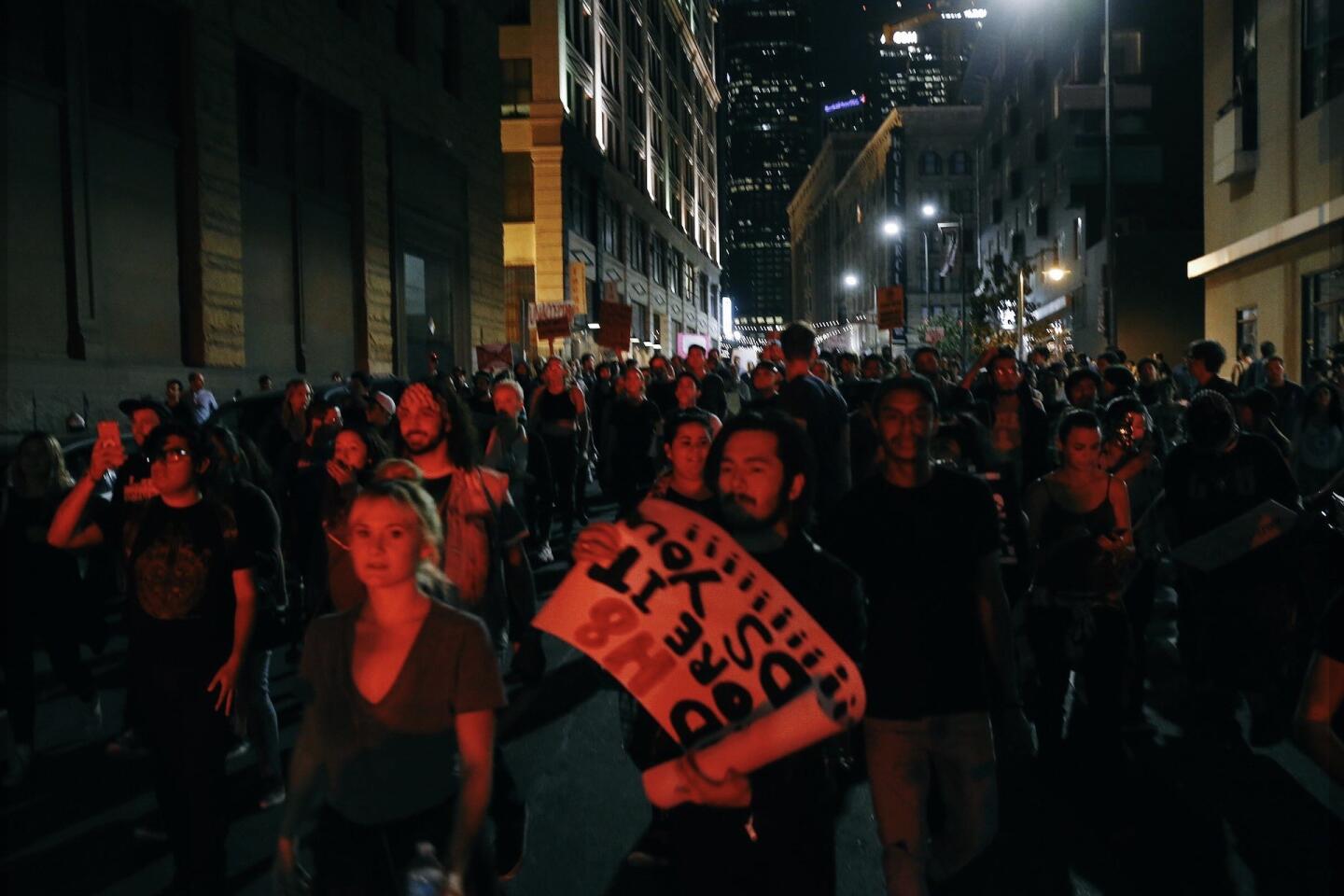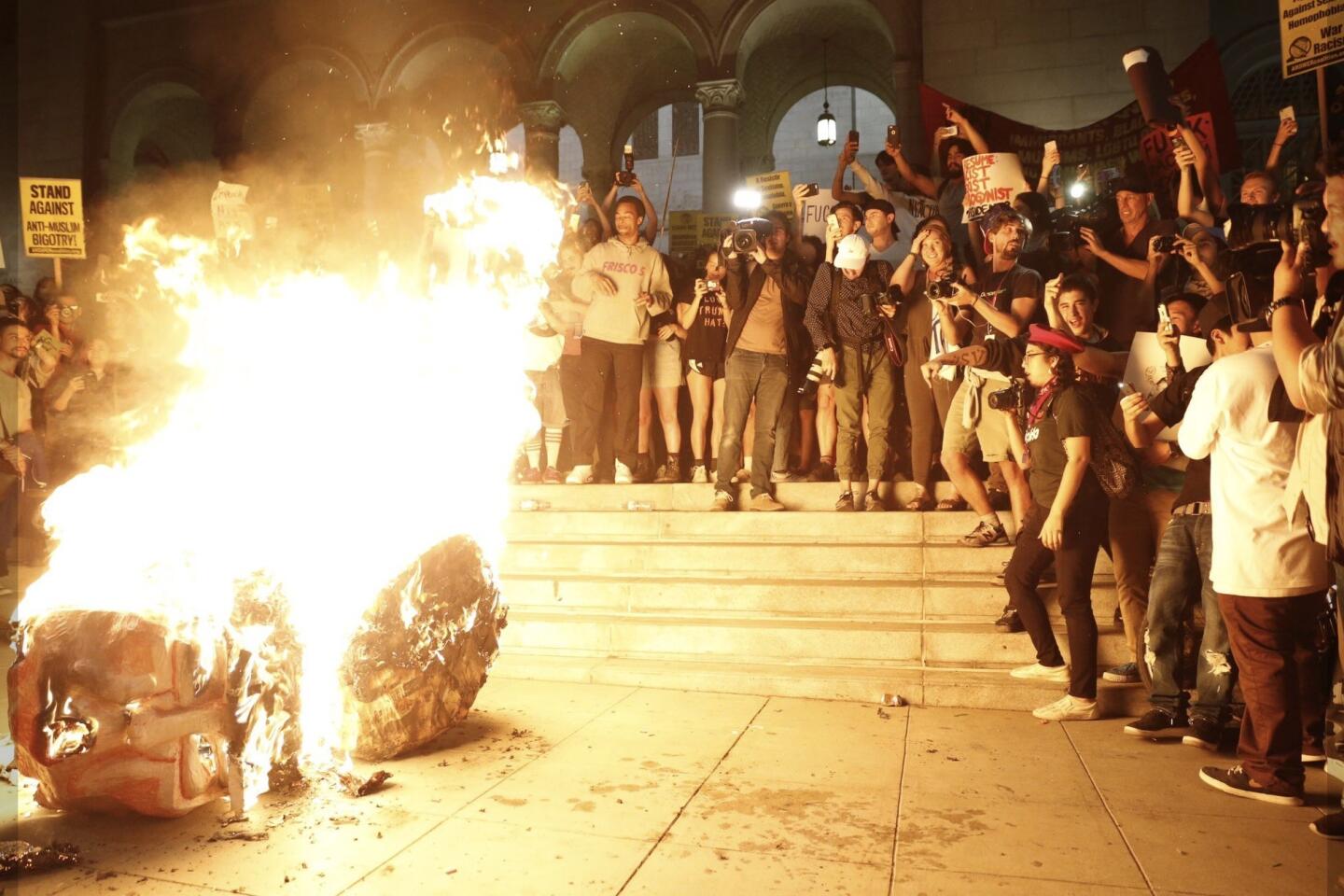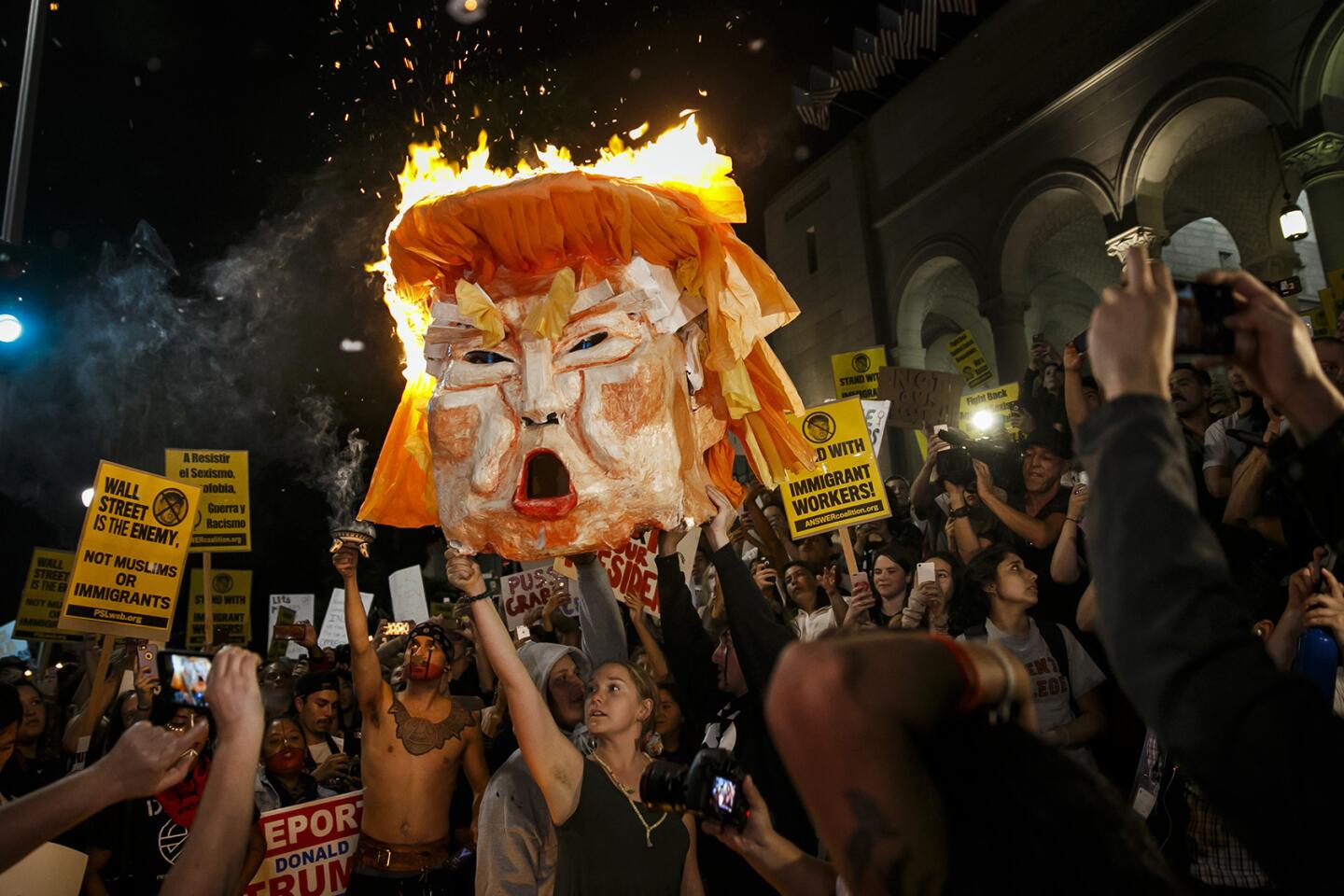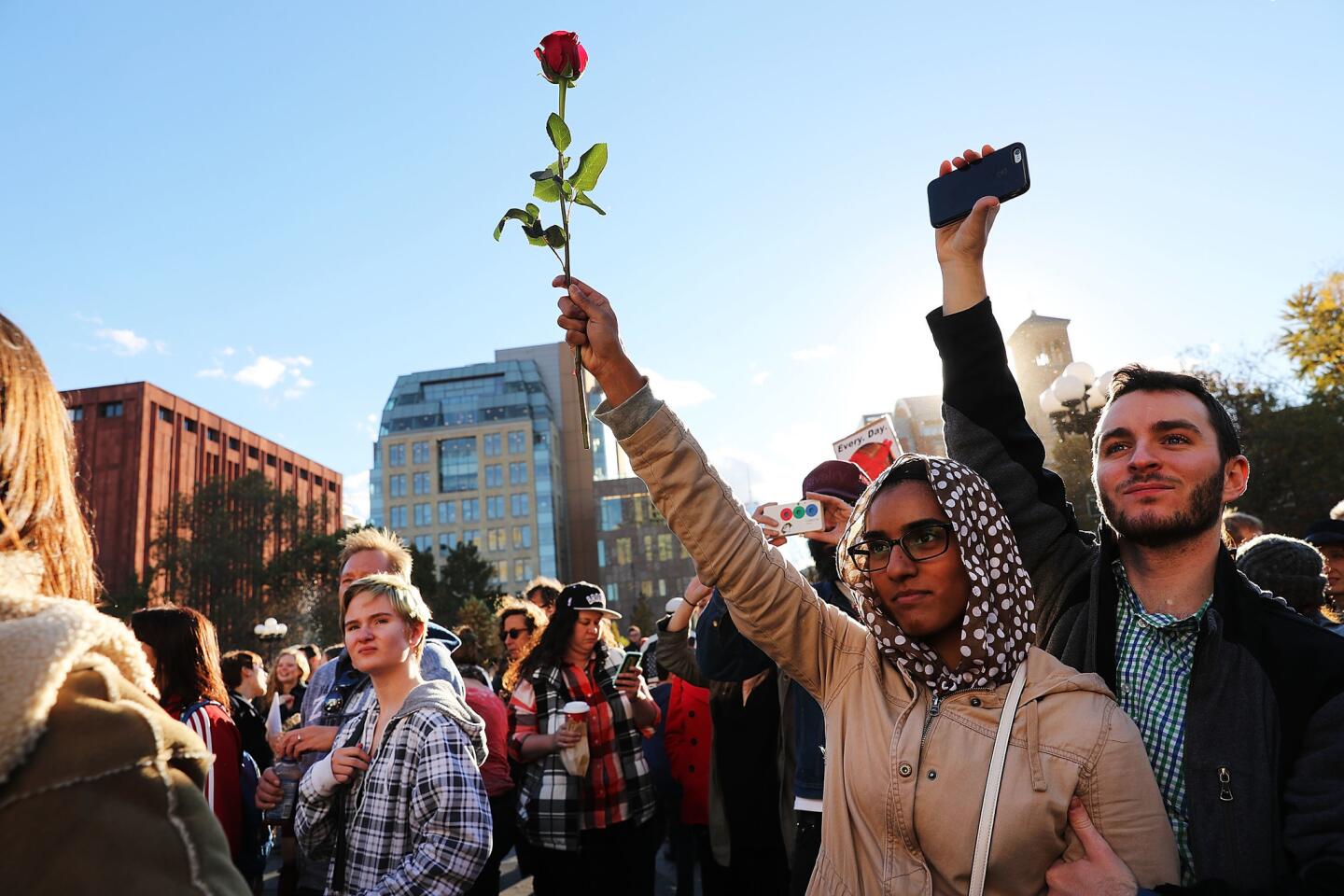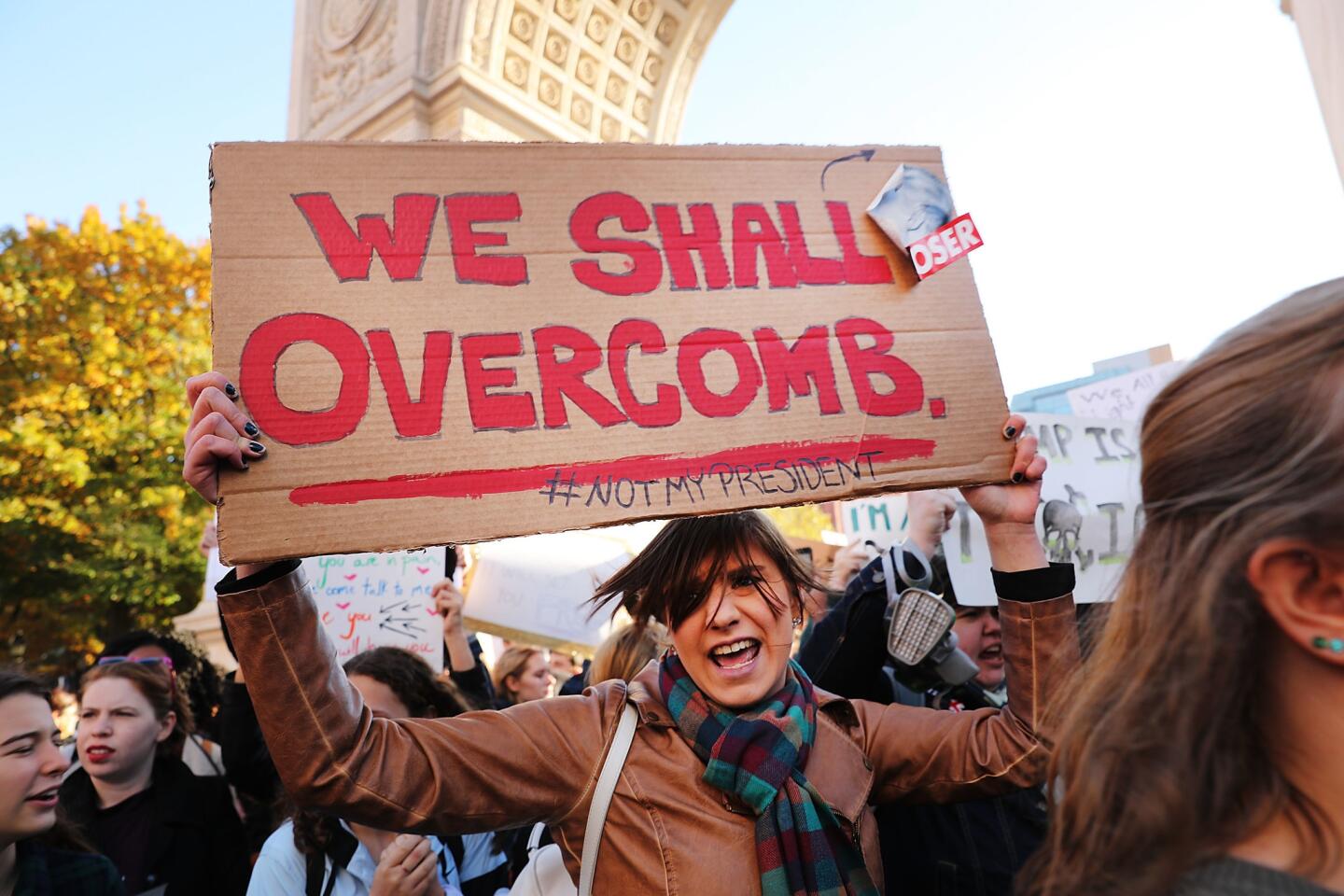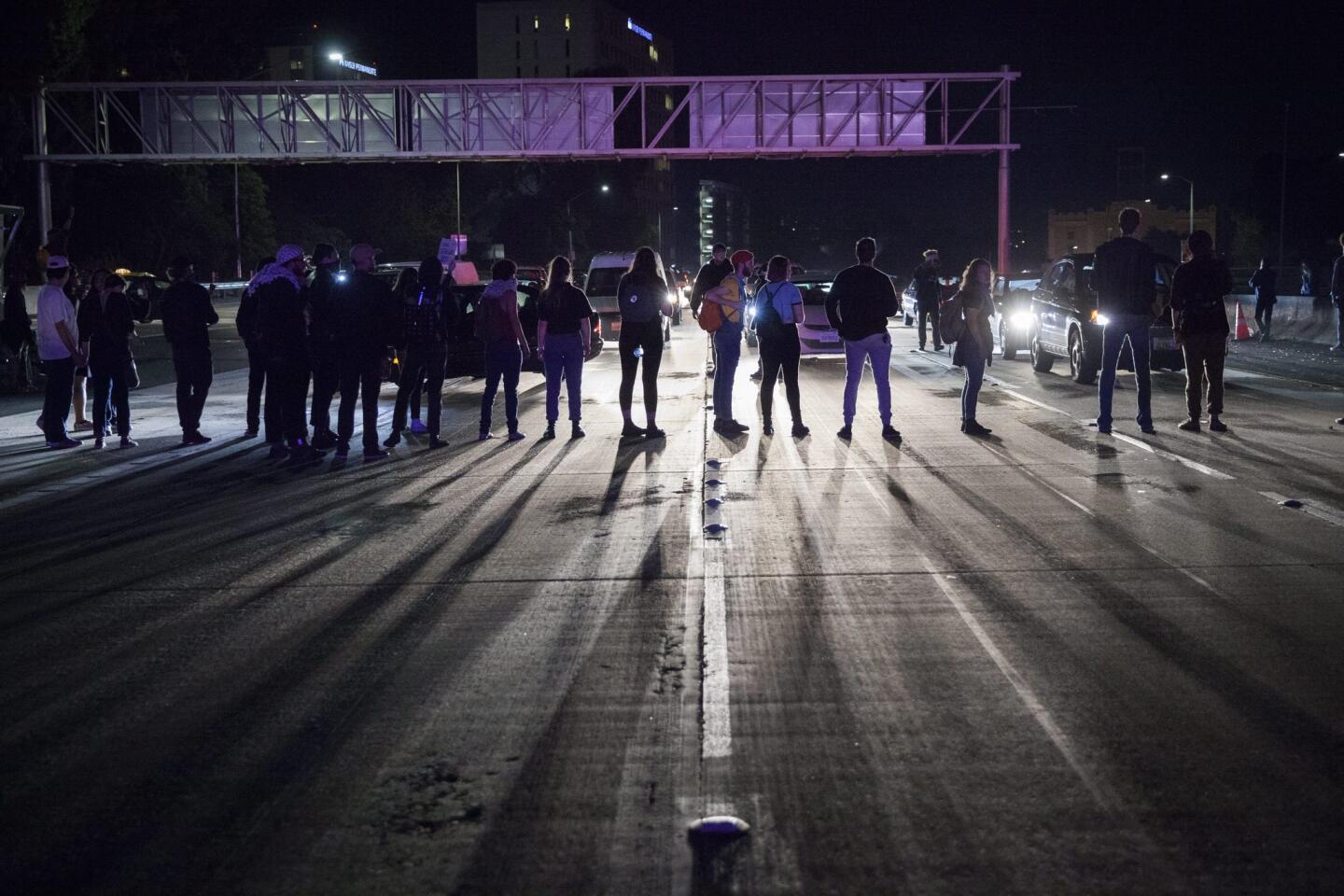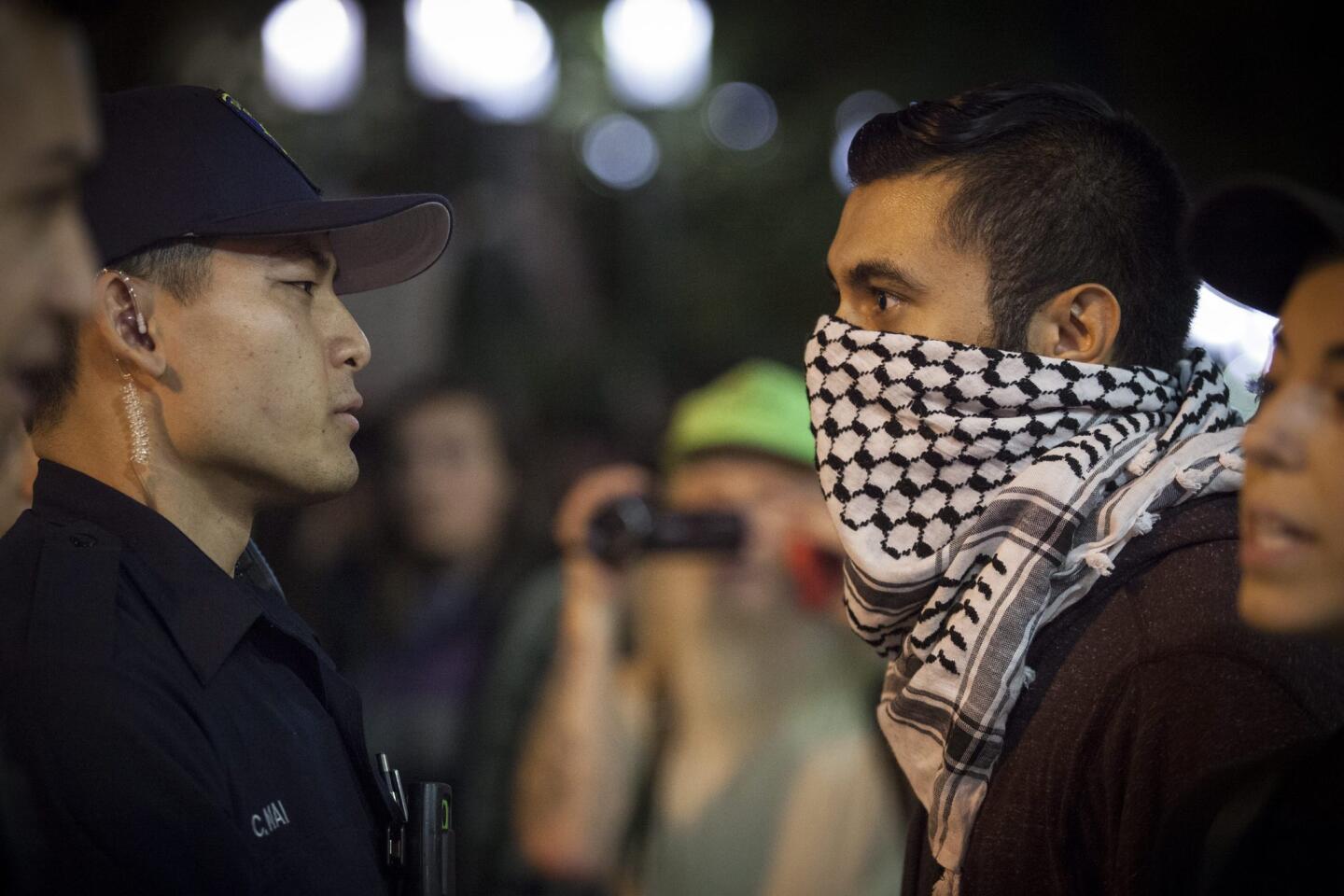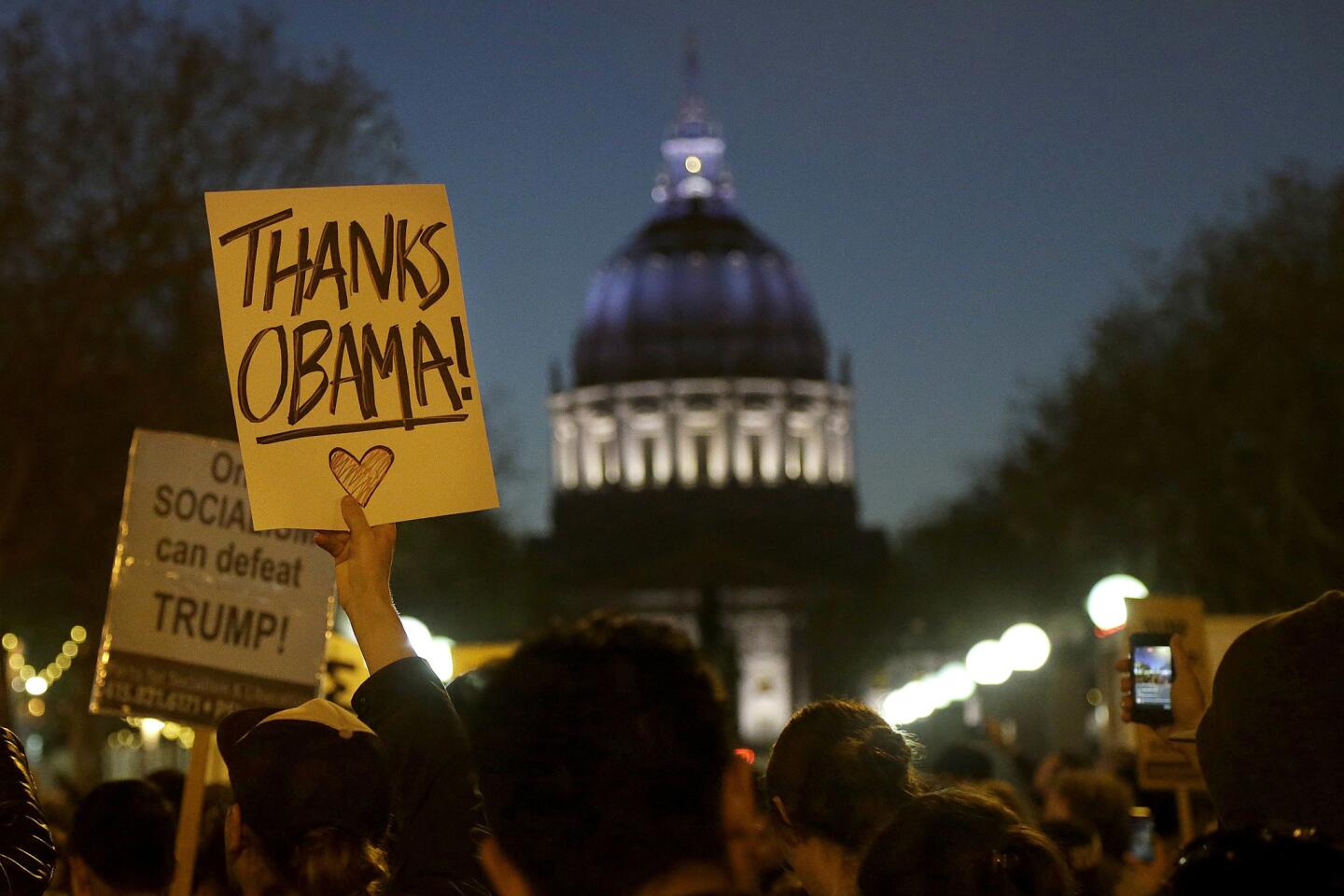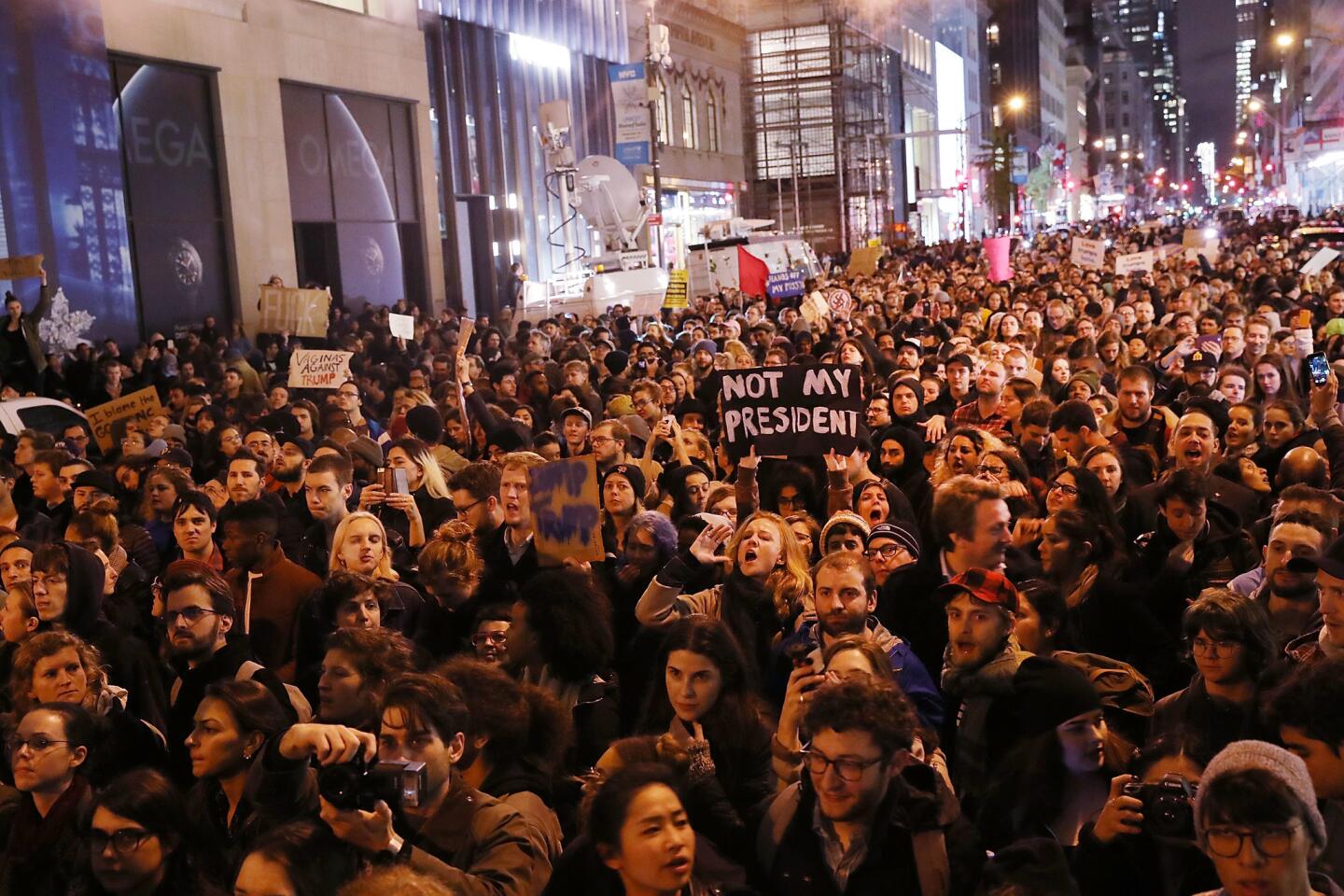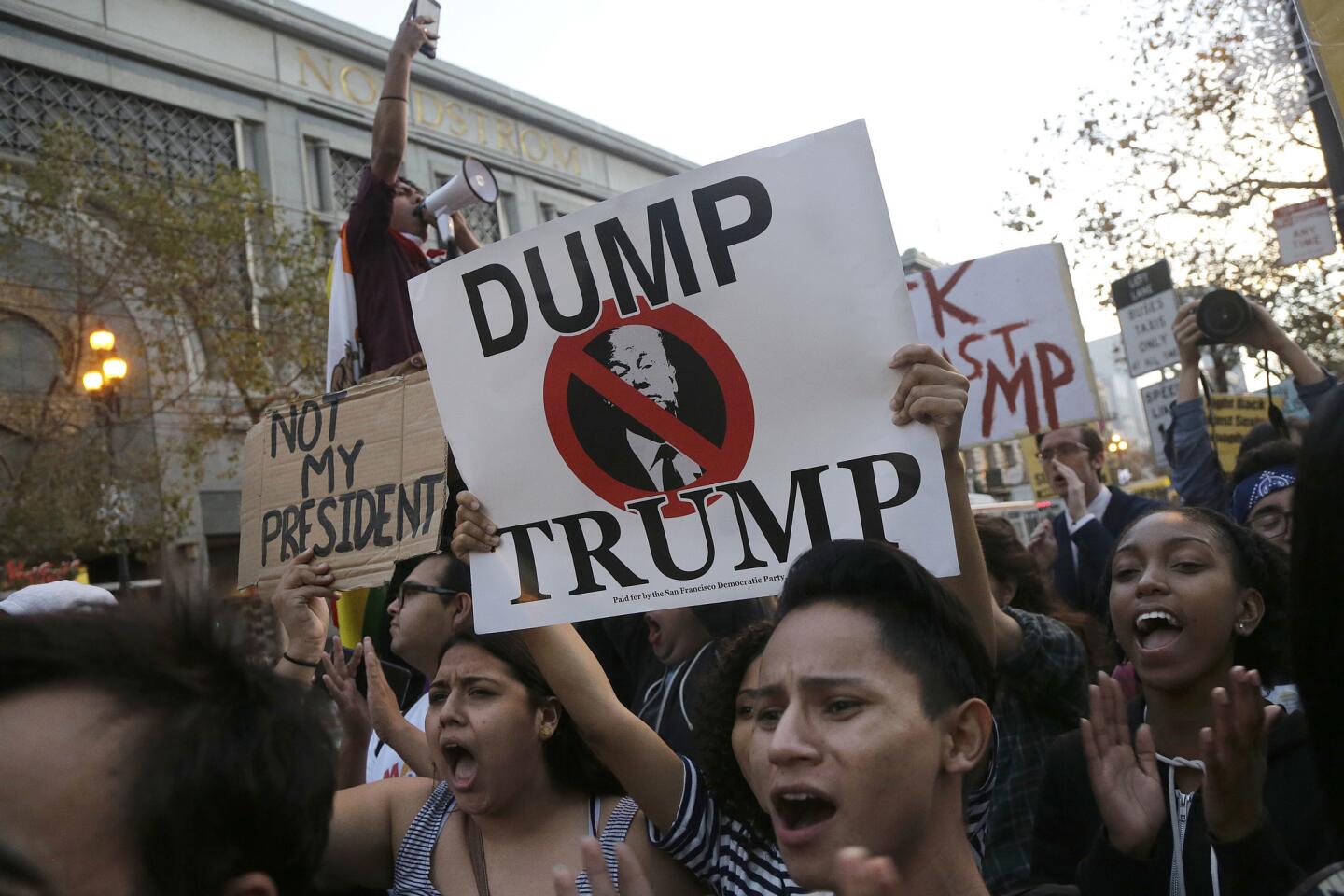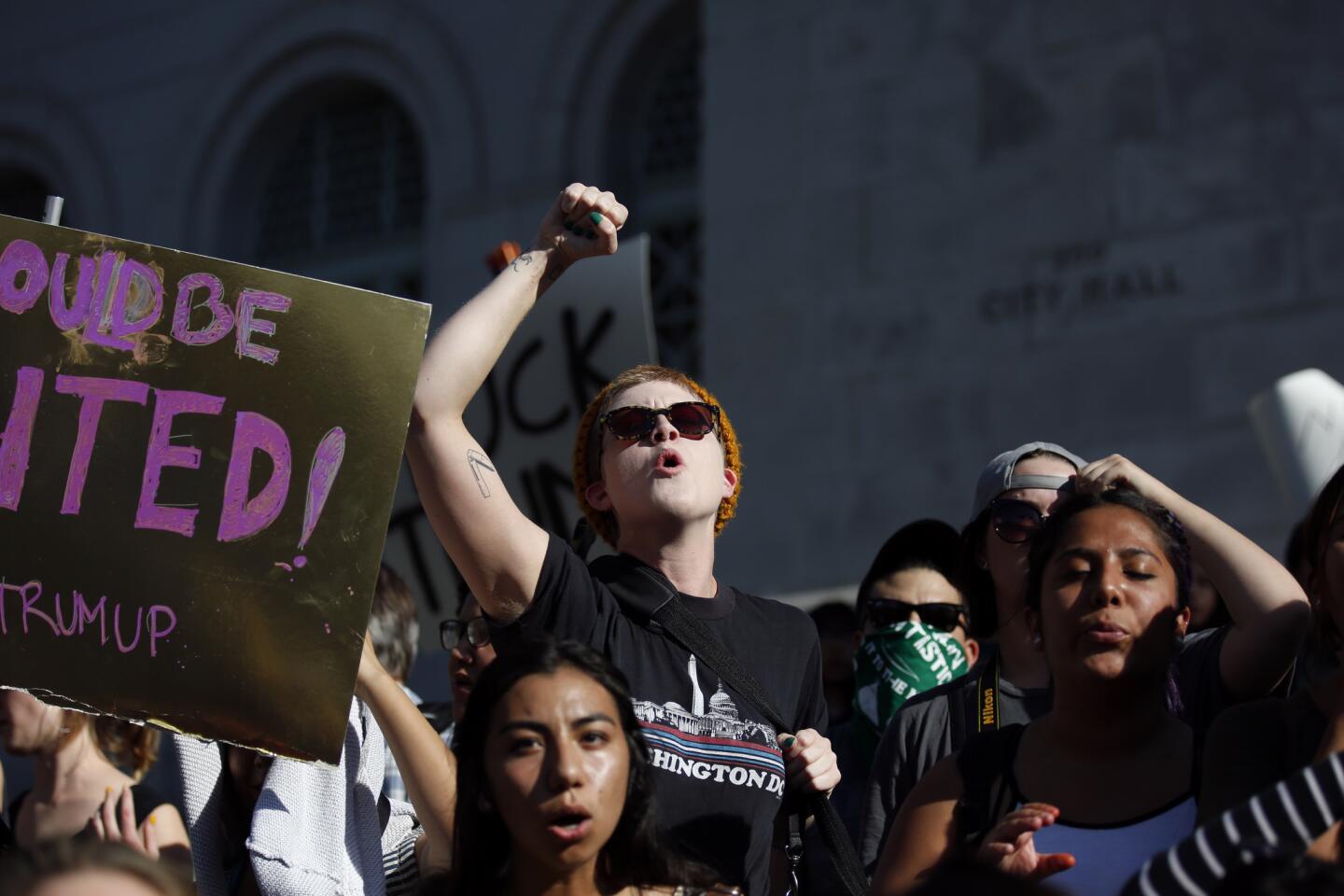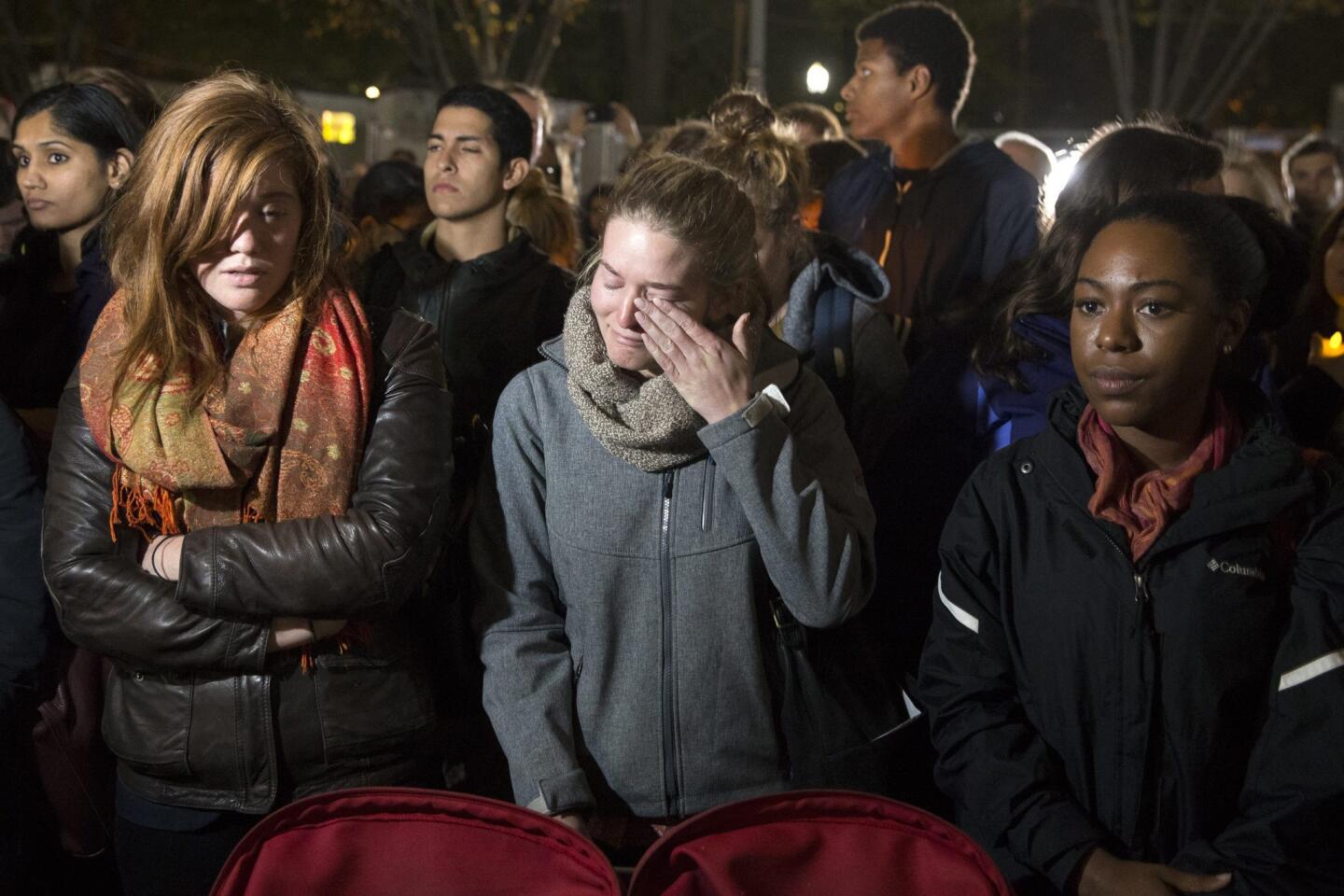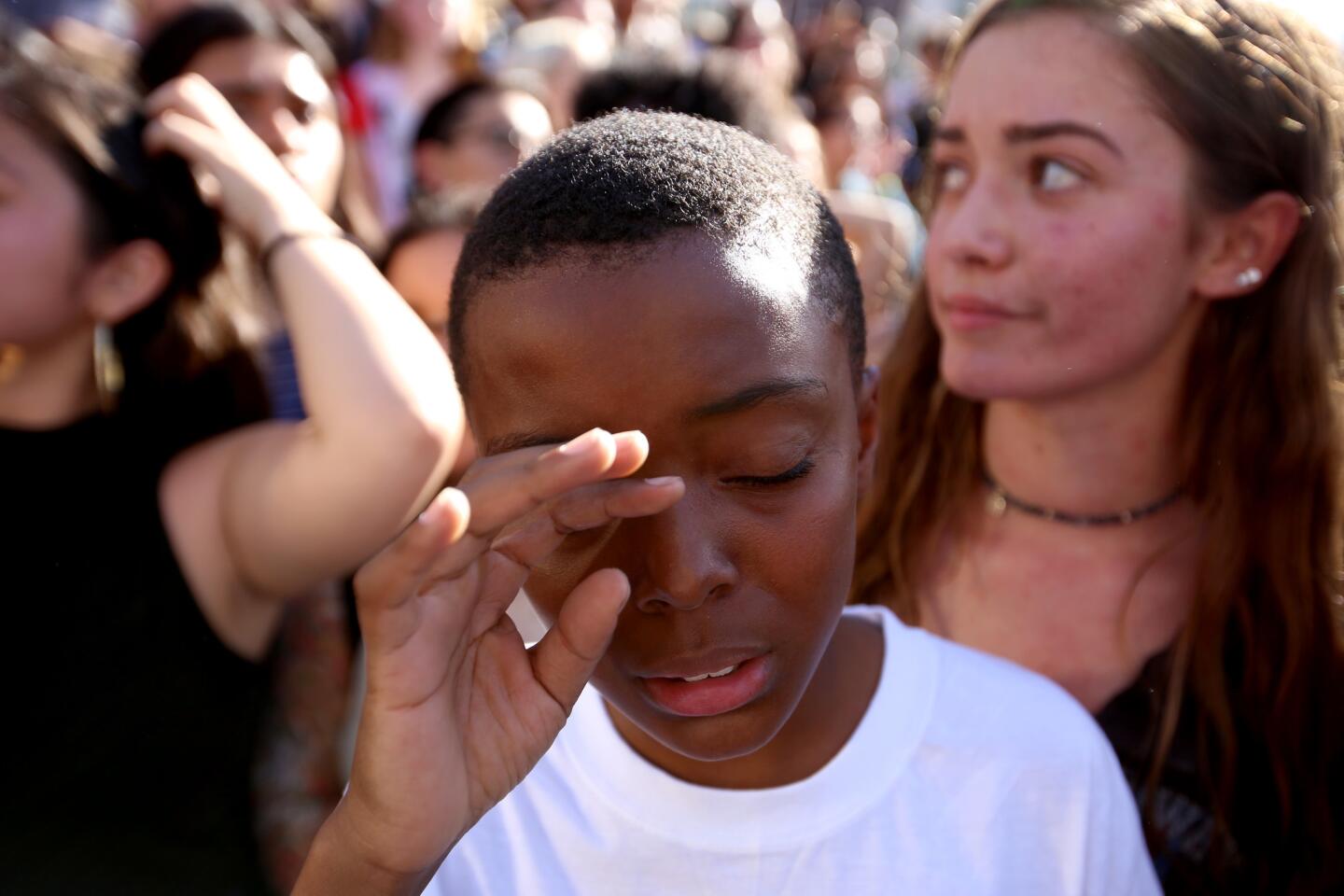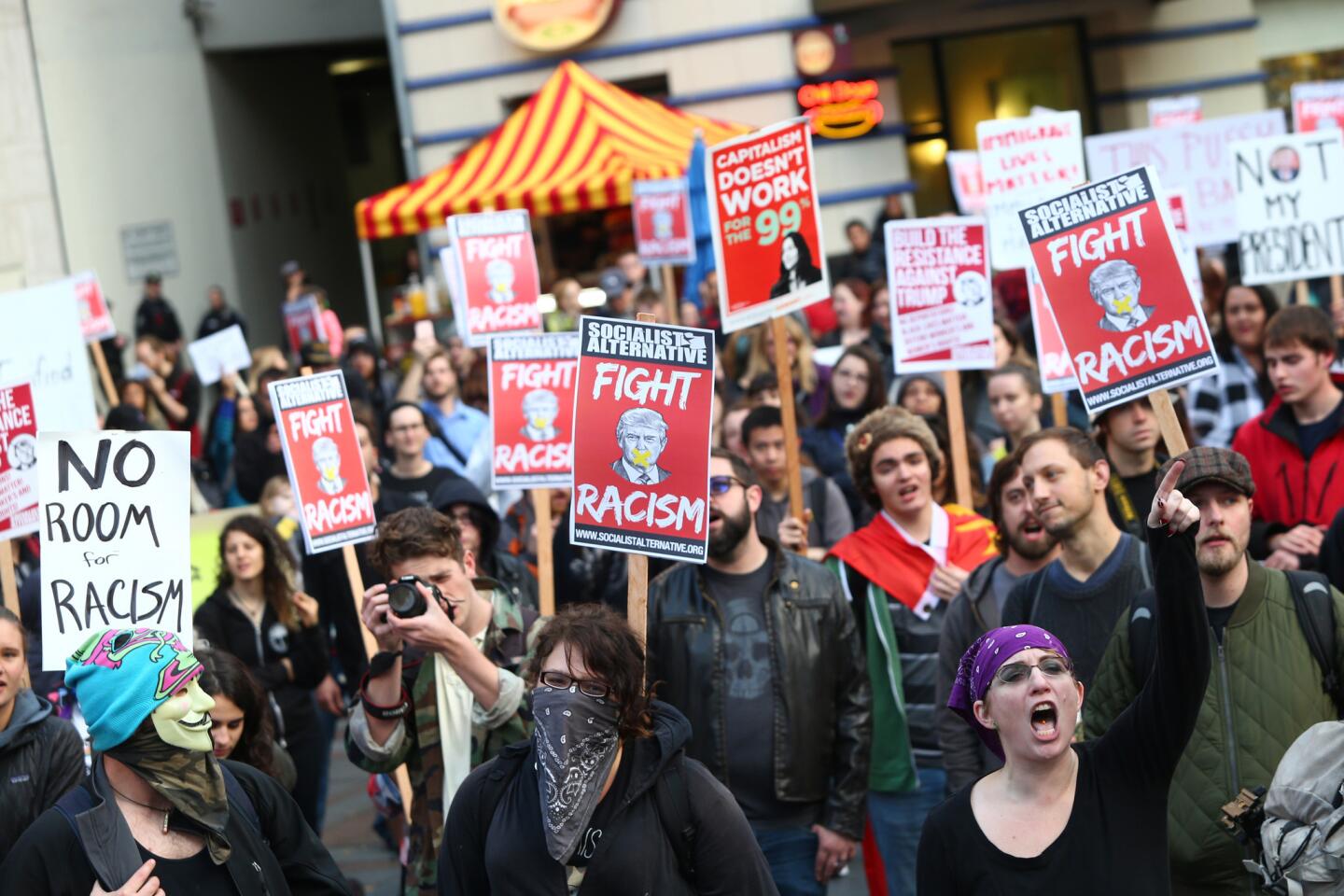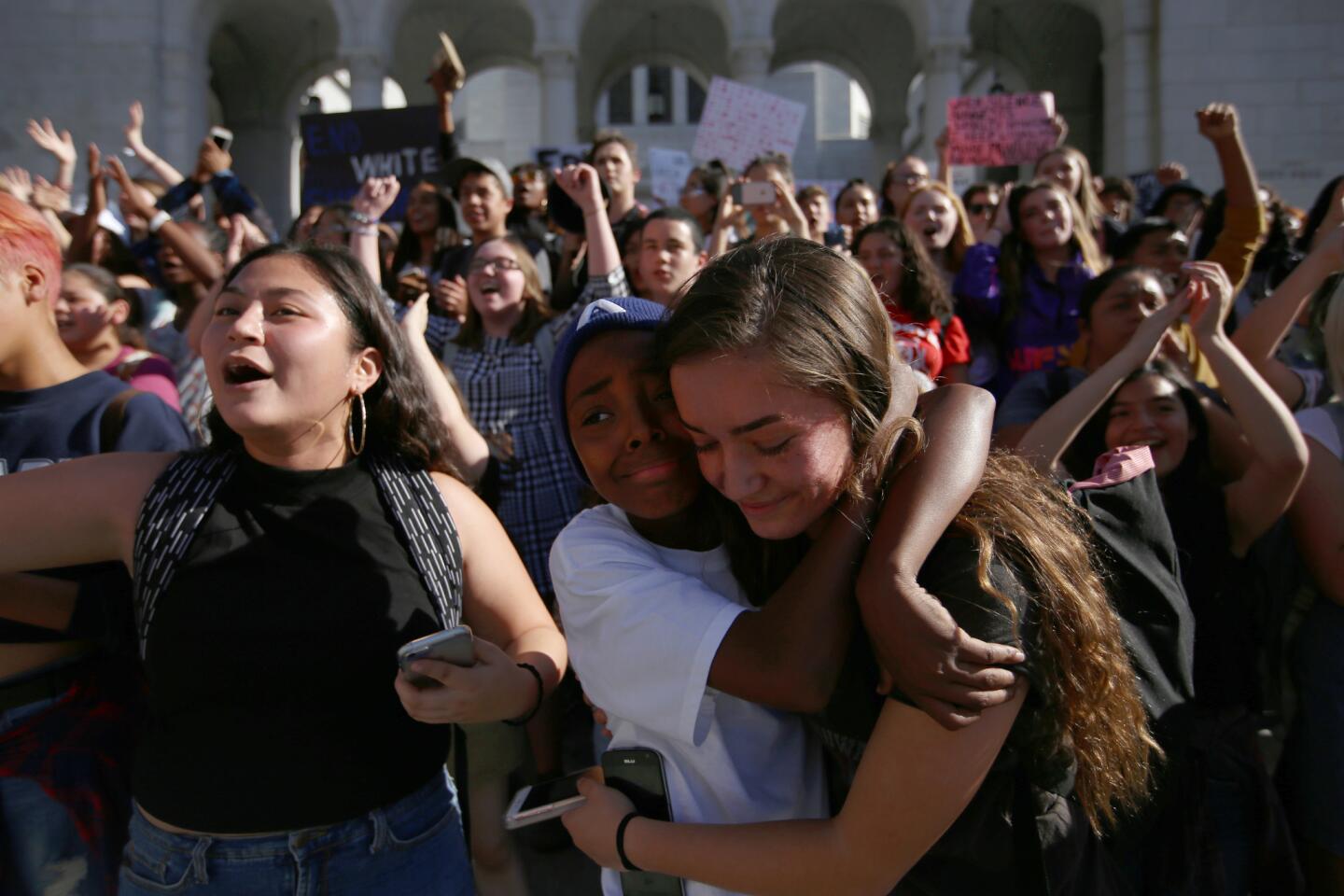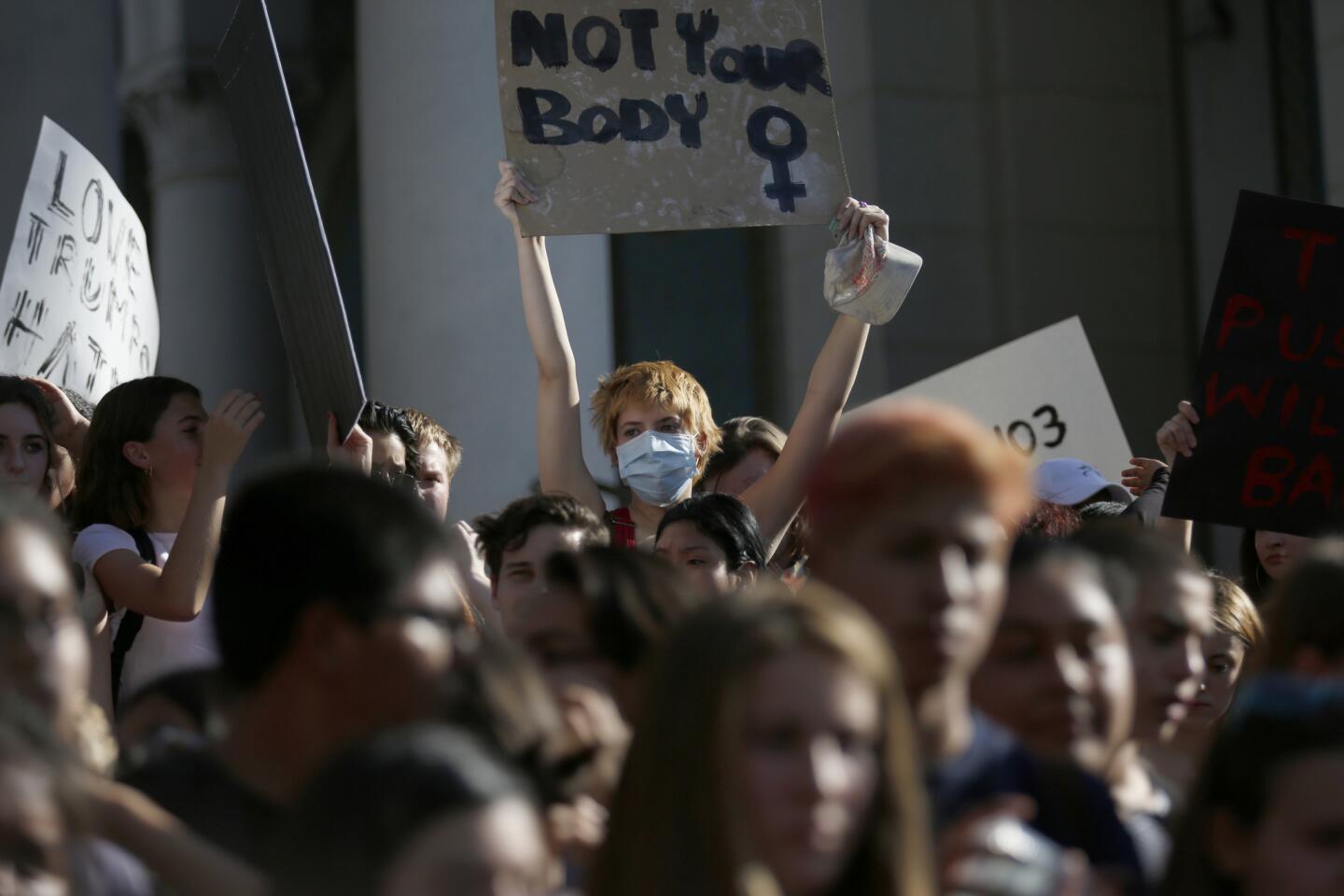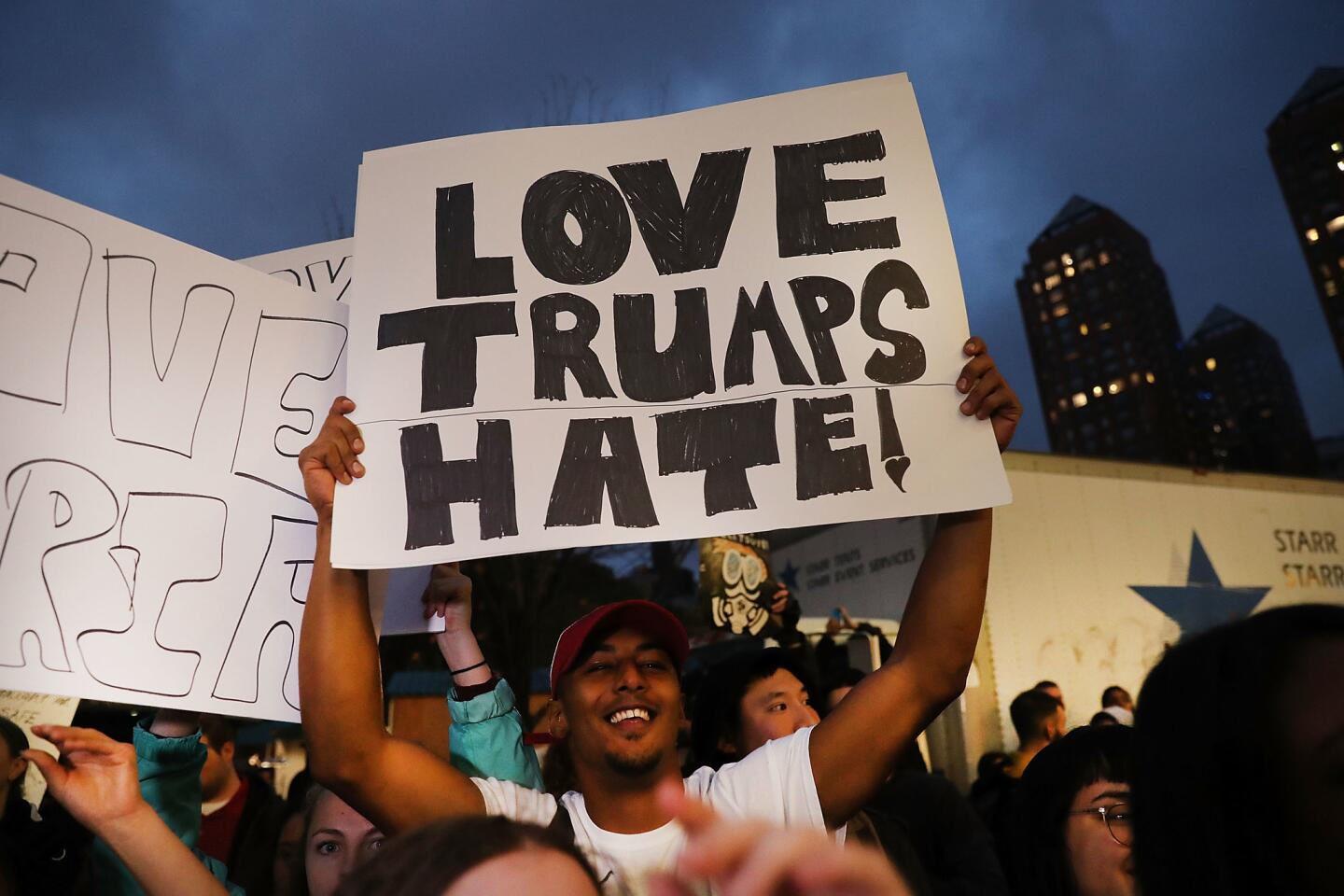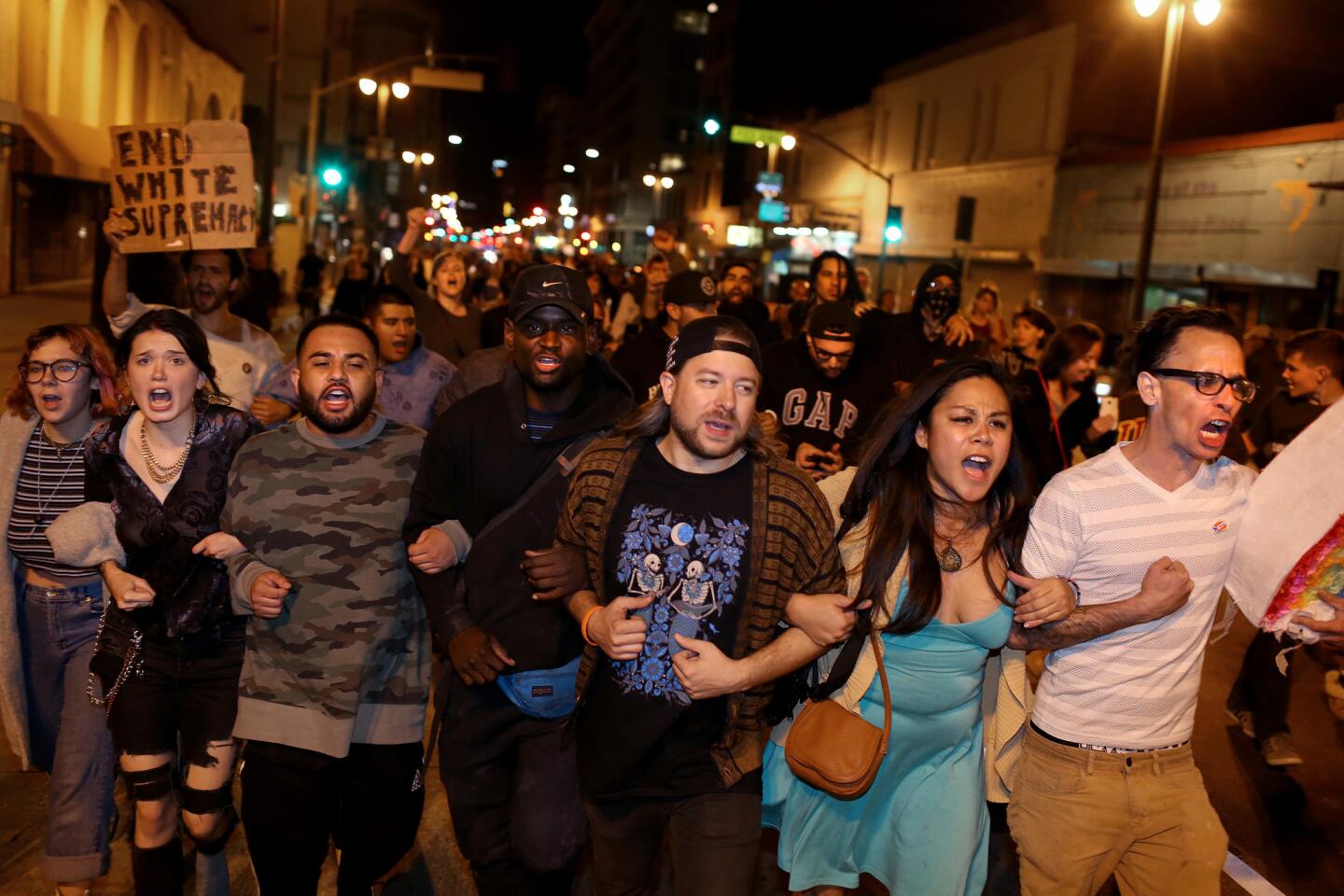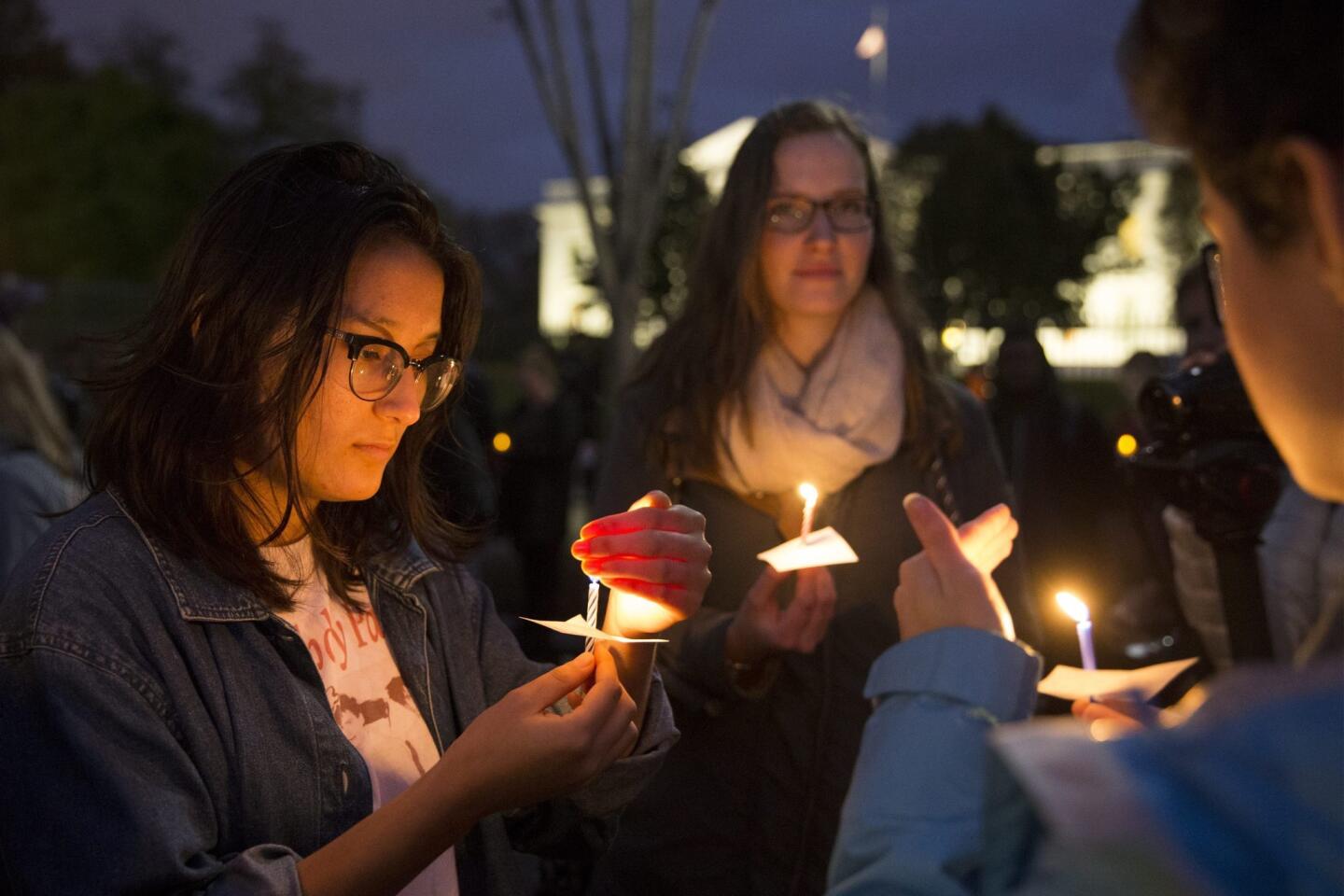Many Trump protesters say this is the first time they’ve protested anything
Reporting from New York — At 16, Sophie Wang is too young to vote and was never much interested in politics anyway. The electoral college was something she was studying in high school, but didn’t fully understand.
The election of Donald Trump changed all that, giving Wang and her classmates a real-life civics lesson.
“We saw him making these crude comments about other people — about women, about immigrants — and we were really shocked,” said Wang, who with several other students at her Brooklyn high school is planning to spend part of this weekend carrying a placard in the street.
Across the country, this week’s presidential election has ignited an unexpected civics lesson for thousands of Americans so unwilling to accept its outcome that they have been flowing into the streets — carrying banners, shouting protests, and in Portland, Ore., on Thursday night, smashing windows and lighting a trash bin on fire.
They have in common a single message directed at the new president-elect: “Not our president.”
“I’m not protesting because I hate democracy or hate Donald Trump,” said Amy Vandenberg, a 21-year-old psychology student at USC who joined the protests in Los Angeles. “There are a lot of marginalized people in this country who are scared, are hurting. If I can protest as a white person to say, ‘I see you, I’m with you and I love you,’ that’s what I’m going to do.”

An estimated 185 people were arrested and one officer was injured during the hours-long demonstrations, LAPD officials said. Details on the officer’s injuries were not available but he was expected to be released from the hospital early Friday, said
Many of those on the streets this week are young, first-time activists who scarcely remember life under a president other than Barack Obama. They hold wide-ranging political views but seem unified in their shock at Trump’s aggressive rhetoric and his victory over an opponent who got more votes.
The strength of the spontaneous protests unfolding in dozens of cities was highly unusual for a general election, said Kris Hermes, a longtime legal-support activist who has studied mass demonstrations at political events.
“What’s more common is to have resistance occur at the time that these candidates are being coronated at the conventions,” said Hermes. Even then, he said, protests are typically directed at issues, not the election itself. “Having people come out to the streets the day after the election — that’s not very common.”
Those out in the streets have been not just Clinton supporters, but include many Bernie Sanders supporters who were skeptical of her candidacy, and some who chose the Green Party’s Jill Stein and Libertarian Gary Johnson, according to interviews with more than two dozen young demonstrators across the nation.
Clinton was “definitely not my first choice,” said Ignacio Martinez, a 20-year-old journalism and computer science student at the University of Texas at Austin, who preferred Sanders. But with Trump’s election, he said his primary concern is fighting “fascism,” and that means both protesting for the first time, and voting.
“Really, I’m very much for the ideology that anger is productive and it is justified right now,” Martinez said. “We have to remember that the next time we can vote isn’t in four years, it’s in two. Switching around the power in the House and the Senate.”
Others say the outcome of the balloting has inspired a desire to act that is more urgent than waiting till the next election.
“I think we need to send a message that this is not normal, that we need to start taking care of ourselves at the local level,” said Gregory McKelvey, 23, a law student from Lake Oswego, Ore., who has helped organize demonstrations in nearby Portland. “People are like, ‘Well, just give Trump a chance ...’ The chance is life or death, and we have to fight it; that’s how we feel.”
Young protesters also took to the streets in Salt Lake City. Utah is not known for anti-Republican activism, but urban liberals and conservative Mormons there had both expressed strong reservations about Trump.
One of those first-time protesters in Salt Lake City, Corenne Stuart, 19, is a Sanders supporter who ultimately decided to back Clinton for president. She said that students had been lured into complacency by the widespread predictions that Clinton would win easily.
“Election night was a huge wake-up call that our country is a little bit misguided, to put it nicely, and it’s time for people to raise their voices and speak out for what’s right.”
Molly Dunlap, an 18-year-old freshman at Georgetown University in Washington, D.C., had been a Clinton backer all the way from the primaries through the general election. The night Trump won, Dunlap went to her first protest — in front of the White House. The next night, she protested outside Trump’s new hotel in D.C.
“Basically I wanted to do something that wasn’t just sitting at home on Twitter, tweeting some hashtag, I wanted to be out with some people who felt the same way I did,” she said.
In front of Trump Tower in Midtown Manhattan, the residence of the president-elect and a popular gathering point for protesters, many people simply showed up on their own.
“I got up this morning and said to my husband, “I’ve got to do something,’ and I took the train into the city,’’ said Susan Brown, 73, who lives in the suburban town of Morristown, N.J. “I felt like if I came in with this homemade poster I could at least testify that this protest is legitimate, individual and not contrived.’’
Trump now faces the challenge of governing a country, a little less than half of whose voters elected him, while some of the rest were ready to march in the streets to oppose him. His citizens, the protesters note, will include immigrants, women, people of color and others who feel they were disparaged during the campaign.
Incidents of racial harassment since Trump’s election have only deepened the fears. Wang, the high school student, said her older sister is a student at Wellesley College — Hillary Clinton’s alma mater — where Trump supporters drove through campus after his victory and taunted African American students.
“My sister is very upset. She doesn’t feel safe,’’ said Wang. She said that at her high school there are also many U.S.-born children of immigrants who fear that their parents will be deported. “My parents came here from China to pursue the American dream. Now I am beginning to question what really are the values of this country,’’ Wang said.
I’m not protesting because I hate democracy or hate Donald Trump.
— Amy Vandenberg, protester in Los Angeles
Vandenberg, the USC psychology student and a Texan by birth, protested for the first time in her life on Wednesday night, joining the group blocking the 101 Freeway in Los Angeles. She says that she and several of her college friends have been sexually assaulted.
“As a victim of sexual assault there was no way that Trump was going to receive my vote,” Vandenberg said “I’m really upset because I feel like the women of America had a chance to at least cut back on rape culture a little bit — we had a chance to say no to misogyny — and we didn’t take it, and it breaks my heart.”
She said the African American Uber driver who gave her a ride home from the protest told her she’s “one of the heroes.”
“Thank you so much as a white person for going out there and standing up for people of color like me,” she told her.
The protests in Portland became destructive Thursday when a group of what police described as anarchists joined the crowd. Armed with baseball bats, bricks and Molotov cocktails, they smashed cars and shop windows and set fires, causing an estimated $1 million in damage.
There were also protests in the south-central Oregon city of Eugene.
Kezia Setyawan, an 18-year-old freshman at the University of Oregon, said she stayed up until 5 a.m. on the night of the election and still couldn’t calm down.
For the first time in her life, she joined a protest.
“I wanted to channel that energy with a community of people who had a similar mindset as me,” Setyawan said. “Ideally, I don’t want to see Trump as the president. At this point, I have some sort of insane hope that the electoral college won’t vote for him.”
Demick reported from New York and Pearce and Elmahrek from Los Angeles. Special correspondent Rick Anderson in Seattle also contributed.
Twitter: @BarbaraDemick
Twitter: @MattdPearce
Twitter: @adamelmahrek
ALSO
How Donald Trump really won the White House
A primer on executive power: What Trump can and can’t do
Is a Muslim from the Midwest set to take over the Democratic National Committee?
More to Read
Sign up for Essential California
The most important California stories and recommendations in your inbox every morning.
You may occasionally receive promotional content from the Los Angeles Times.
